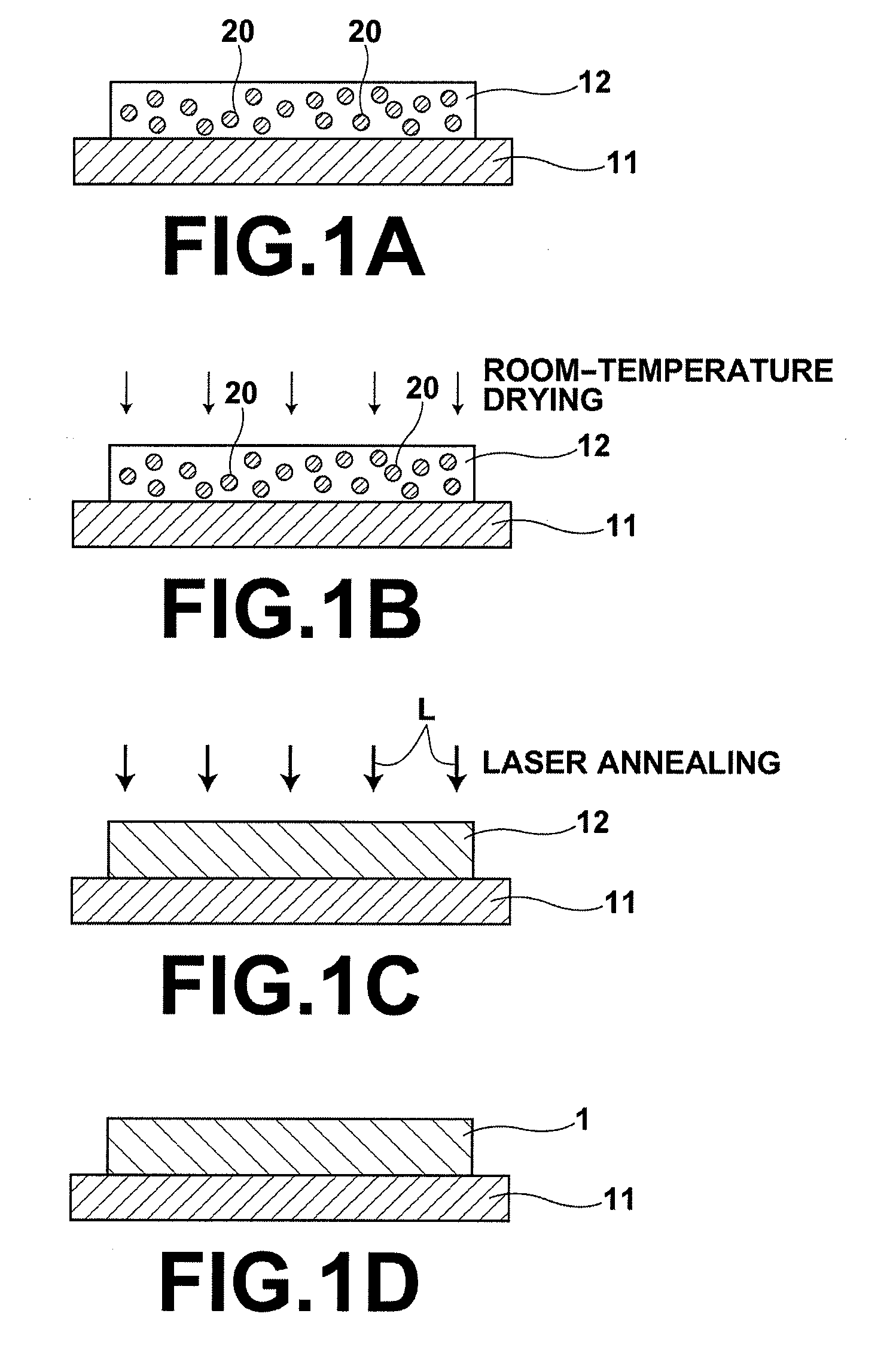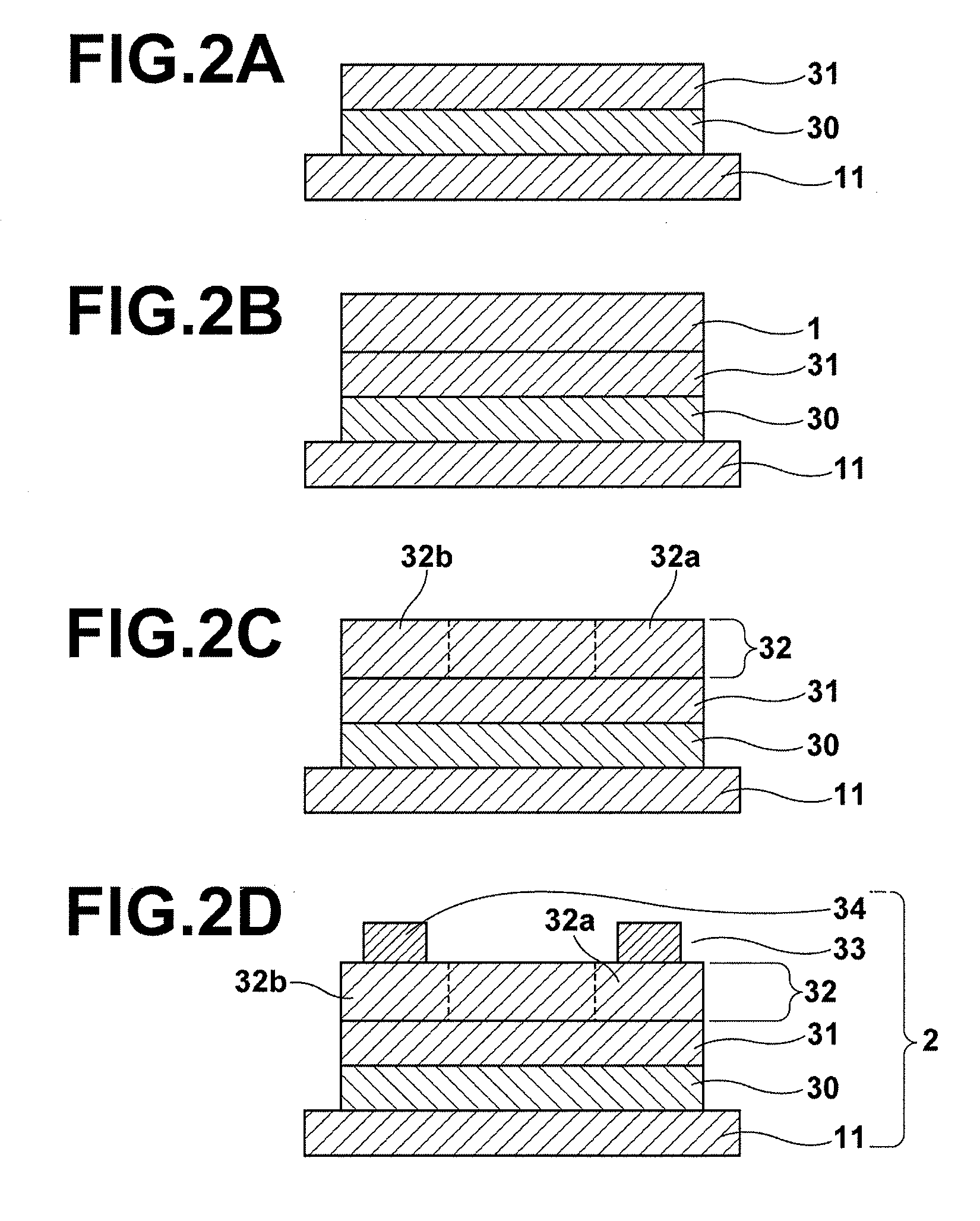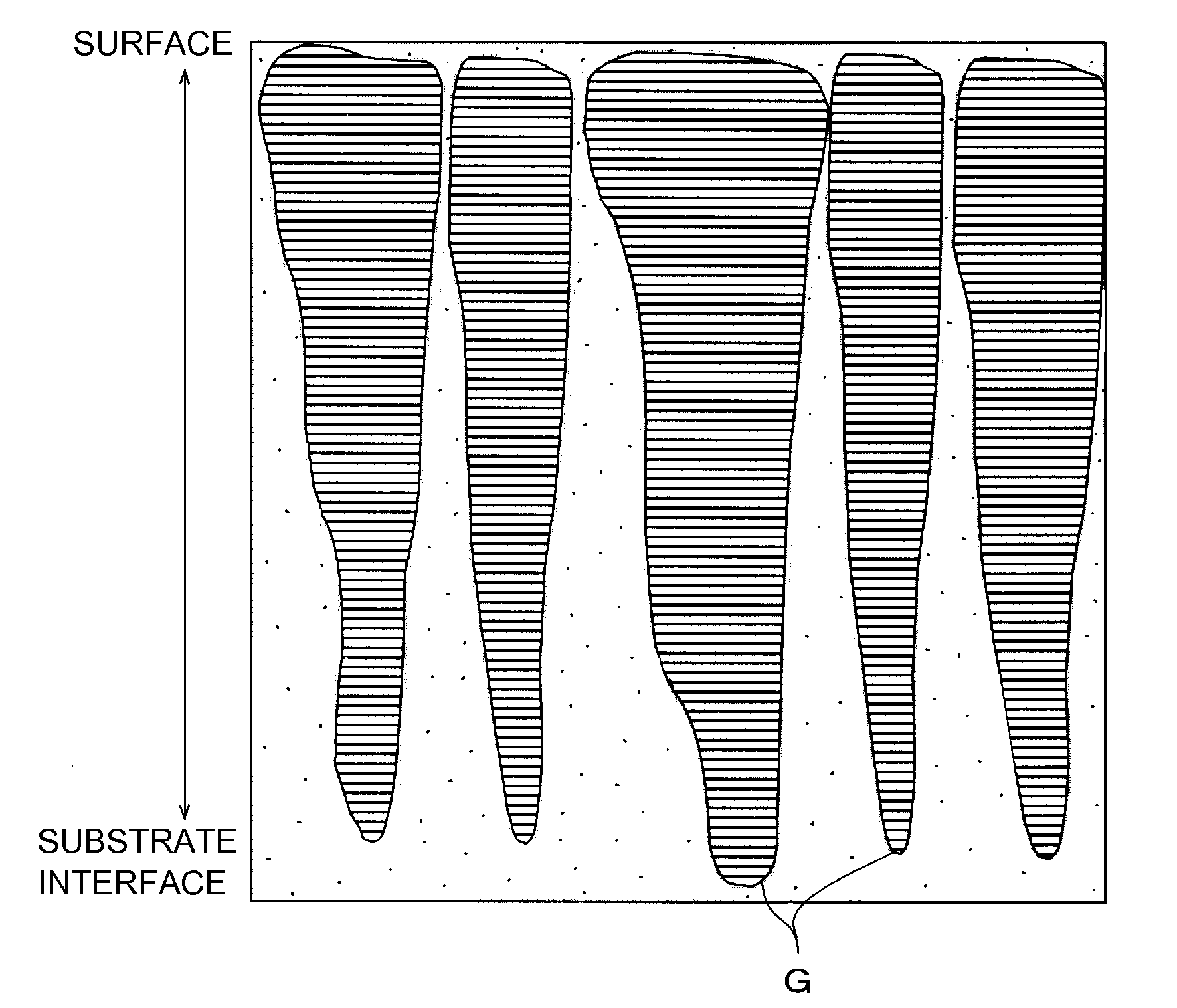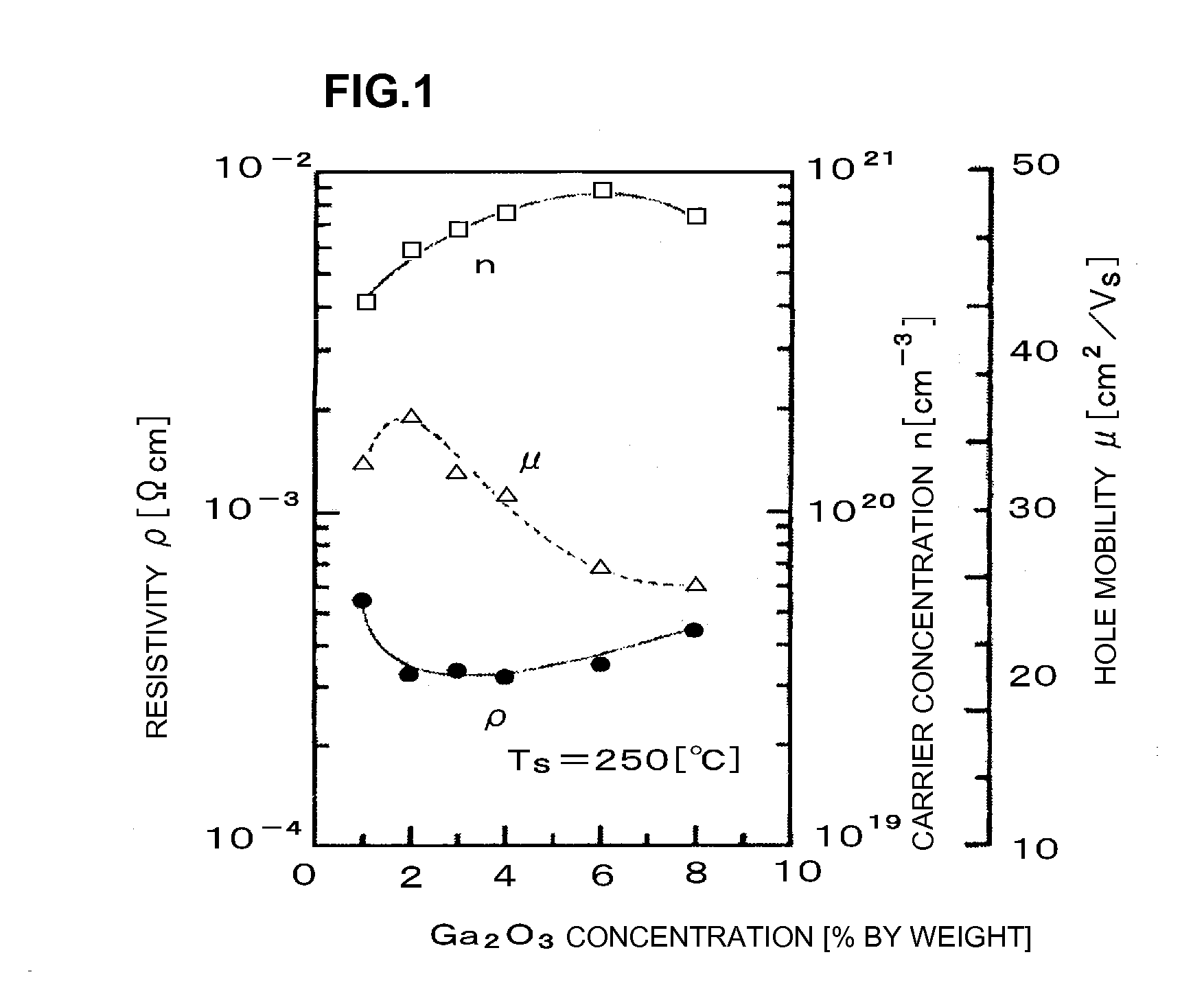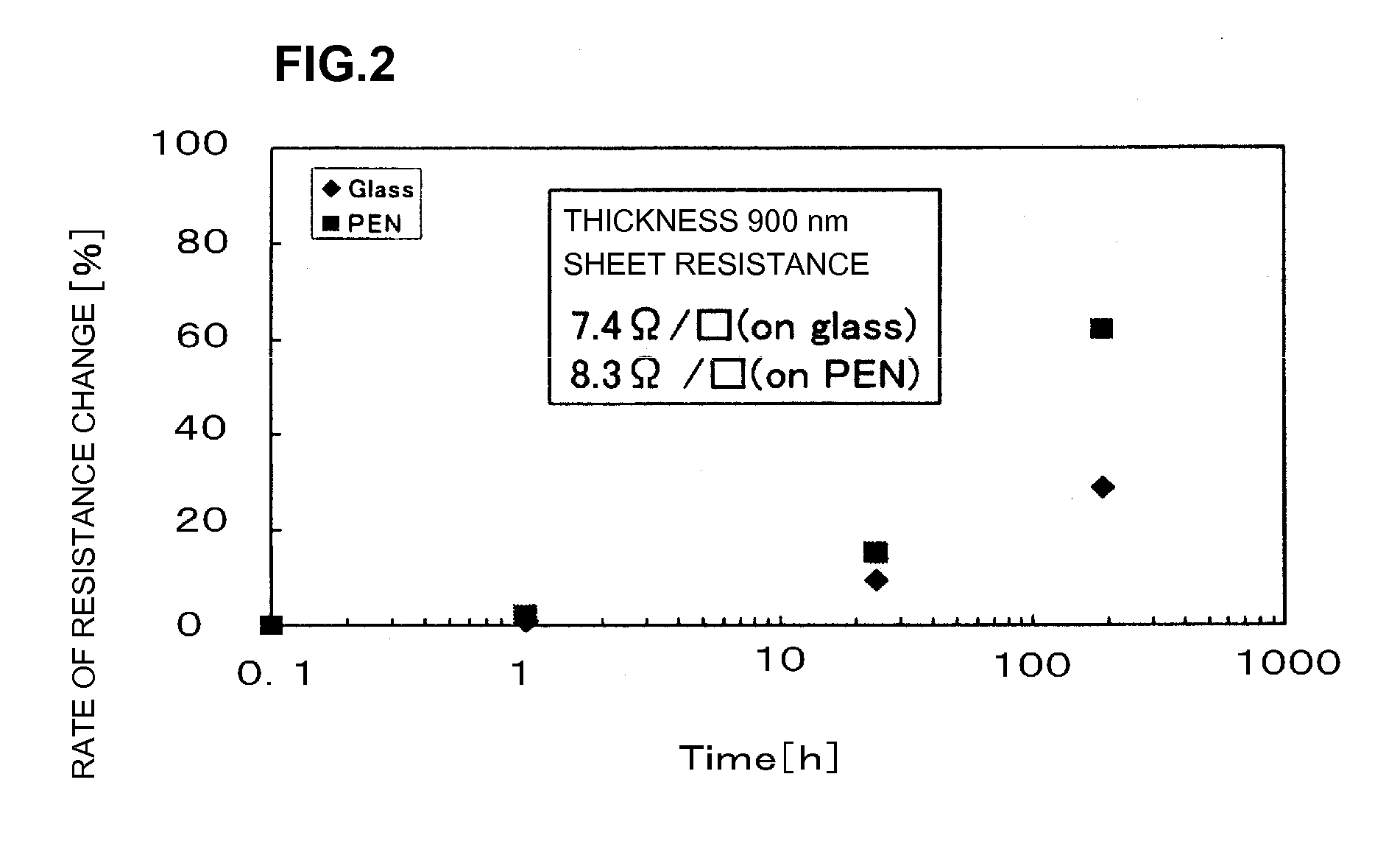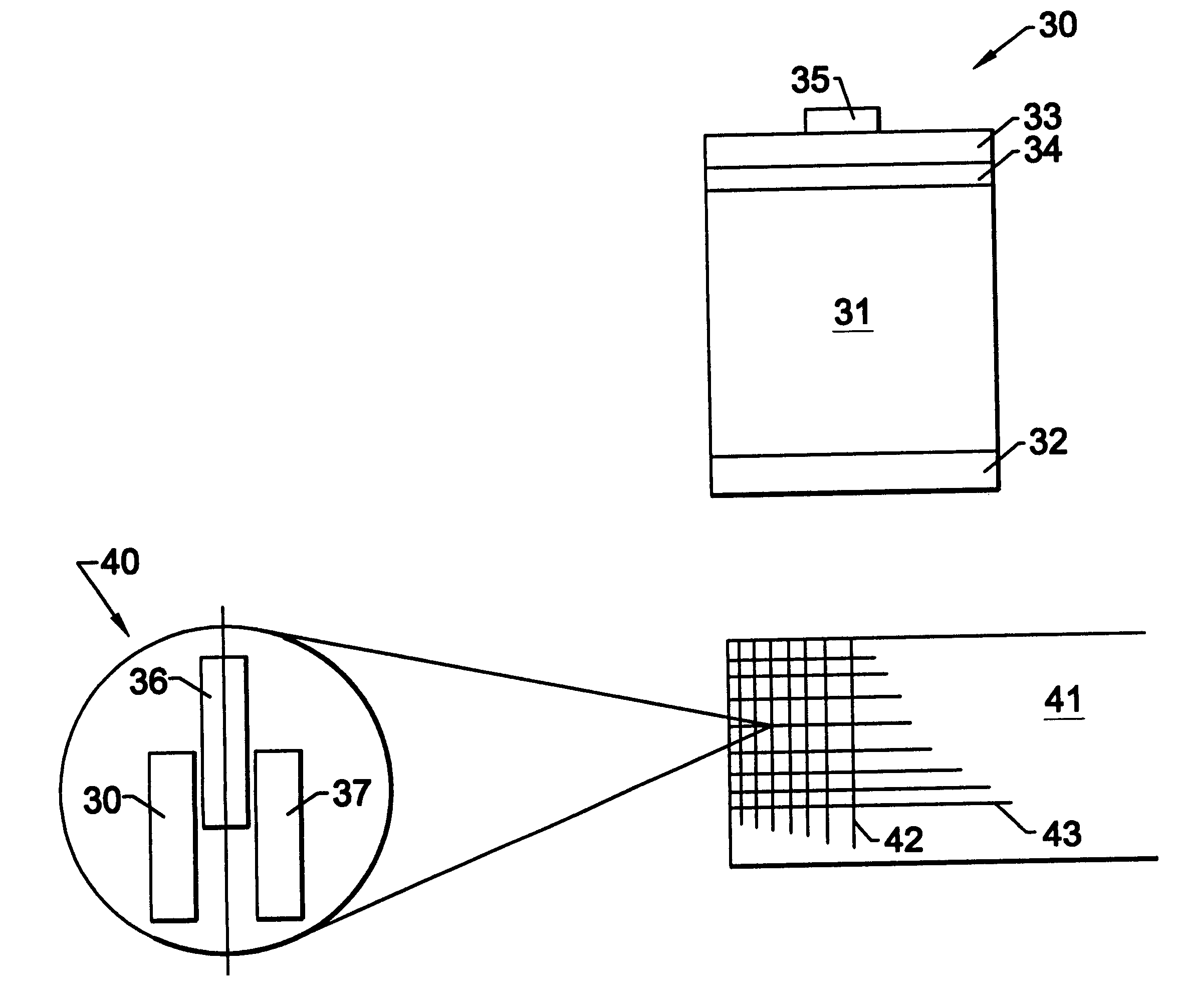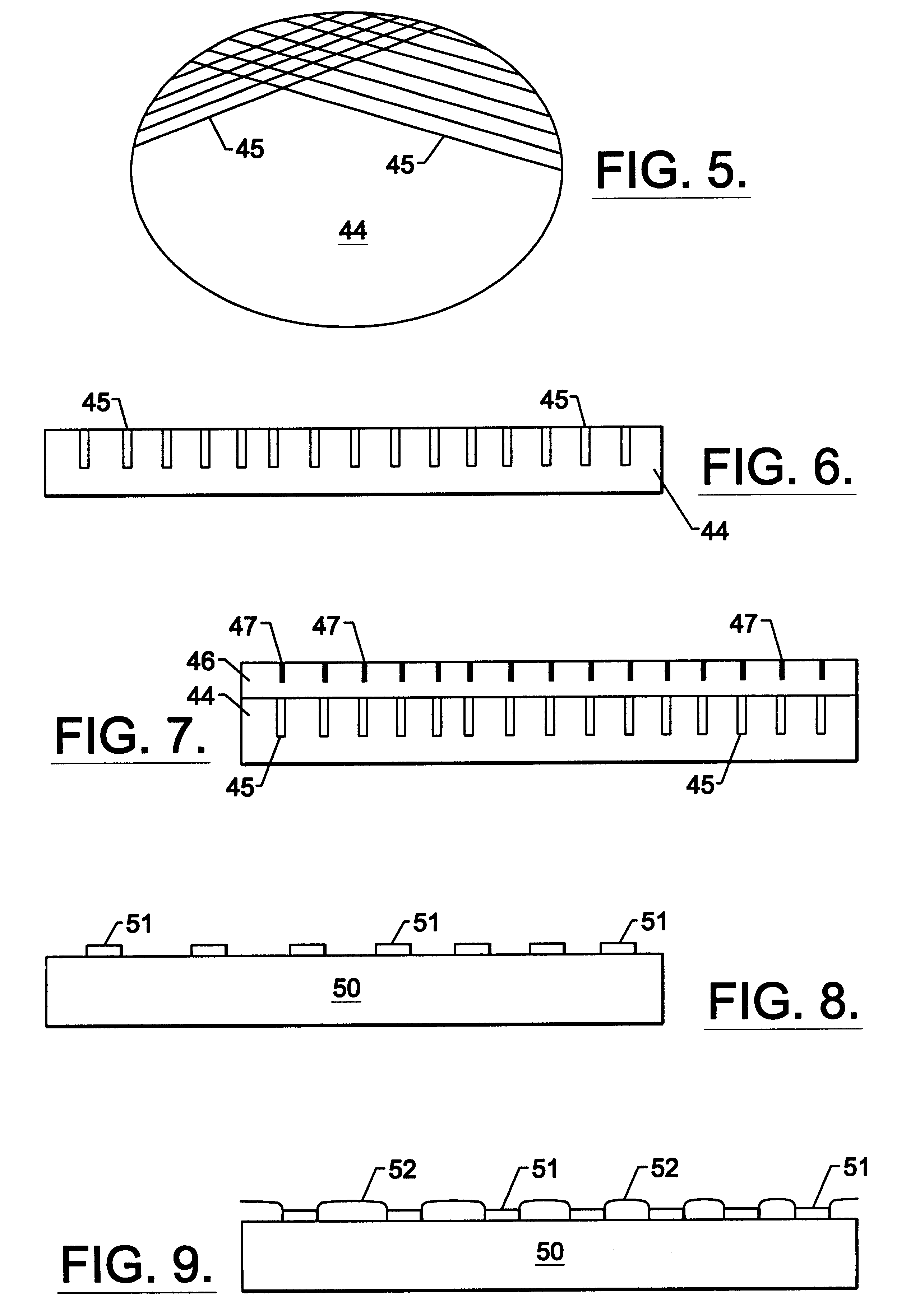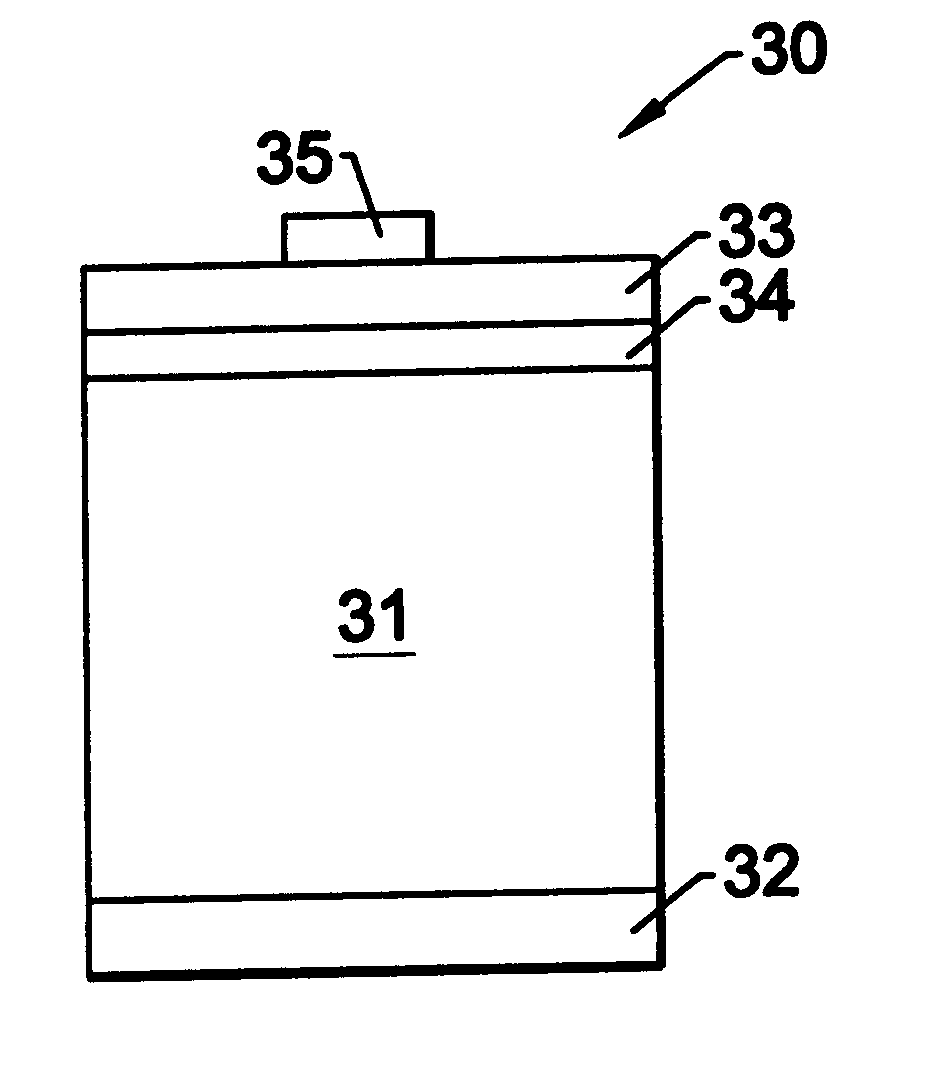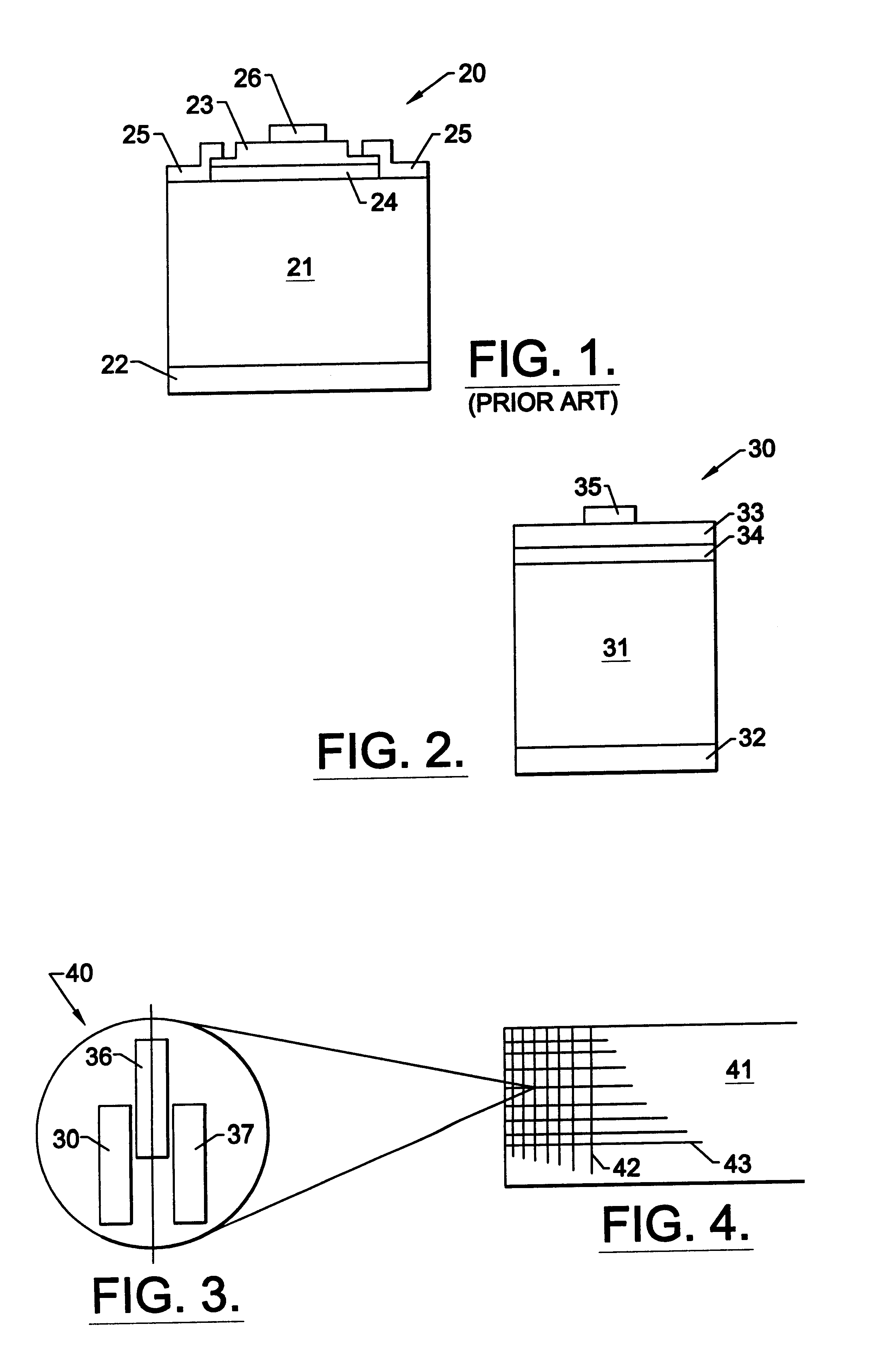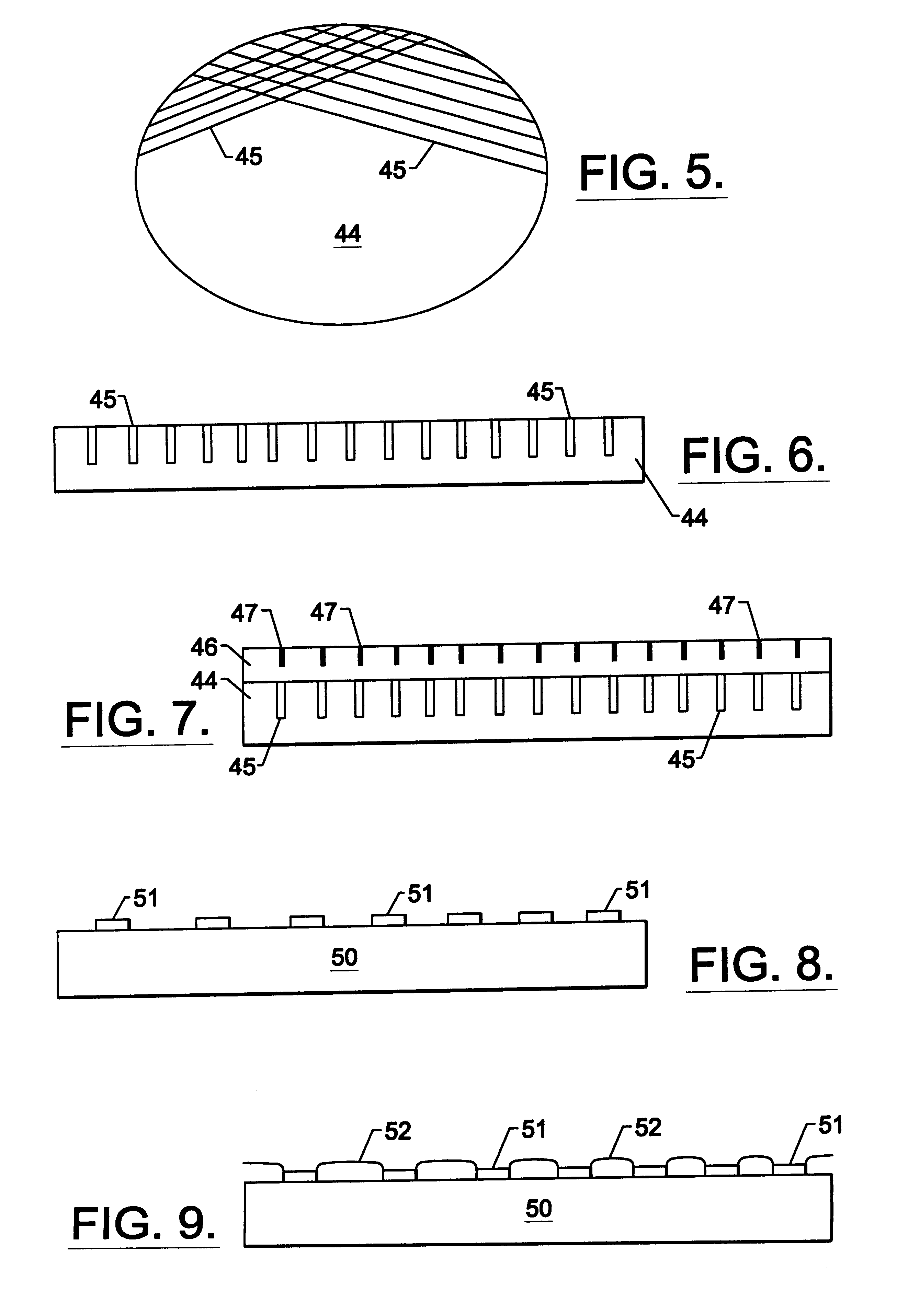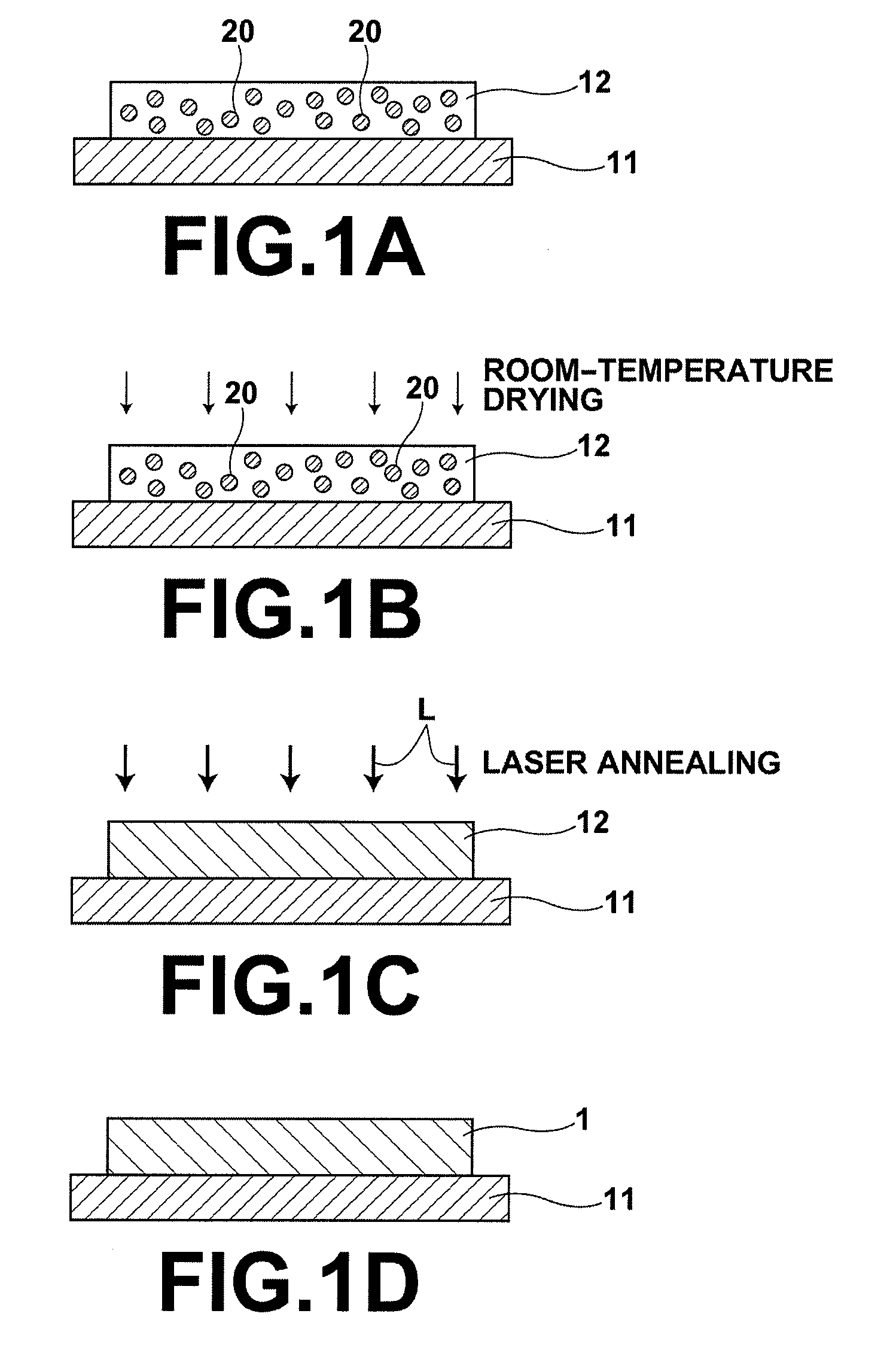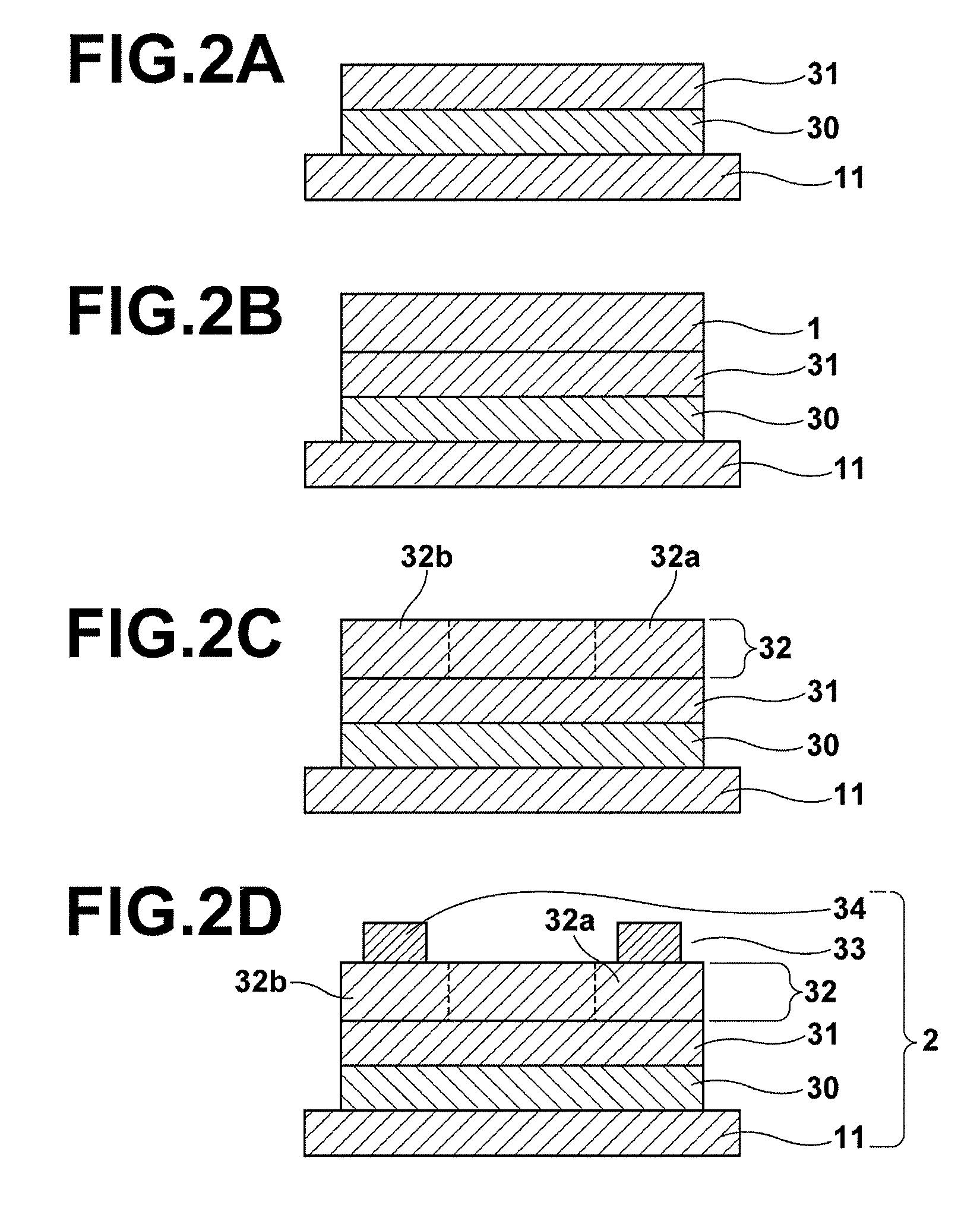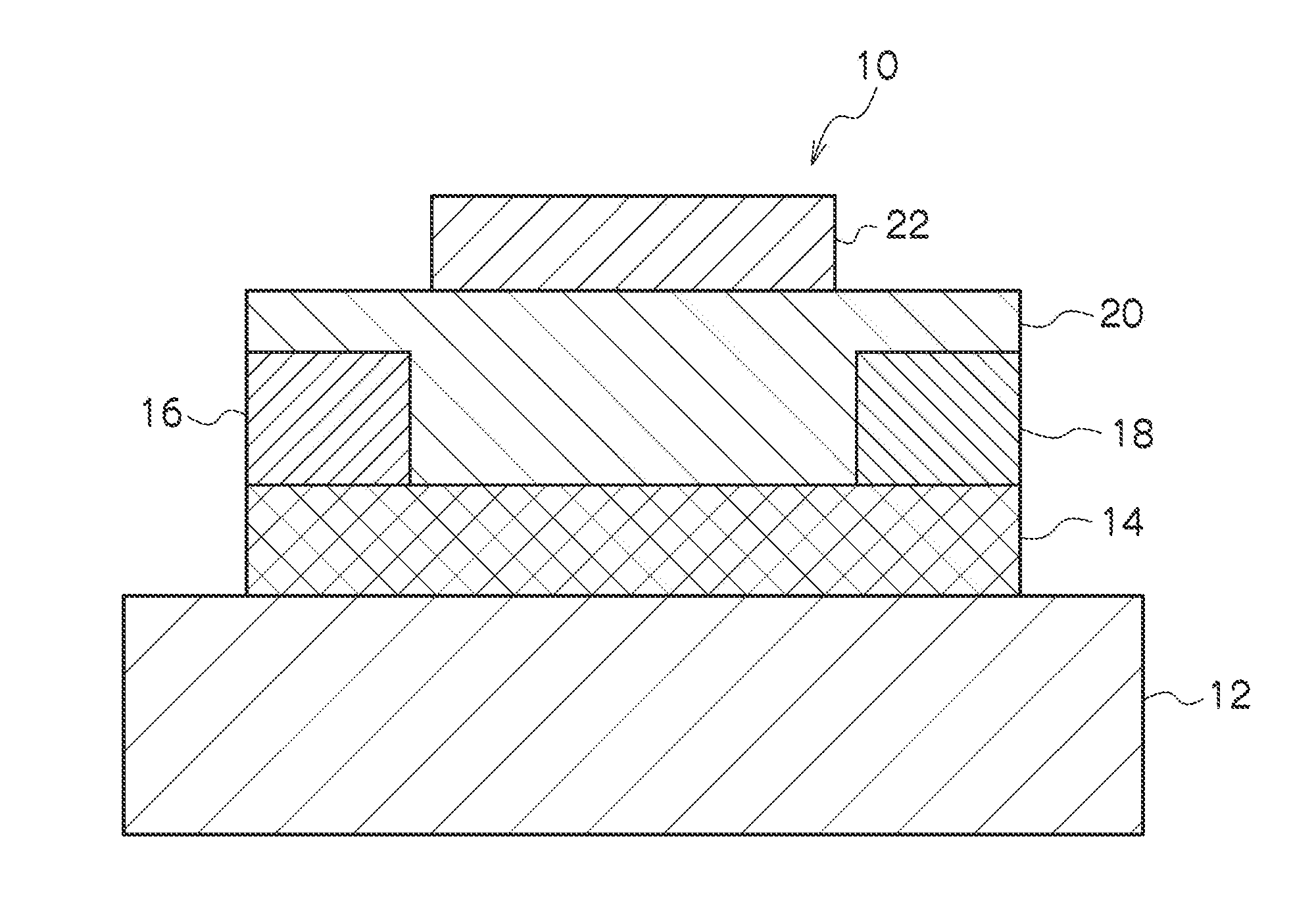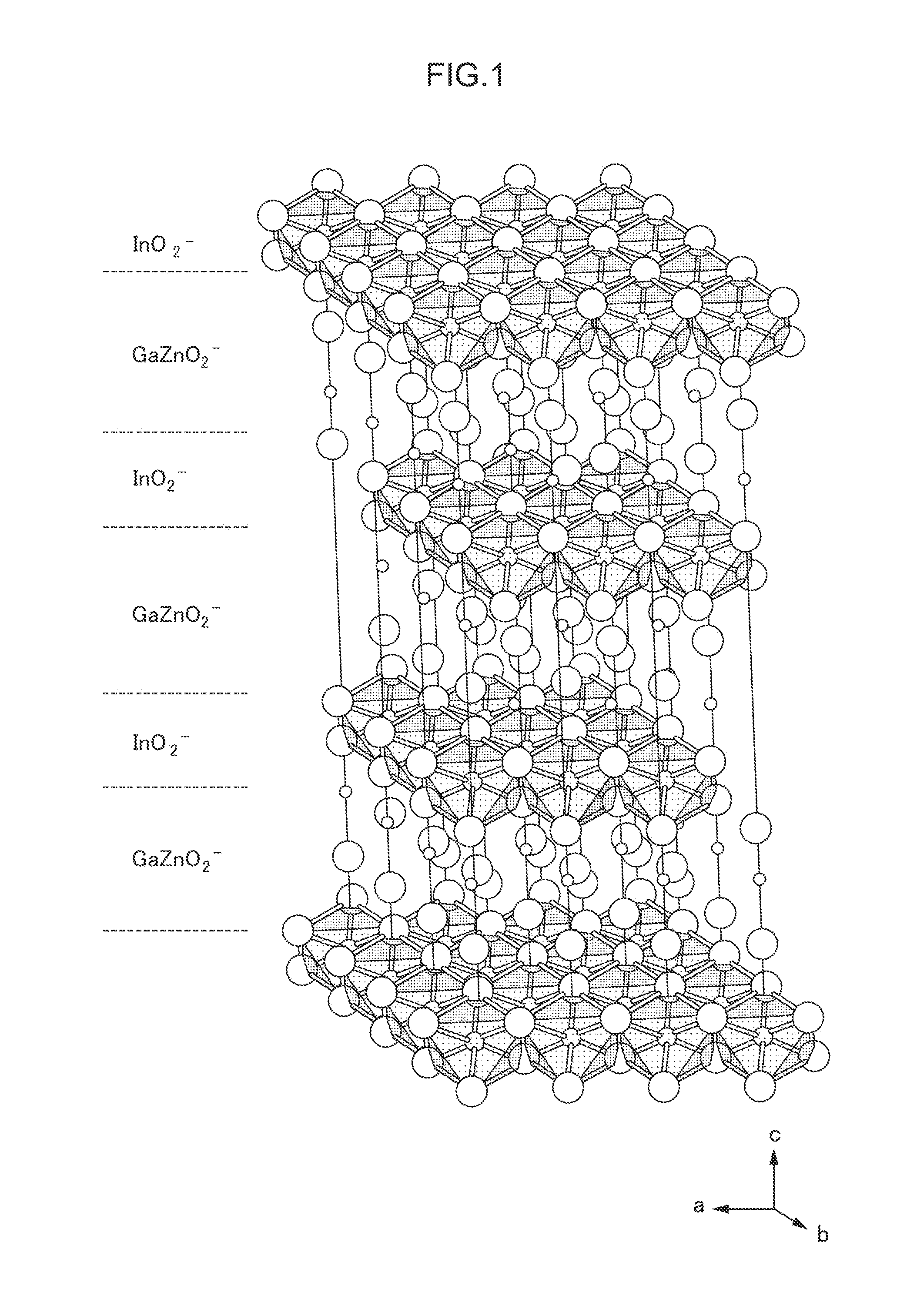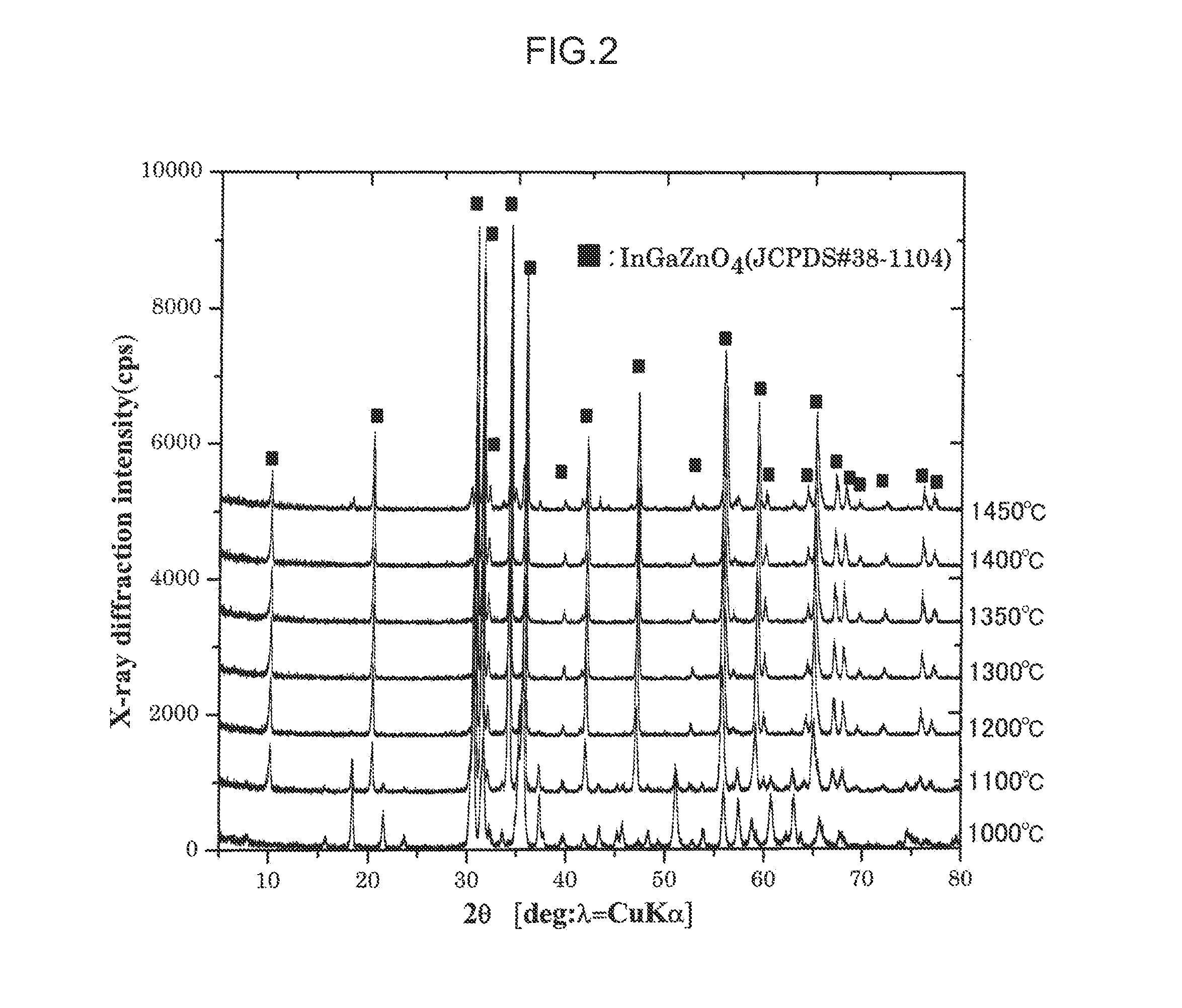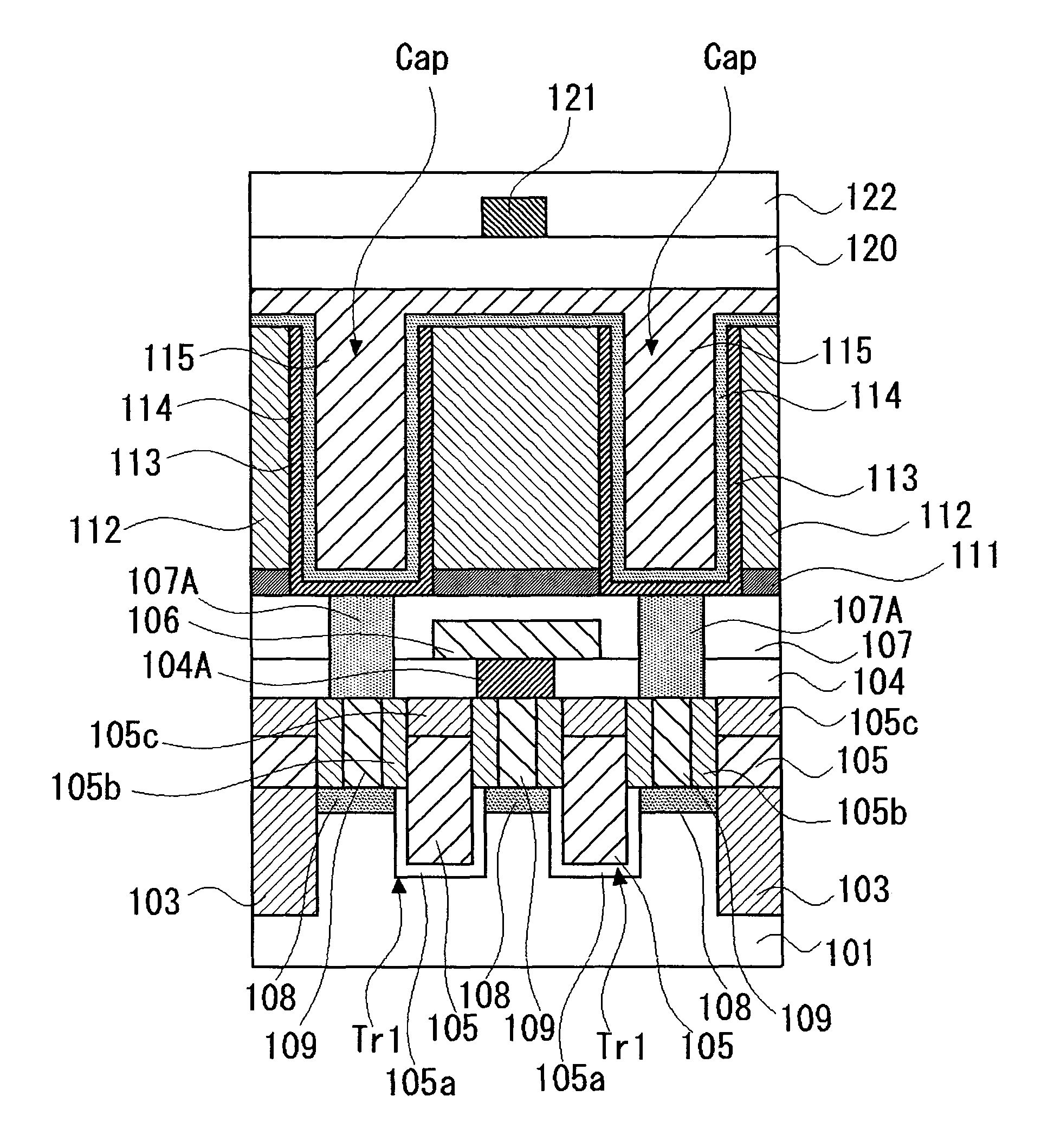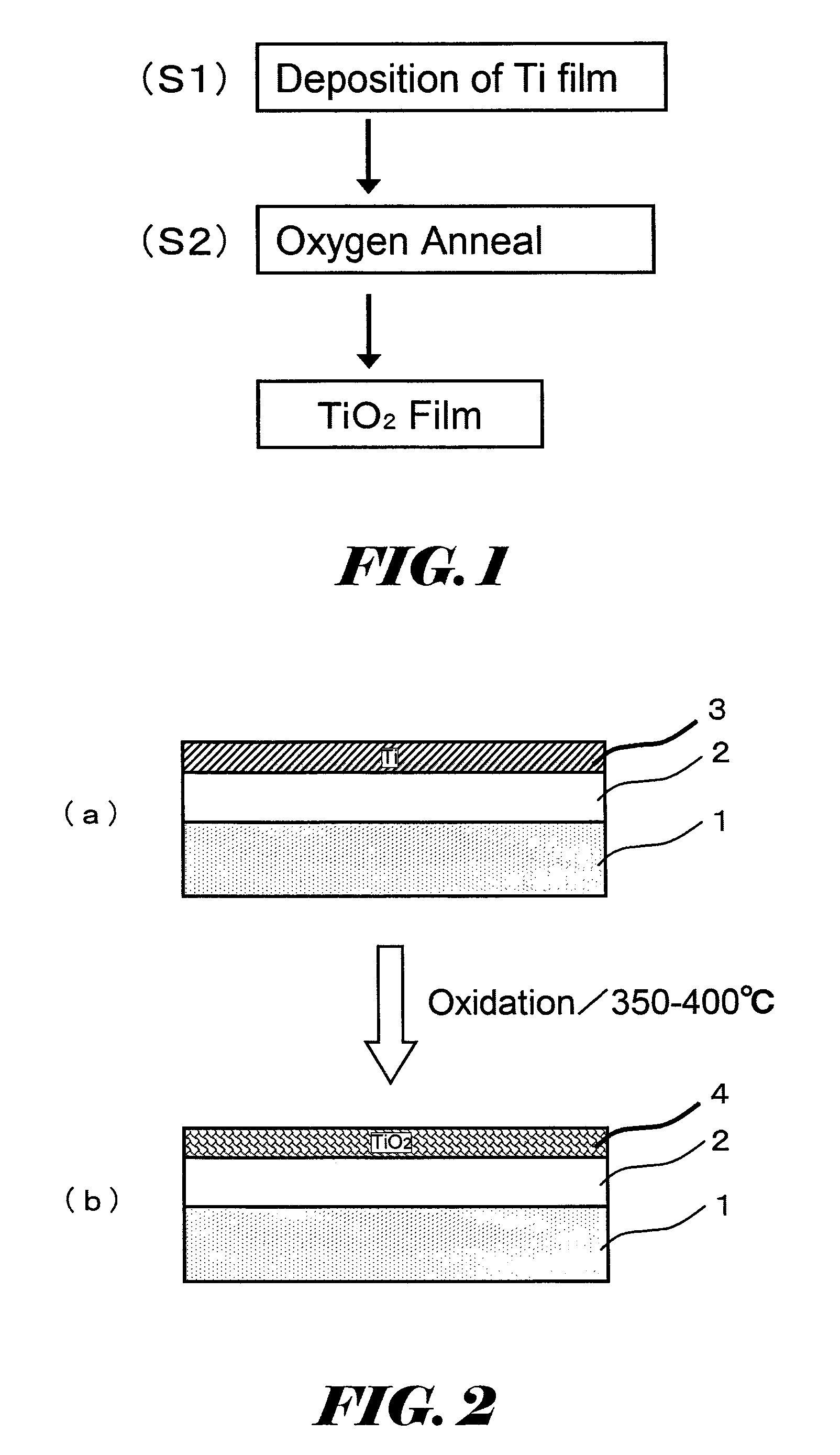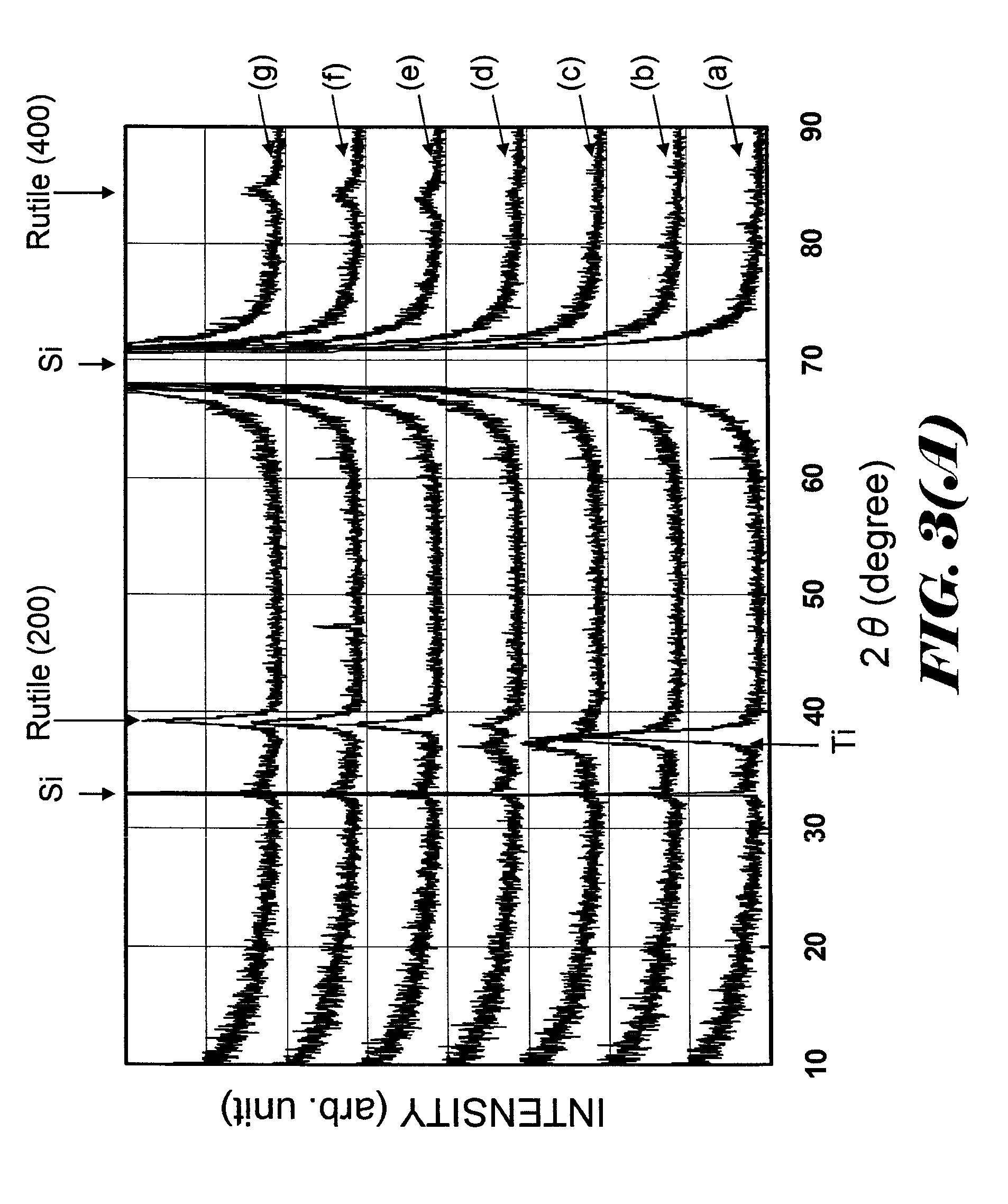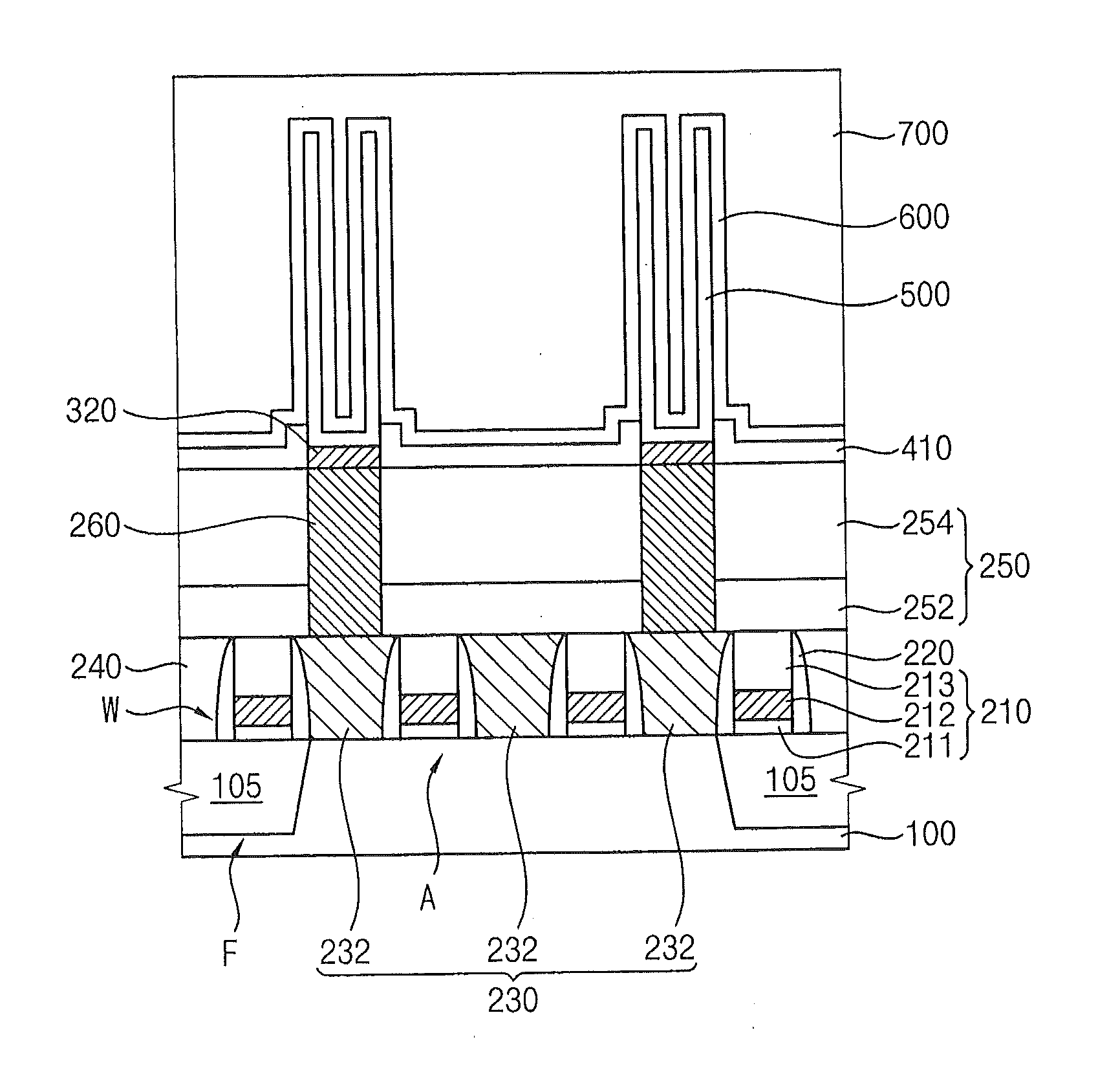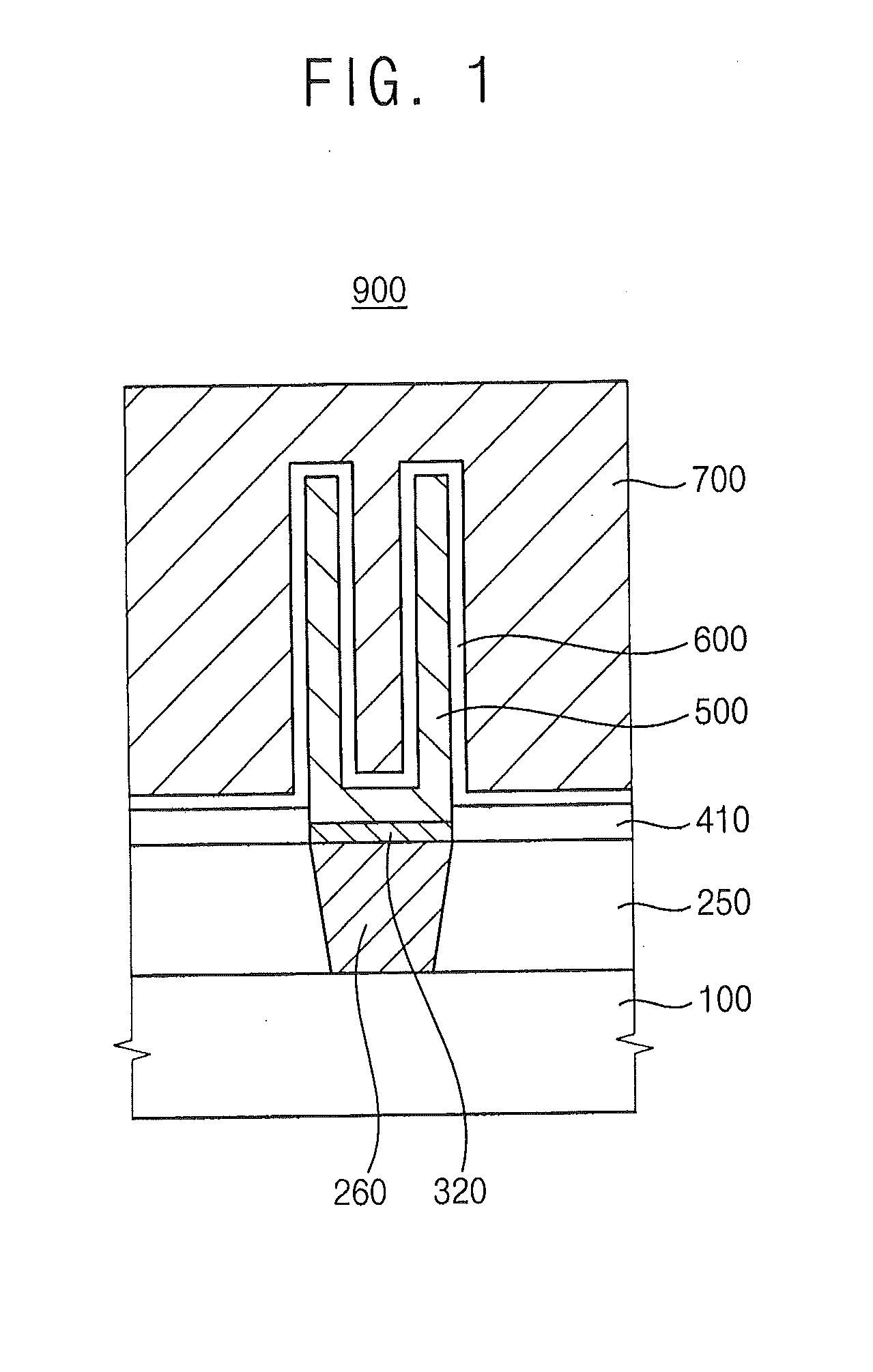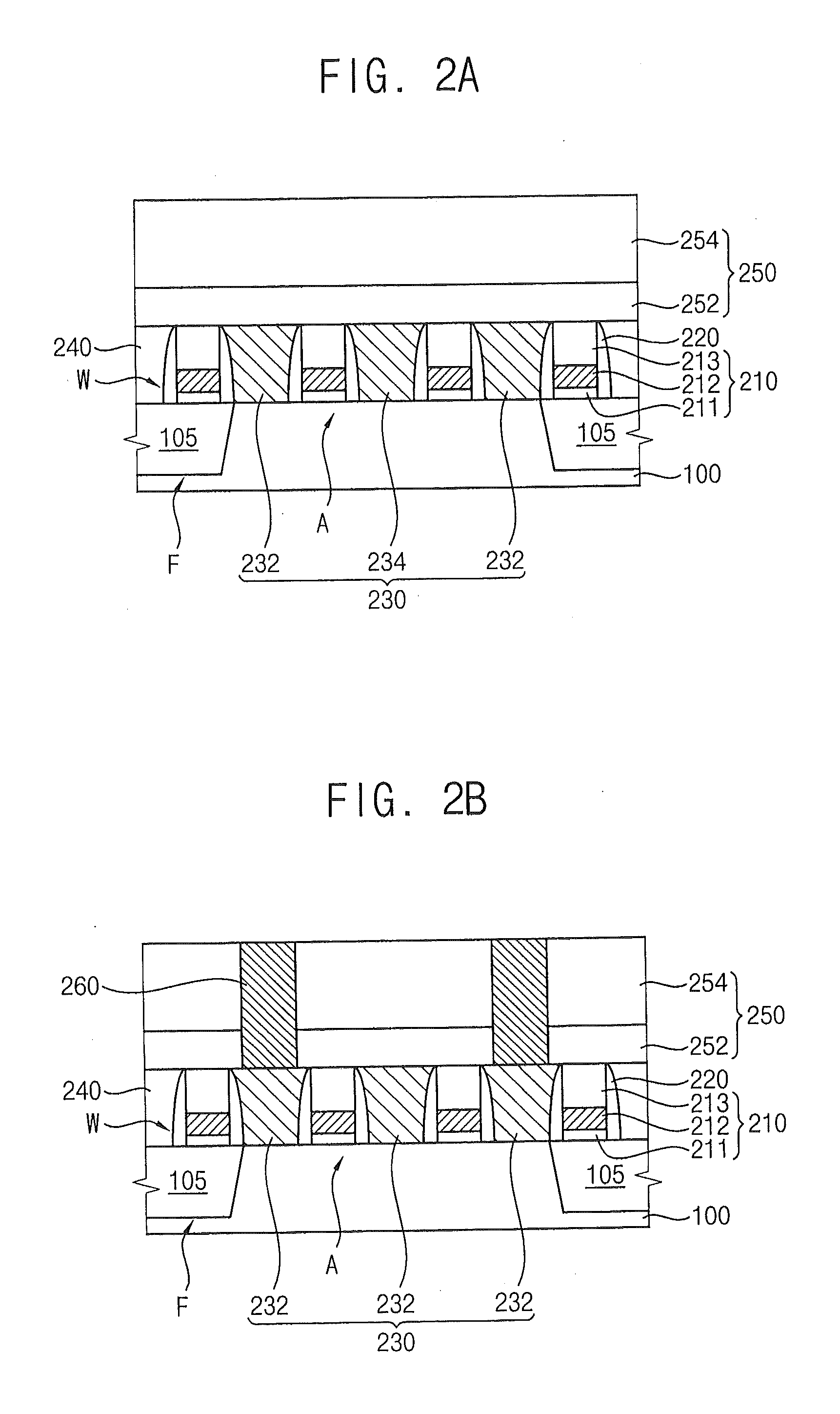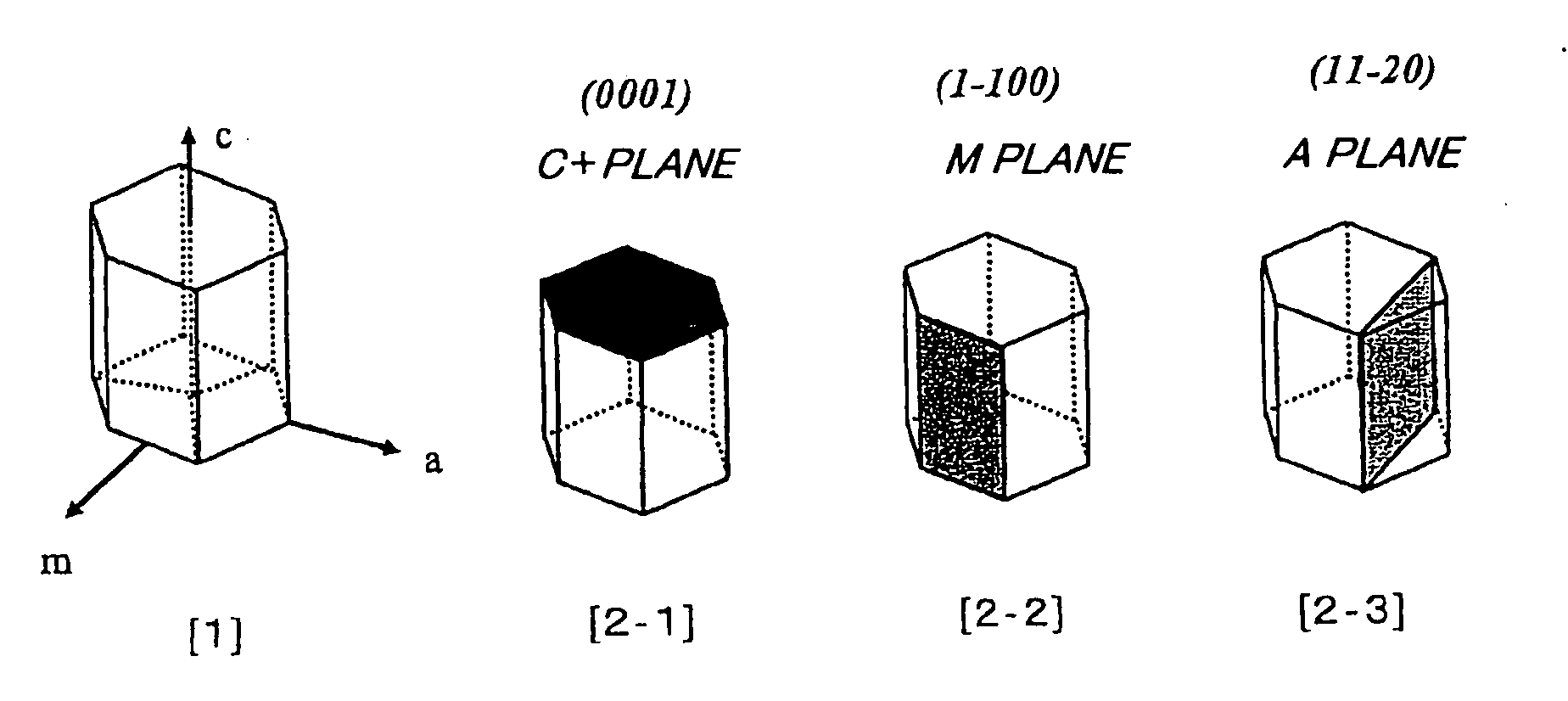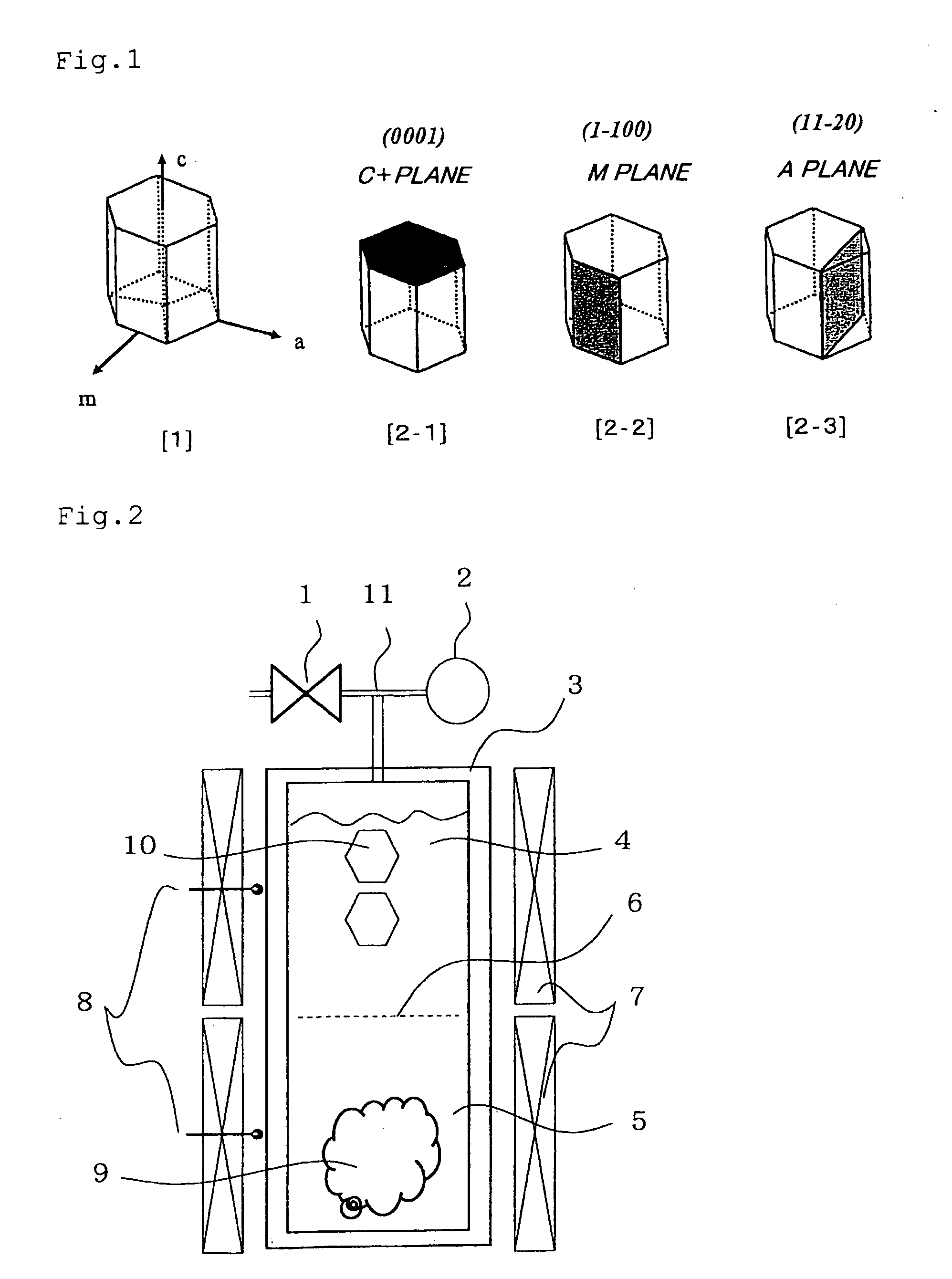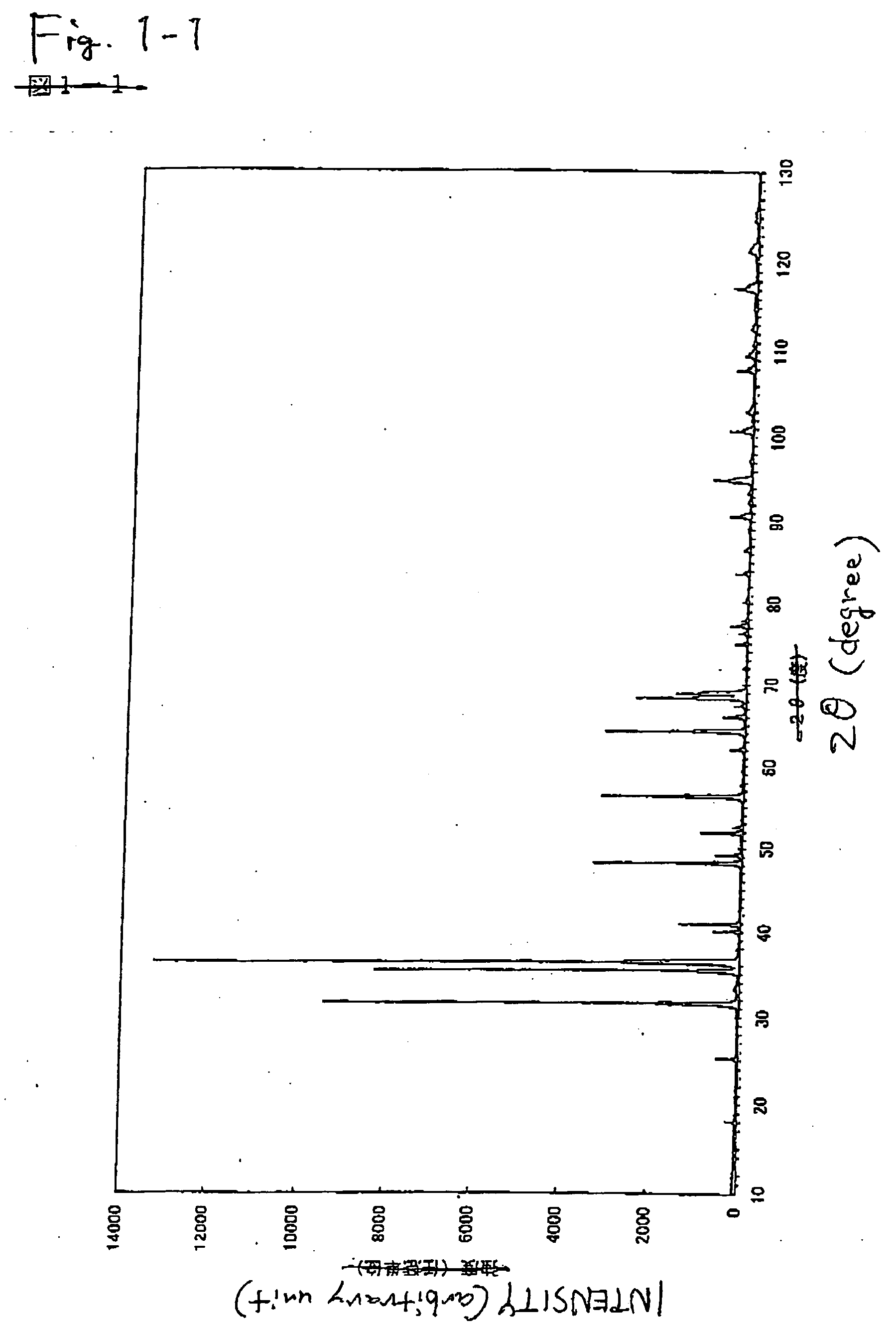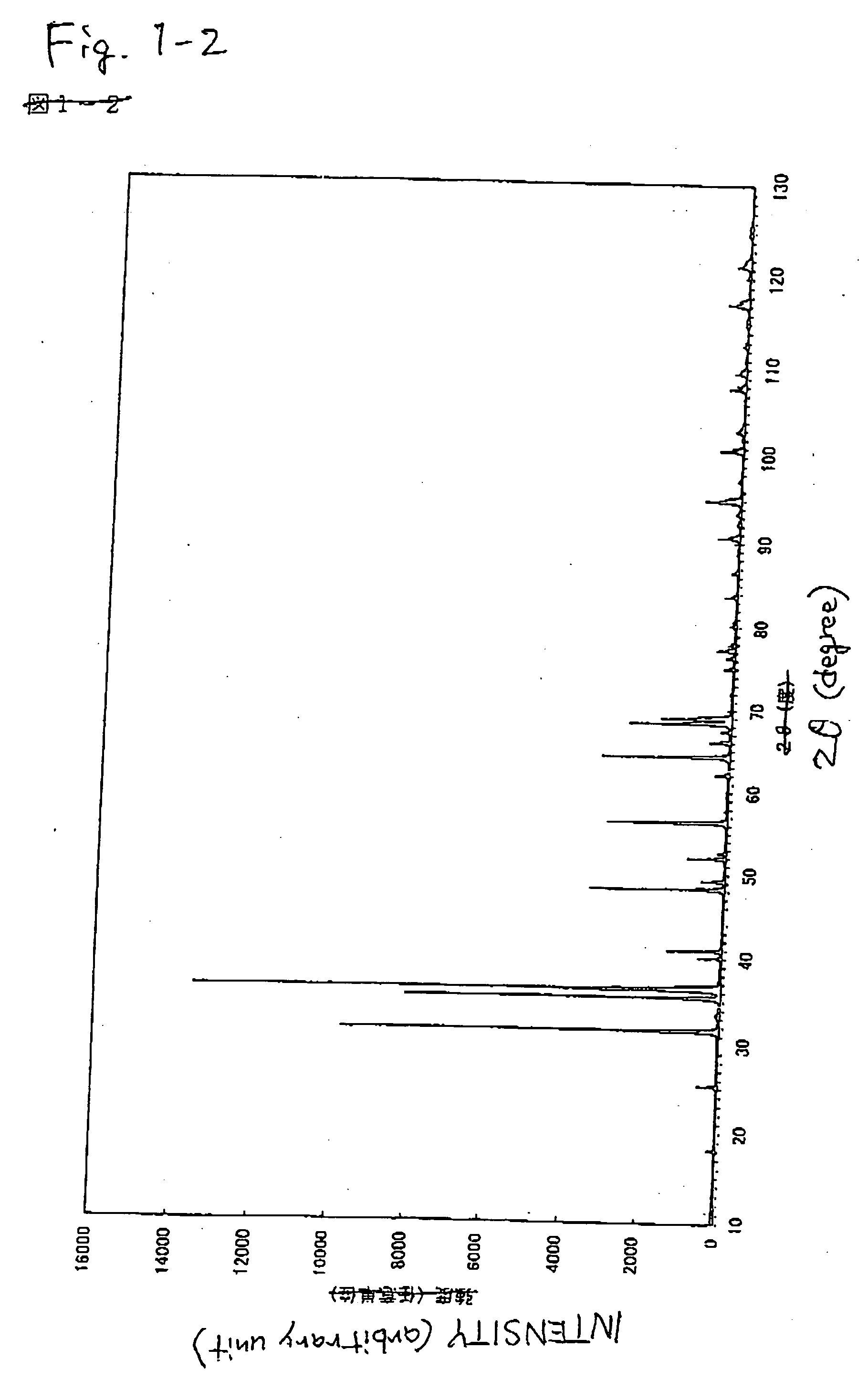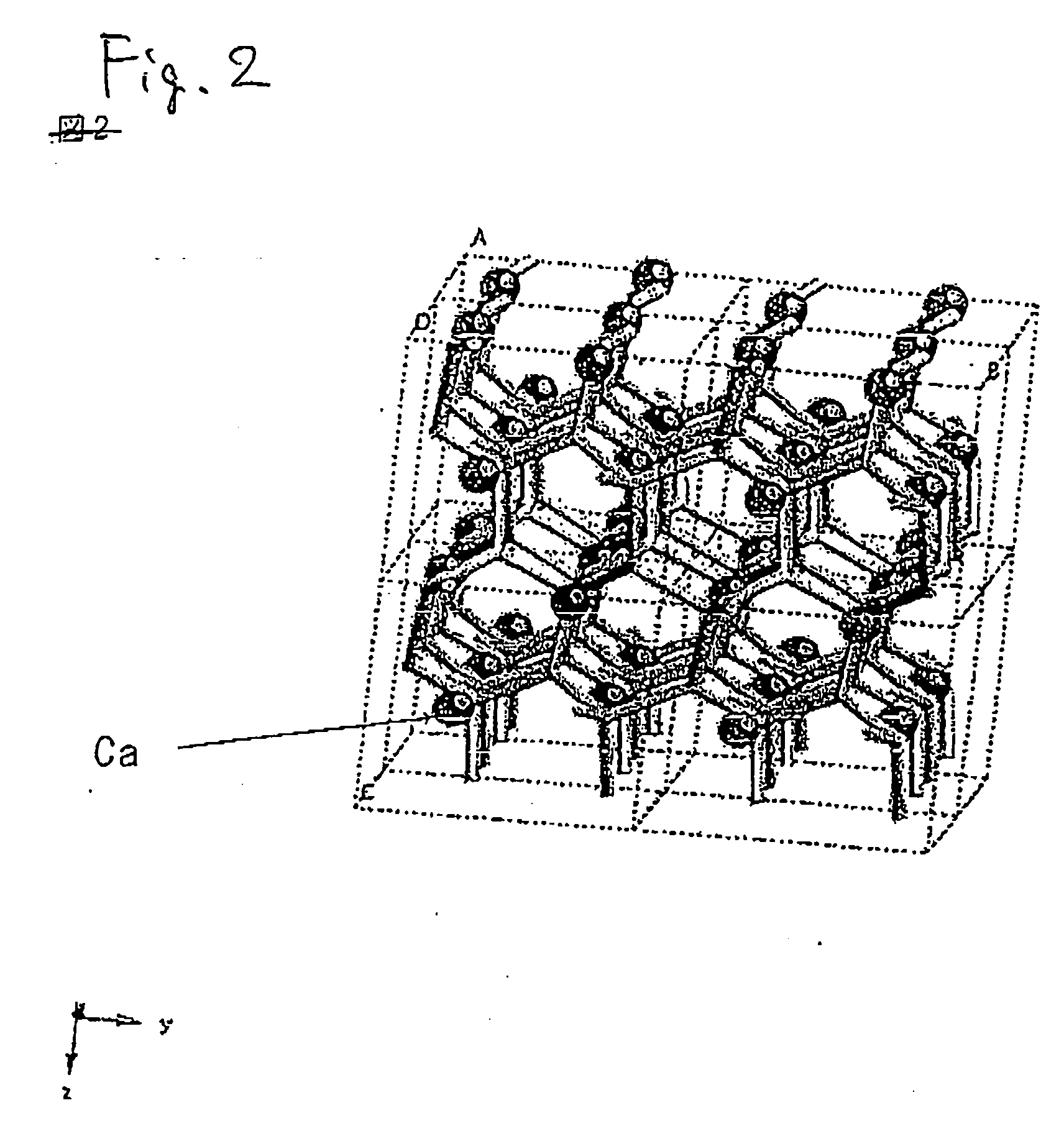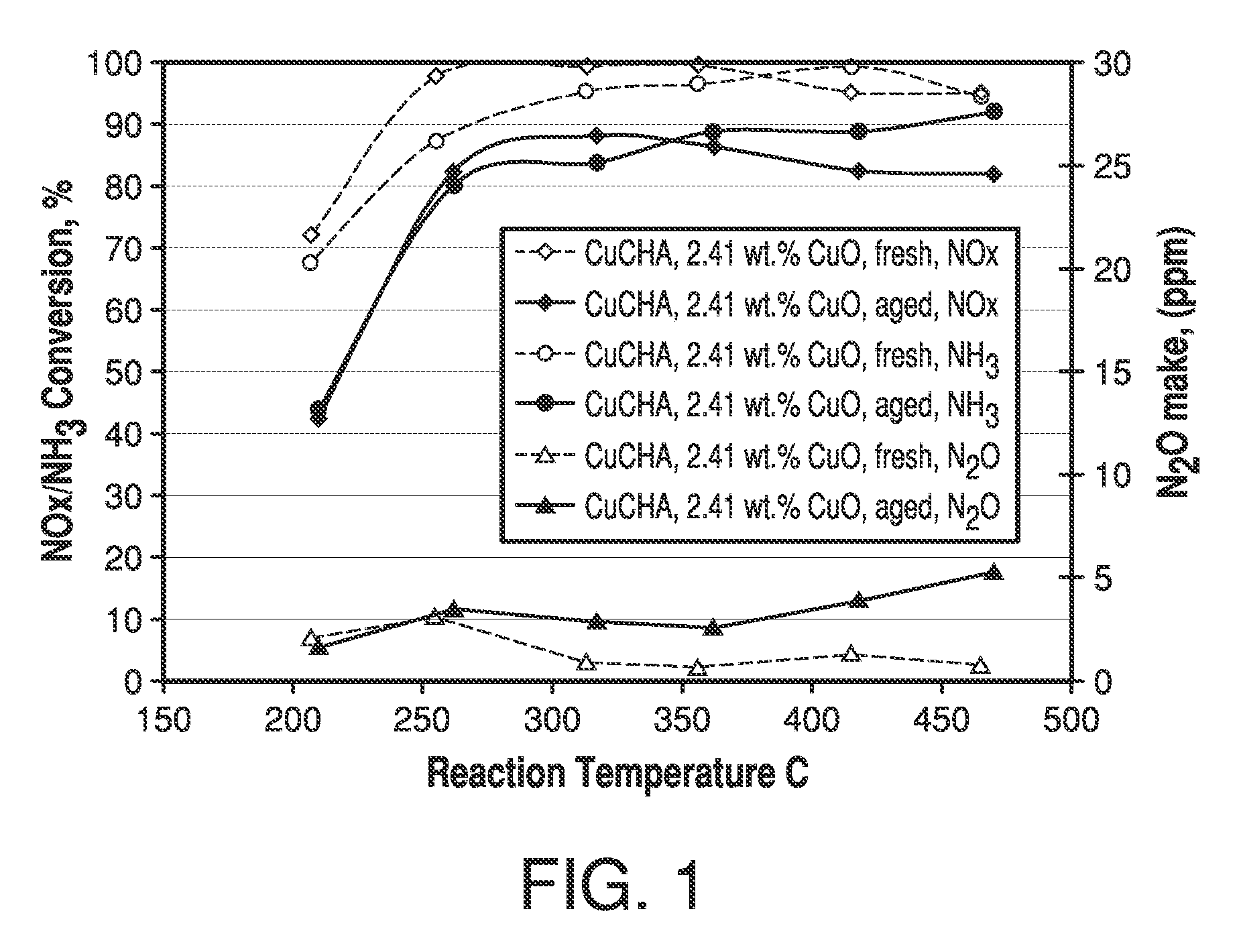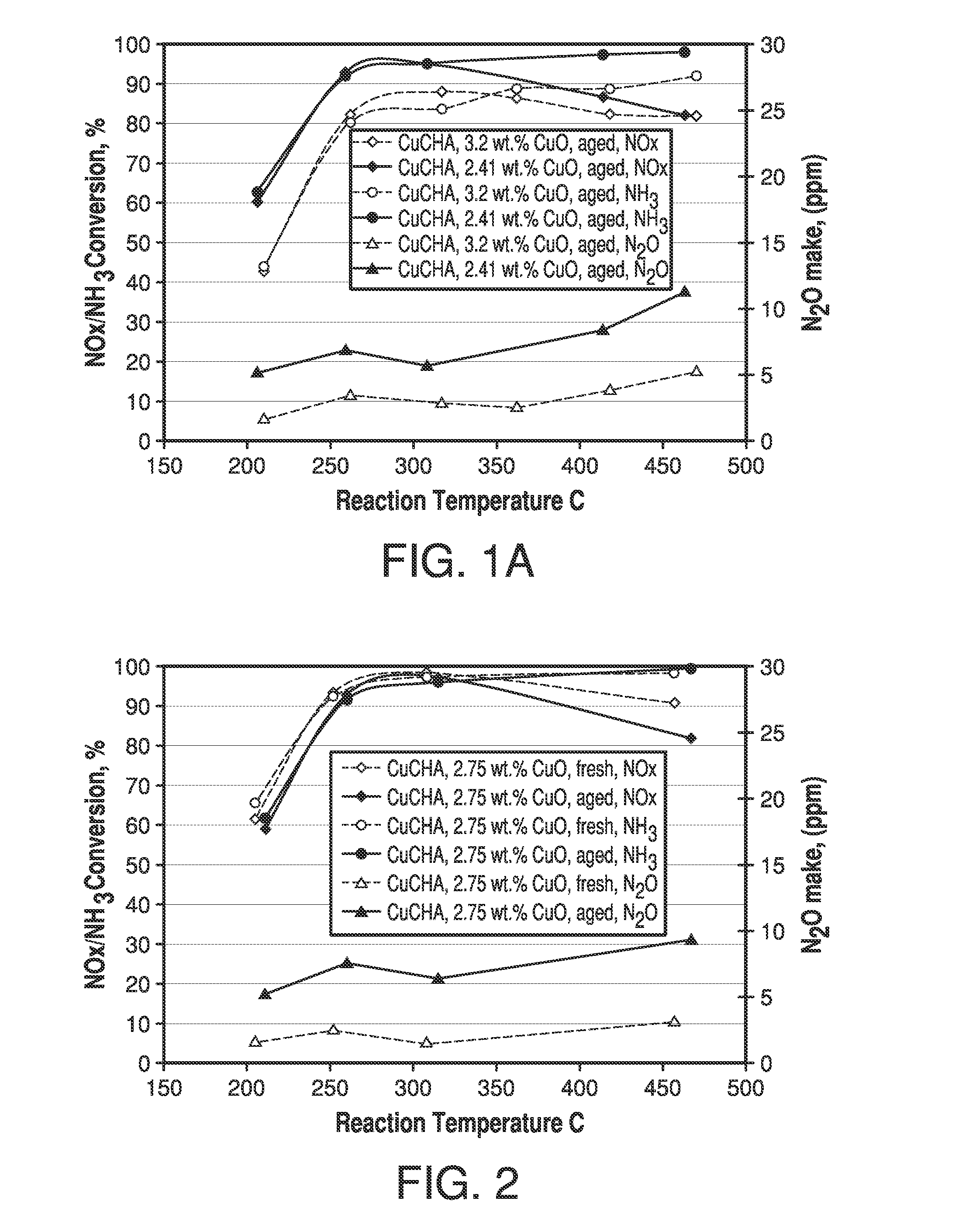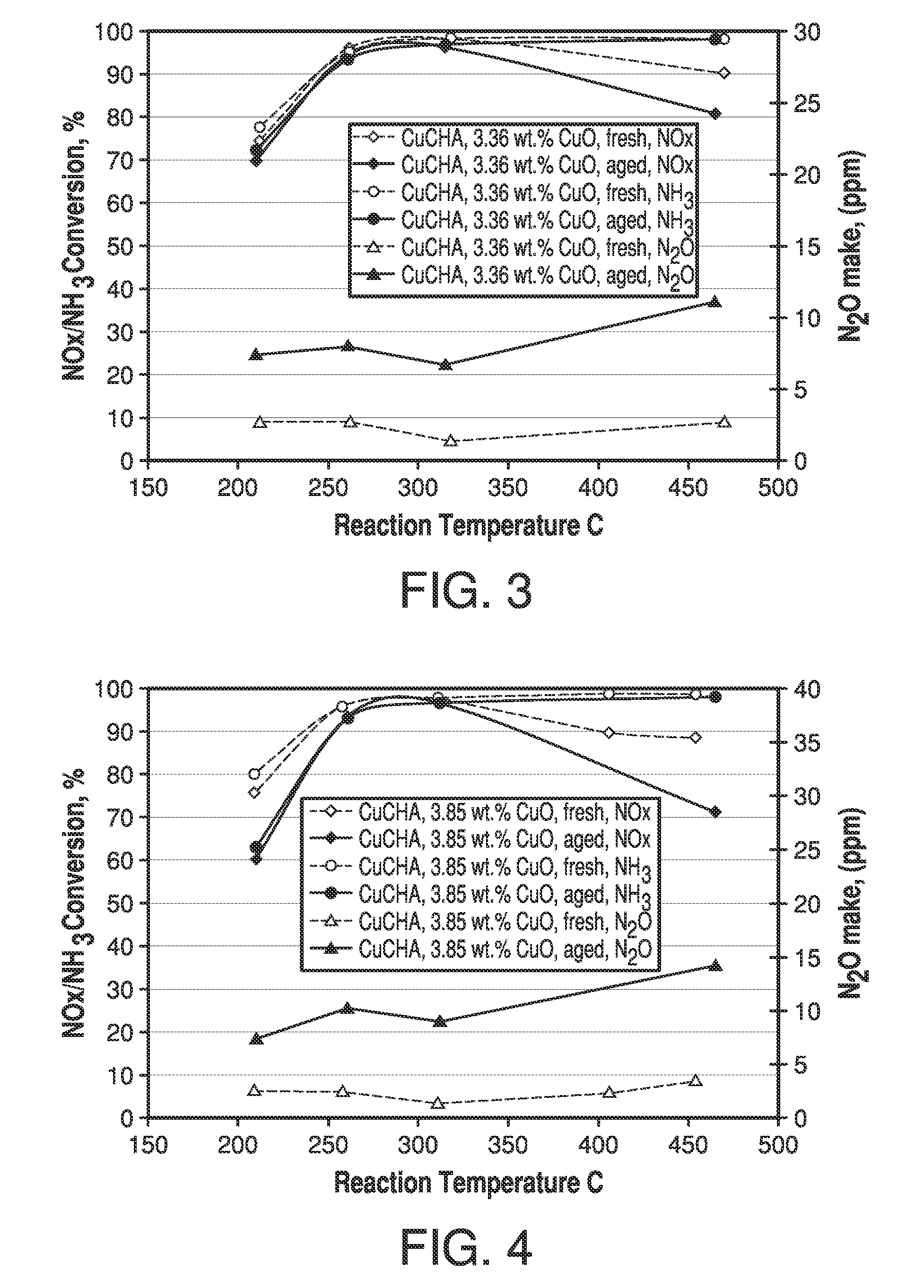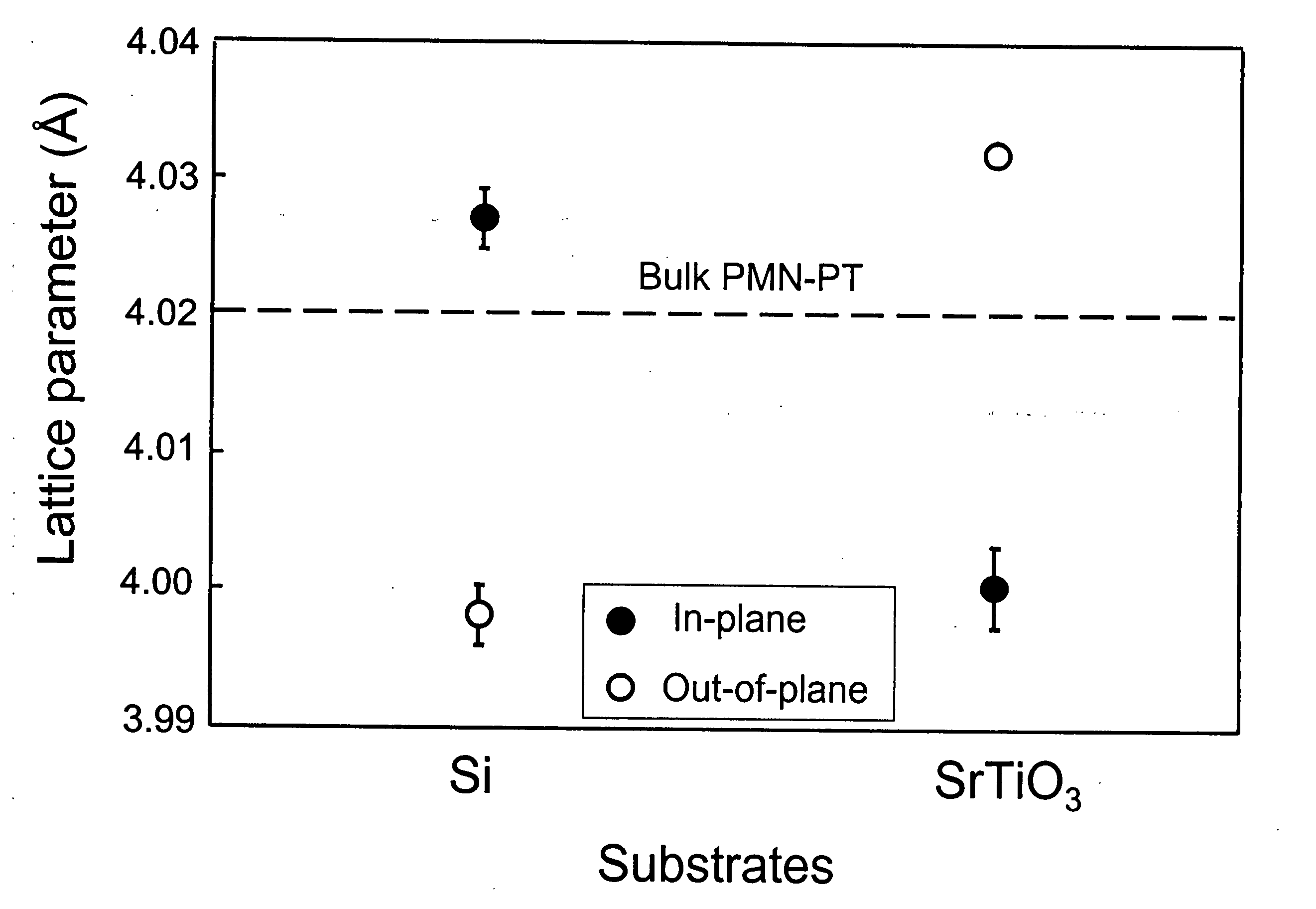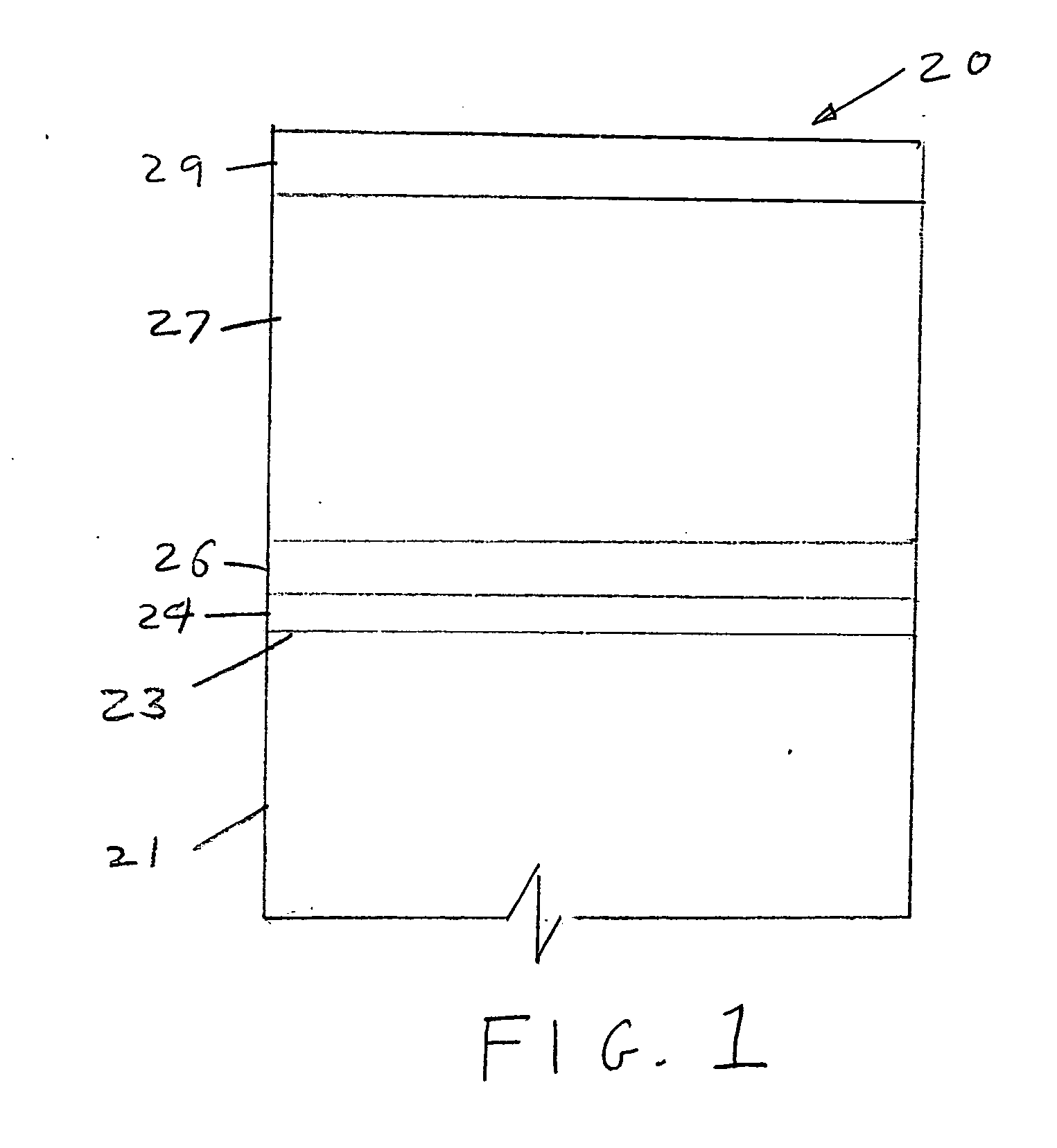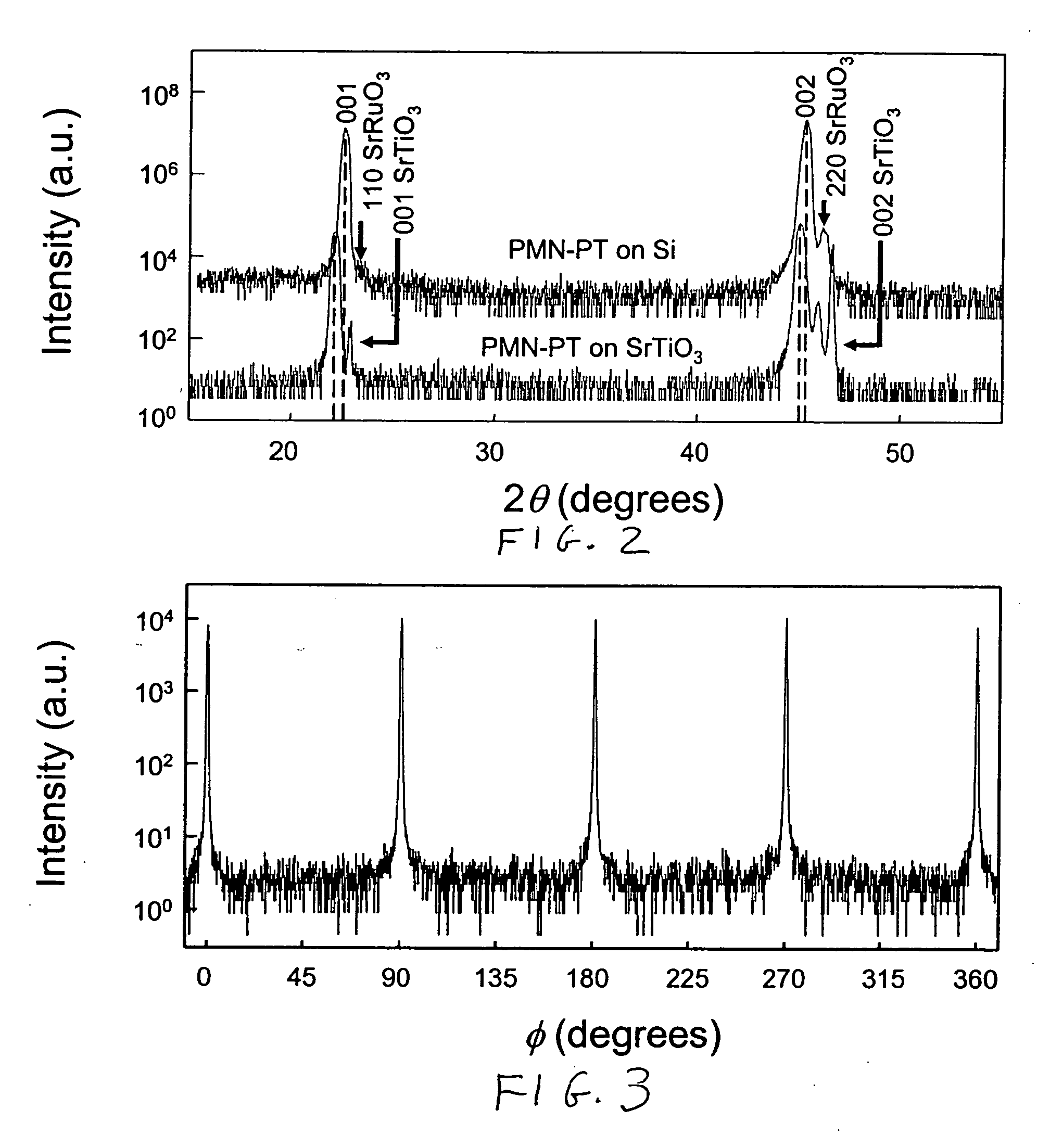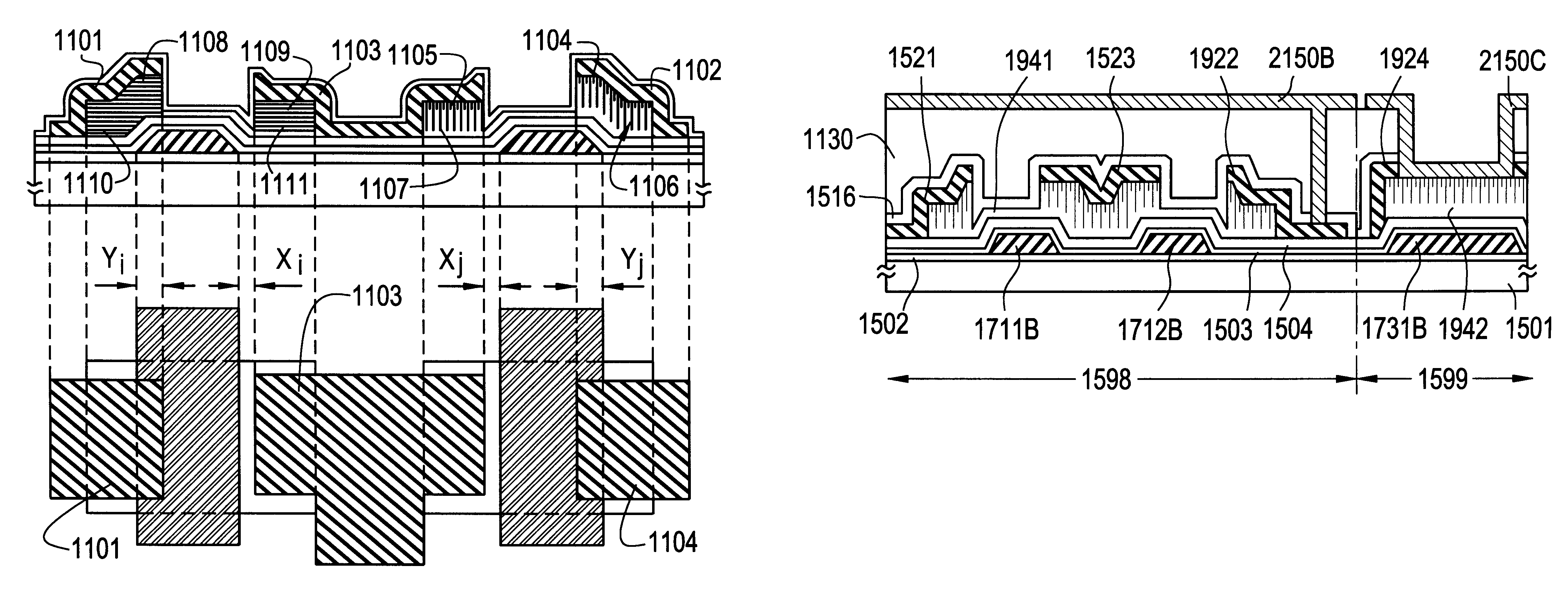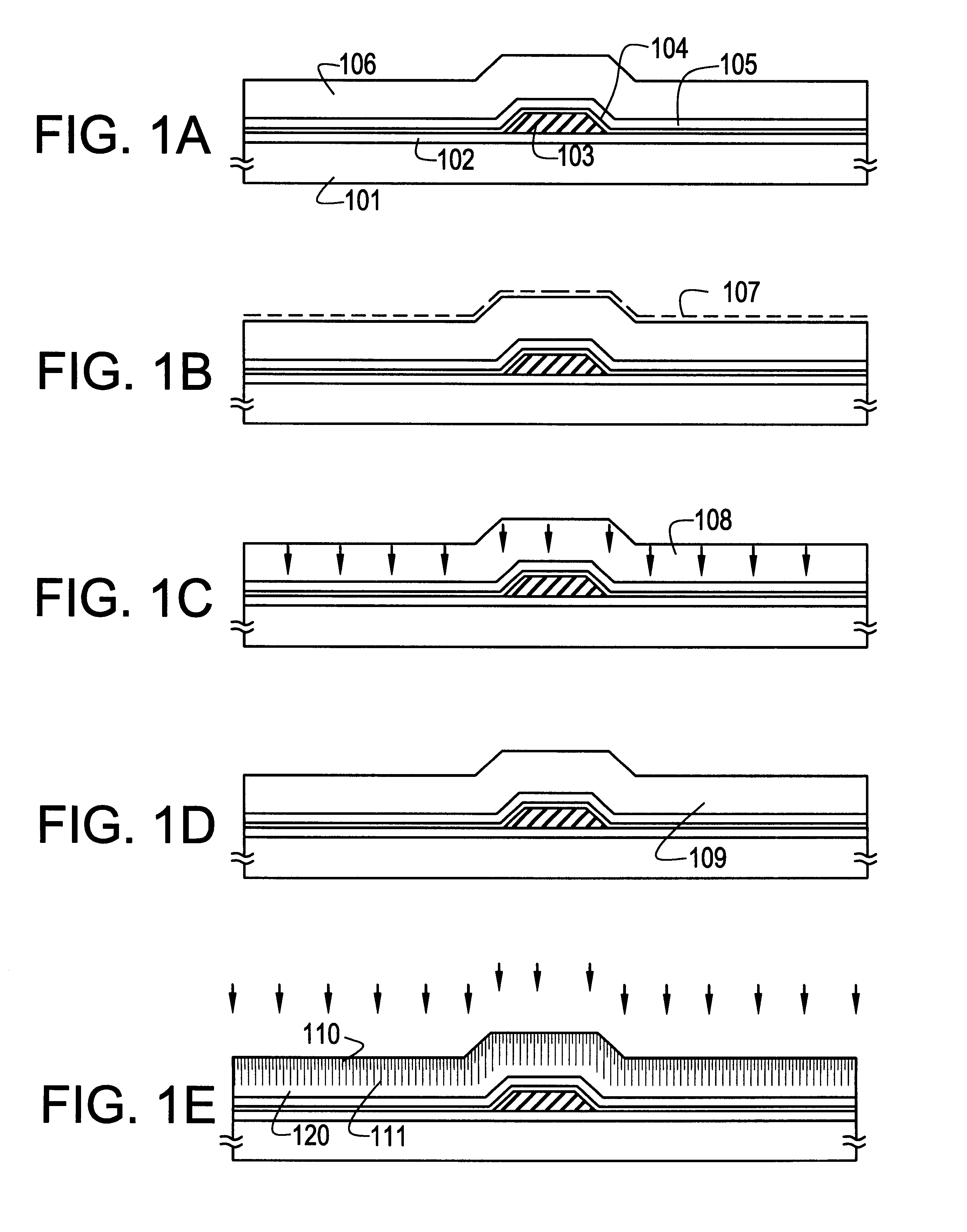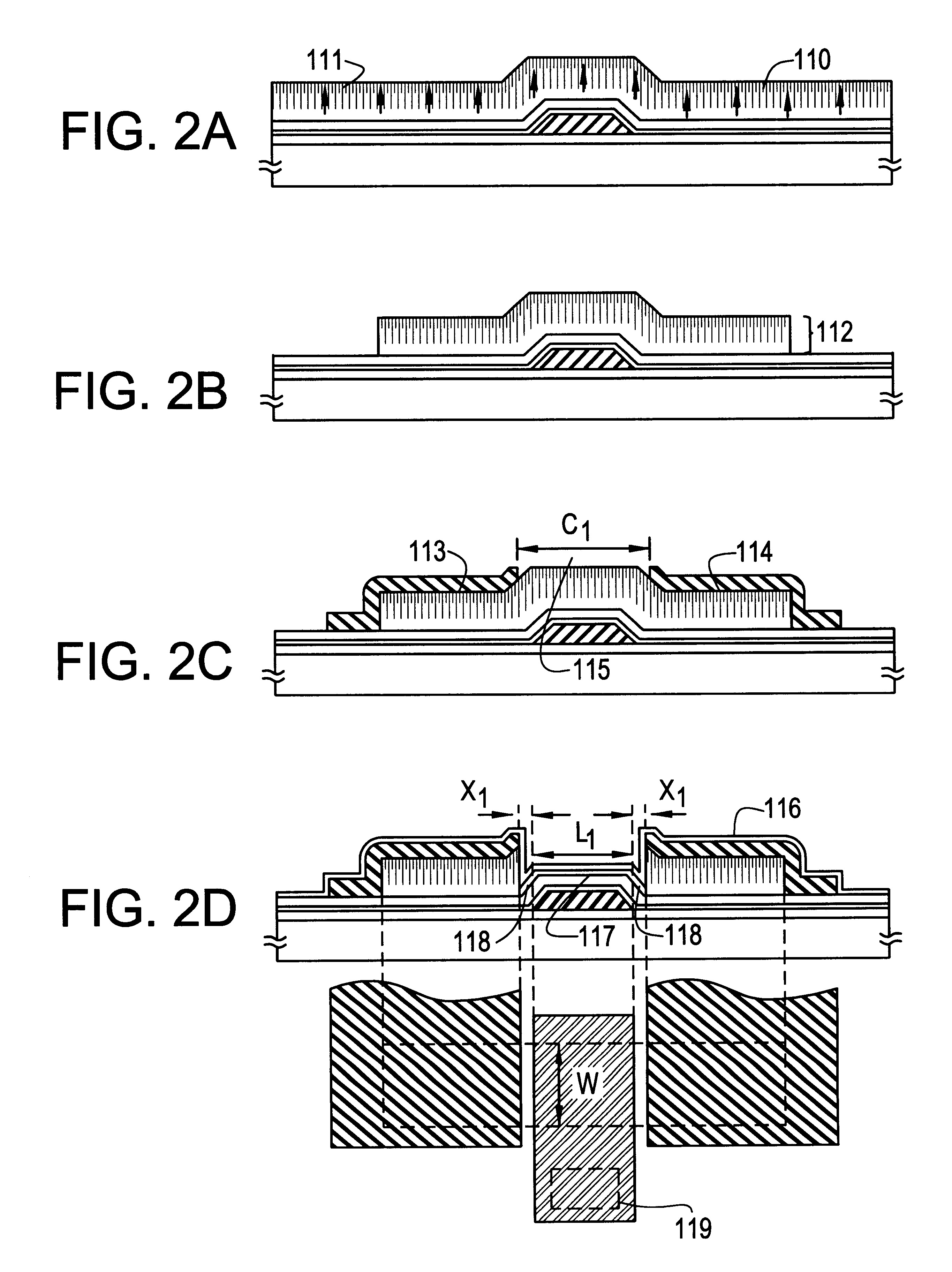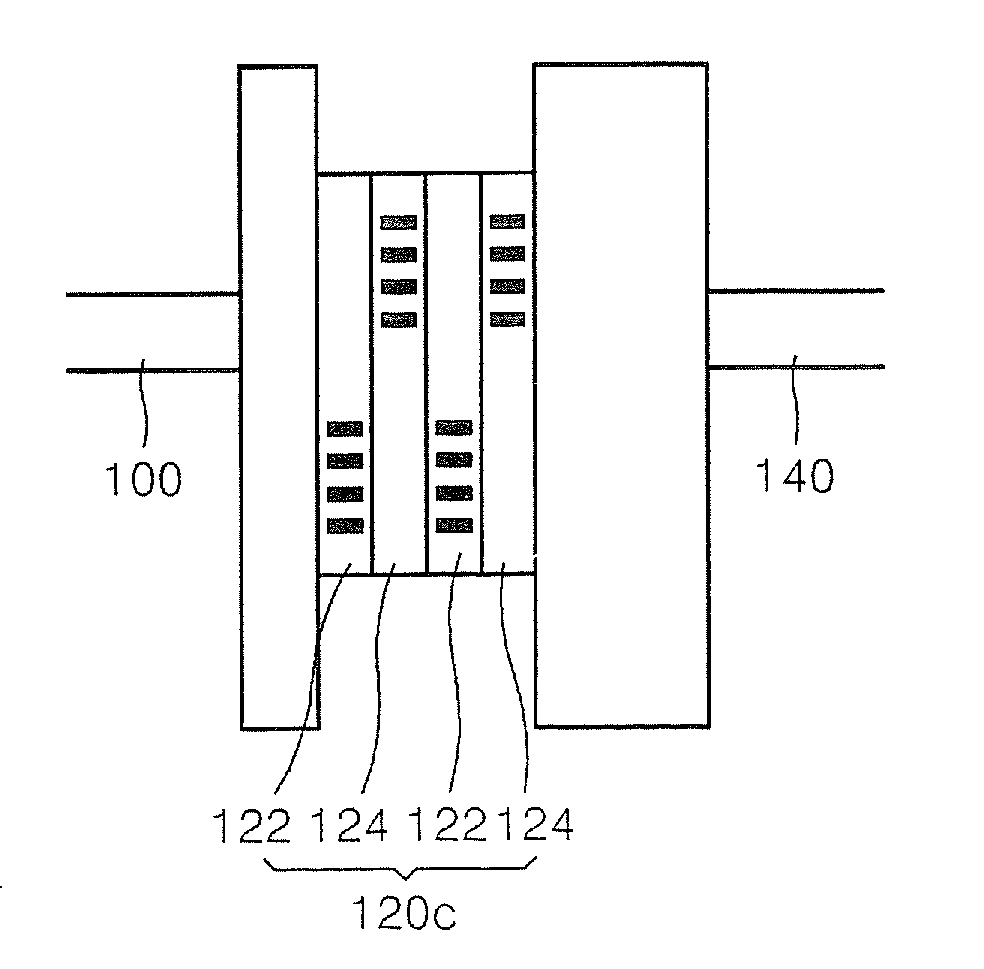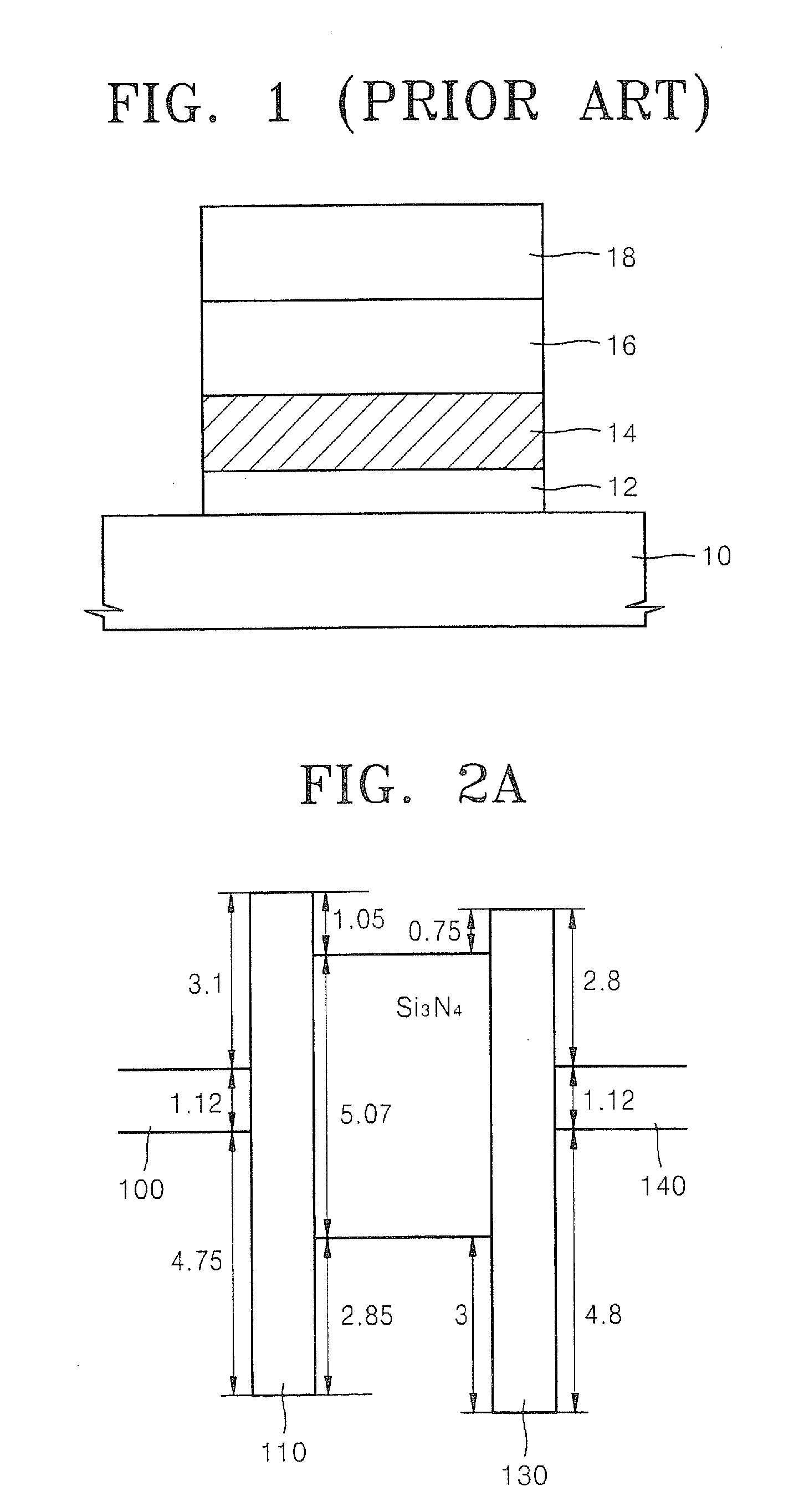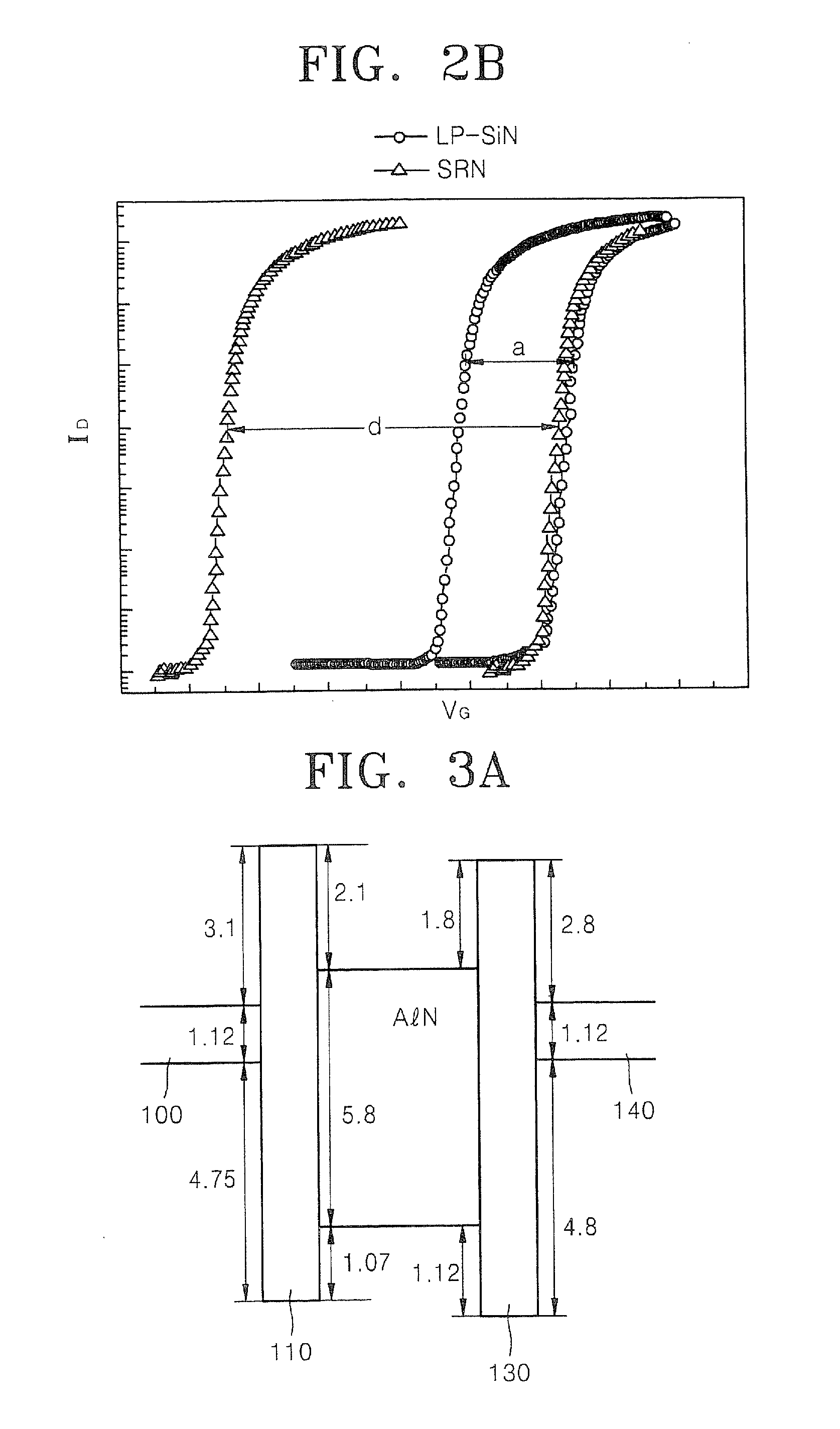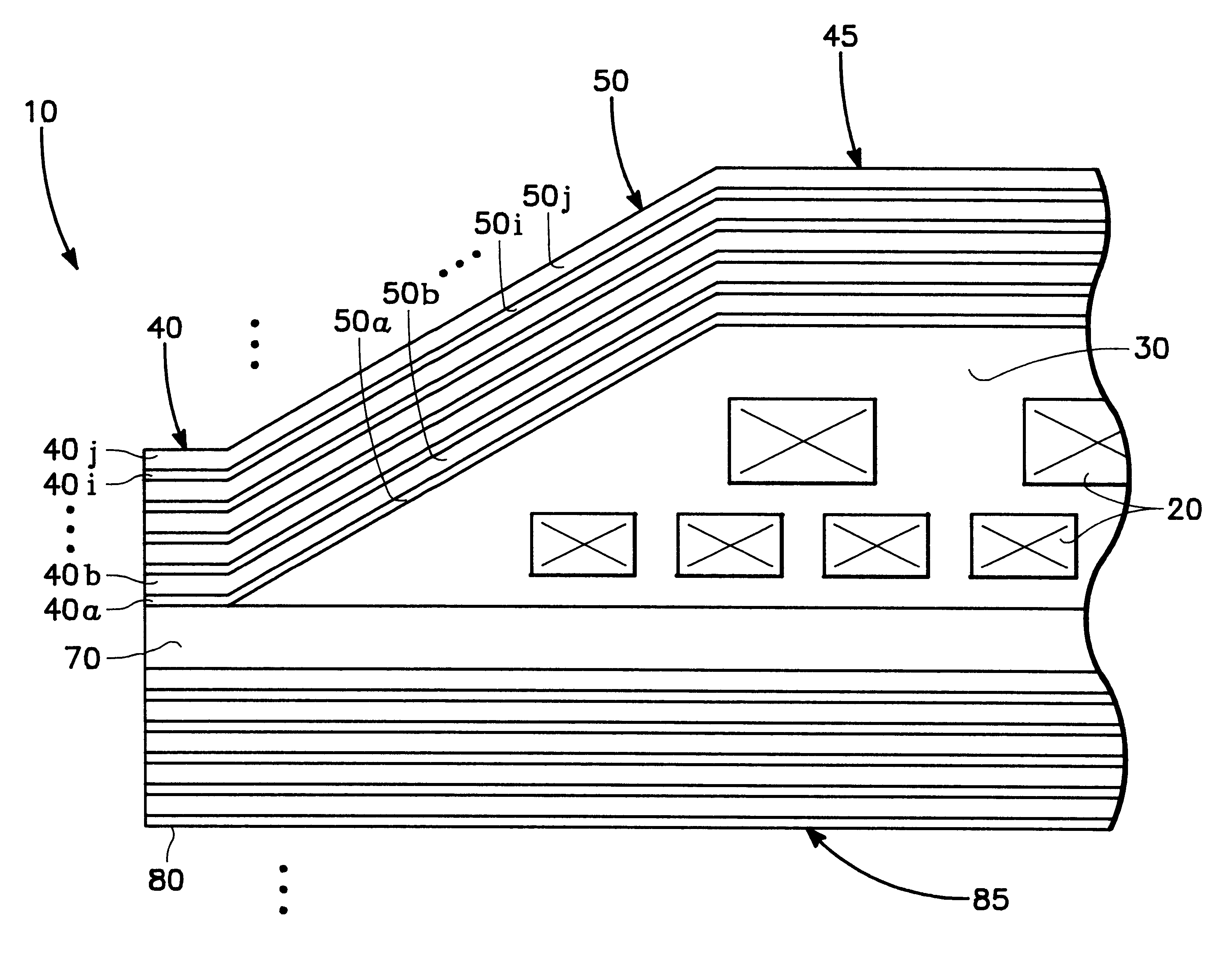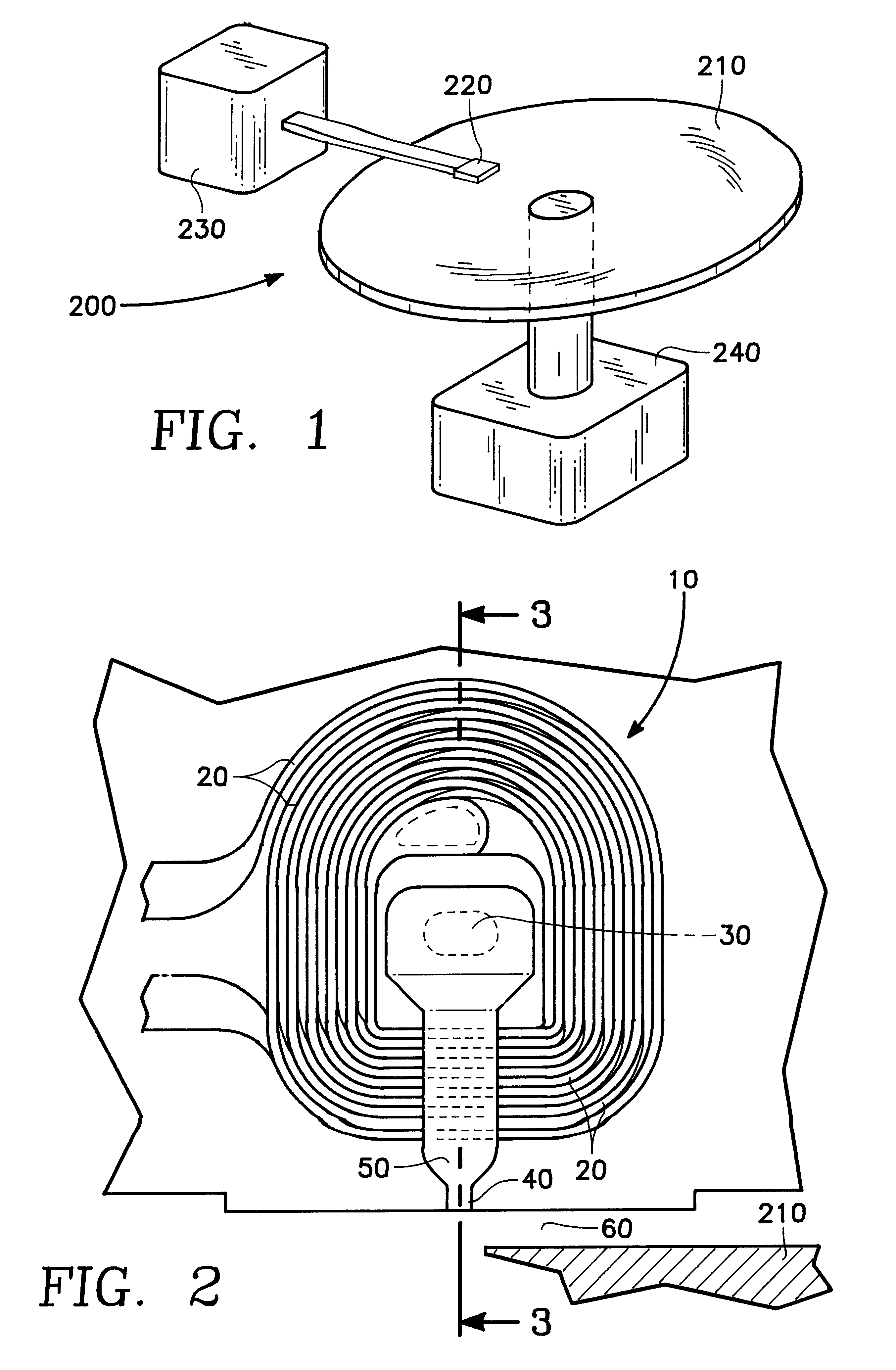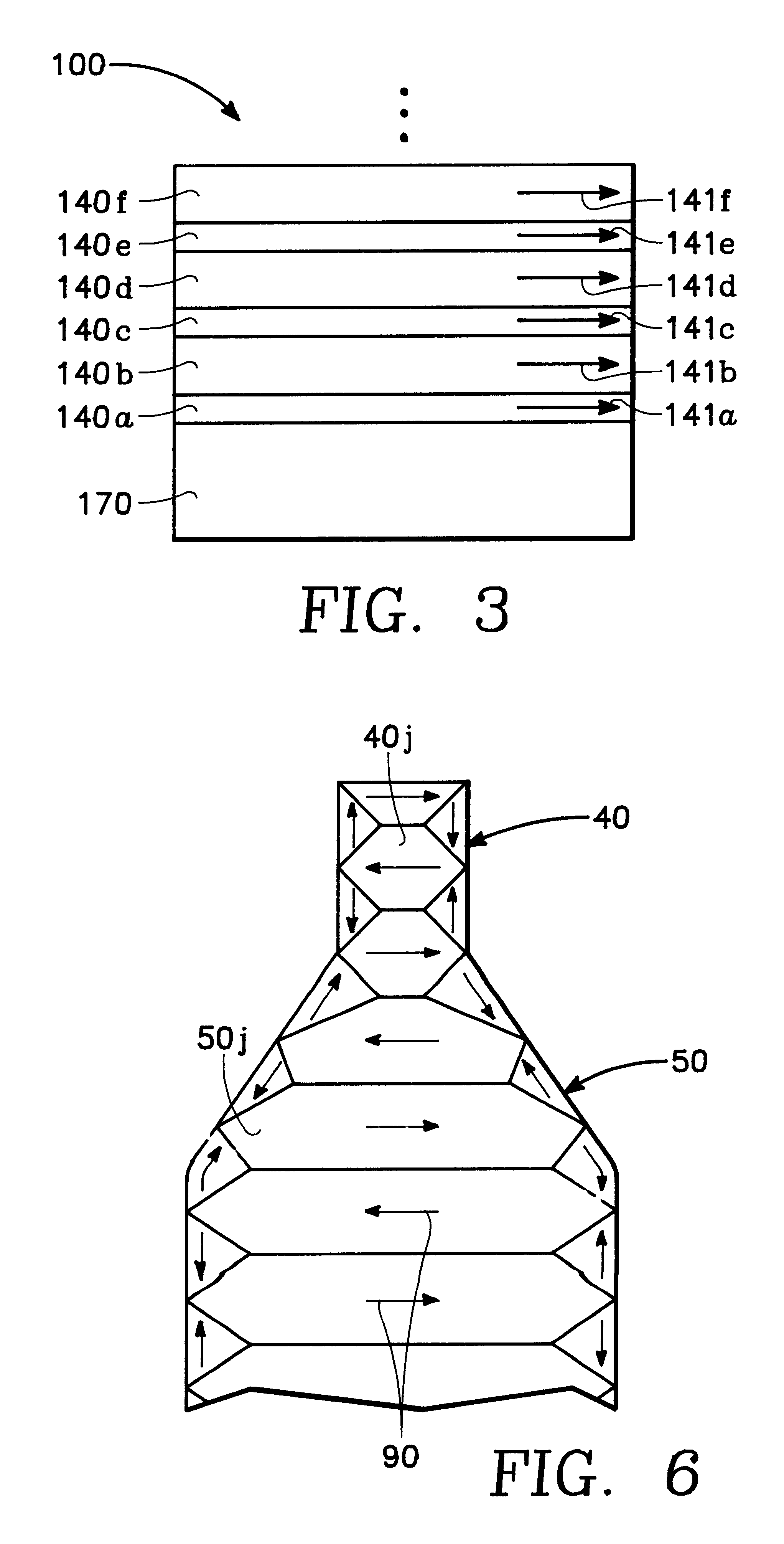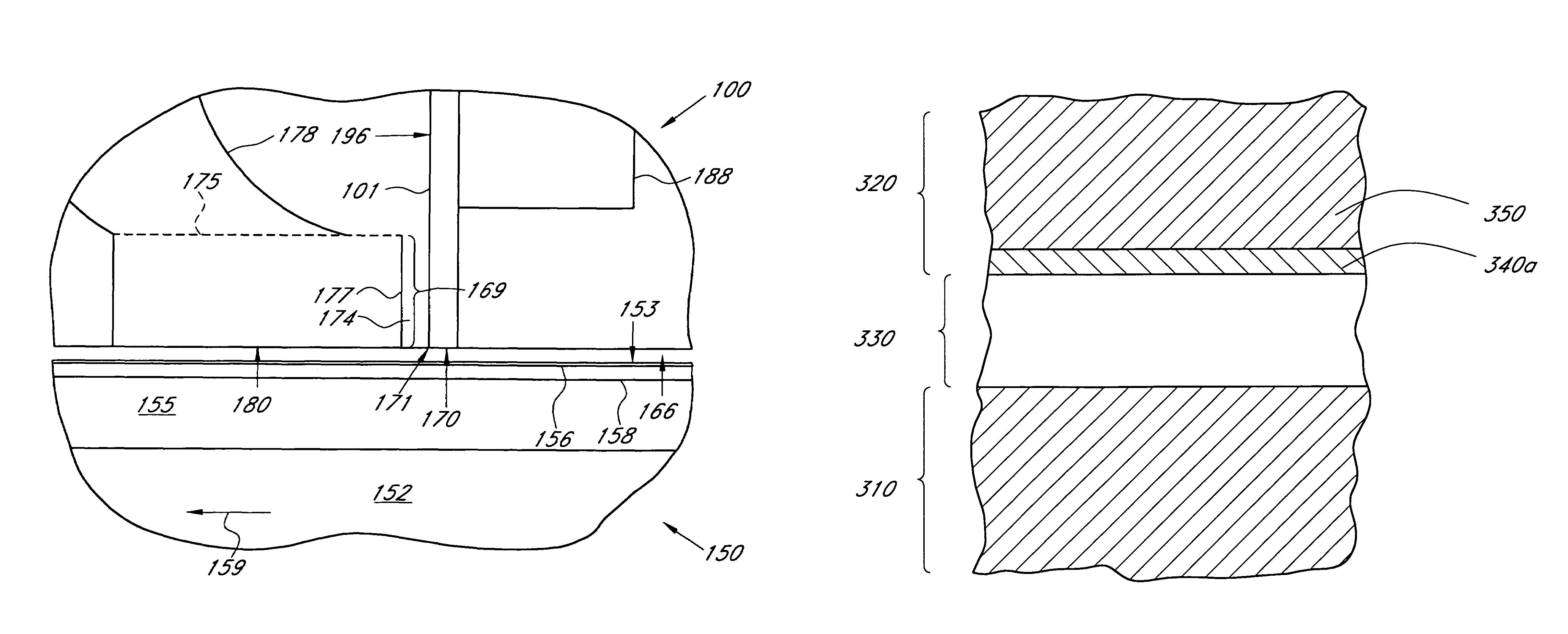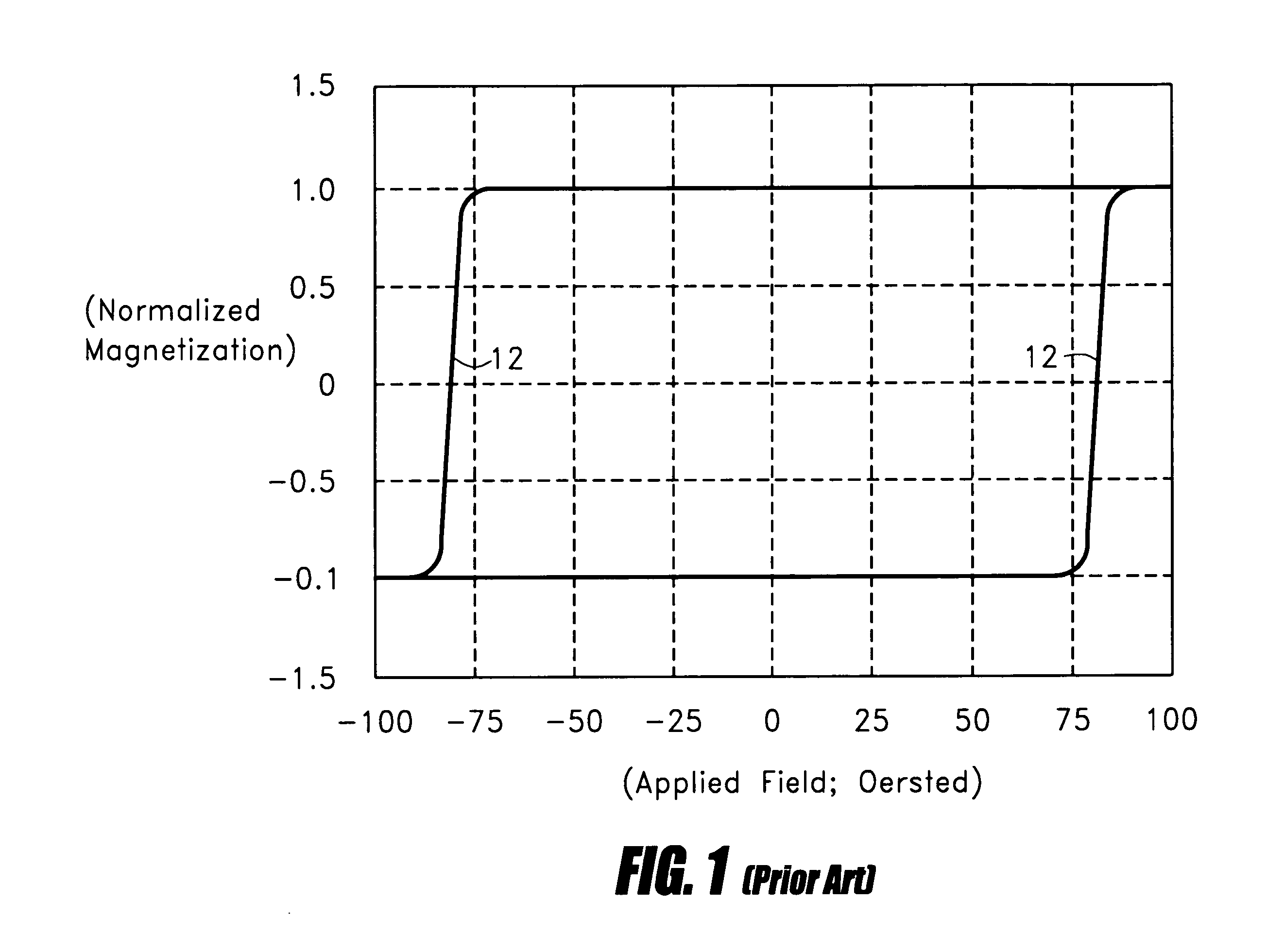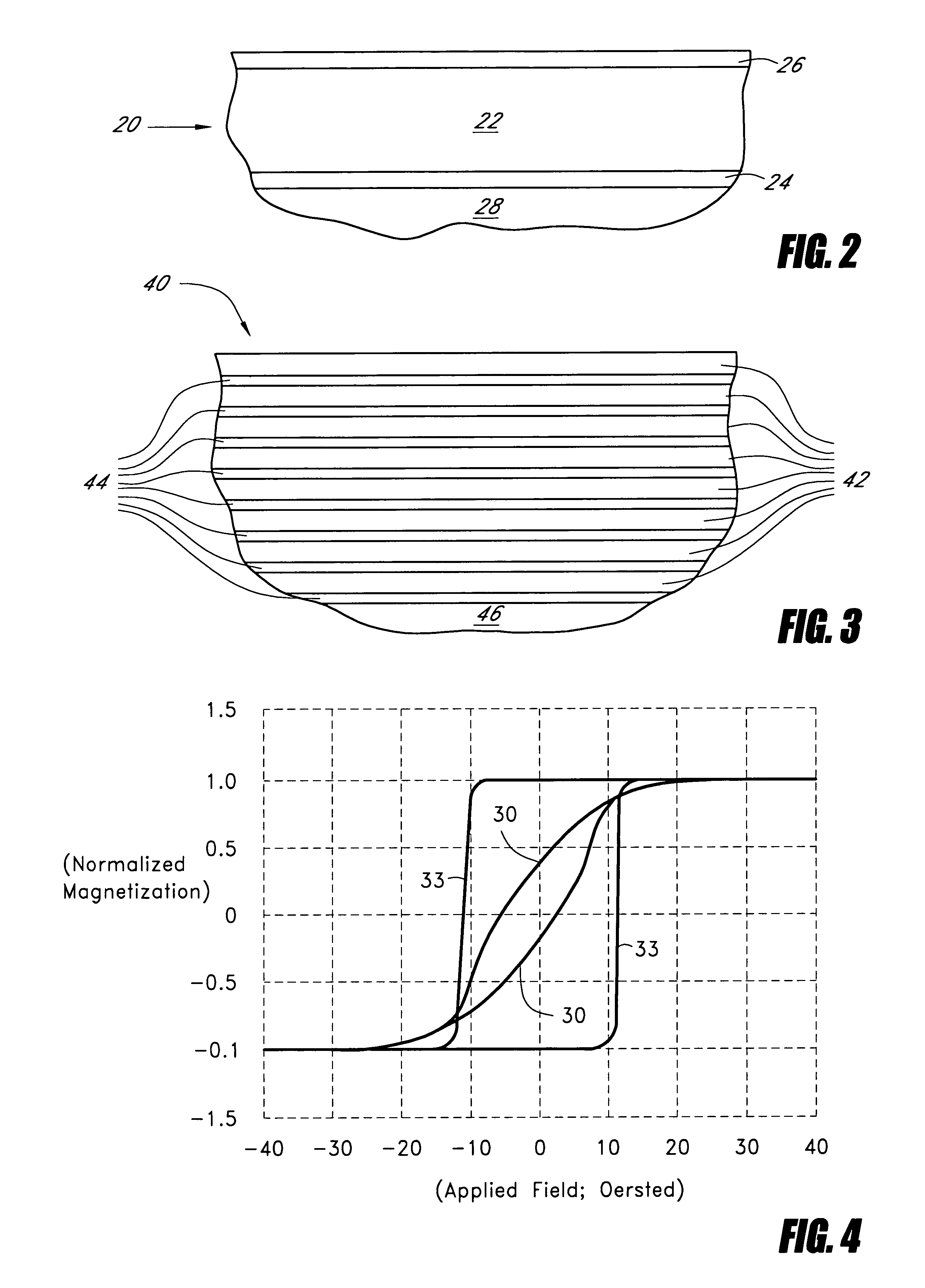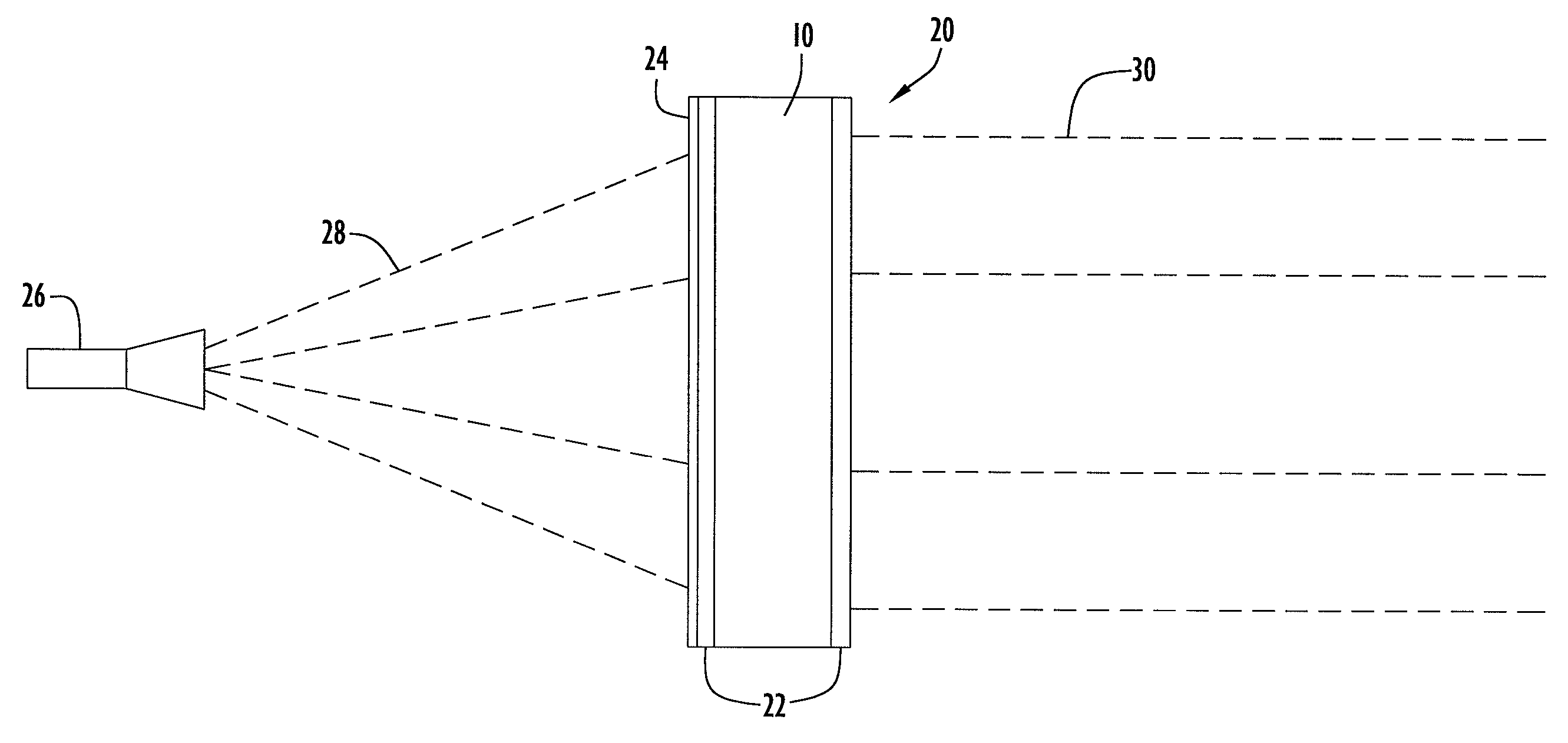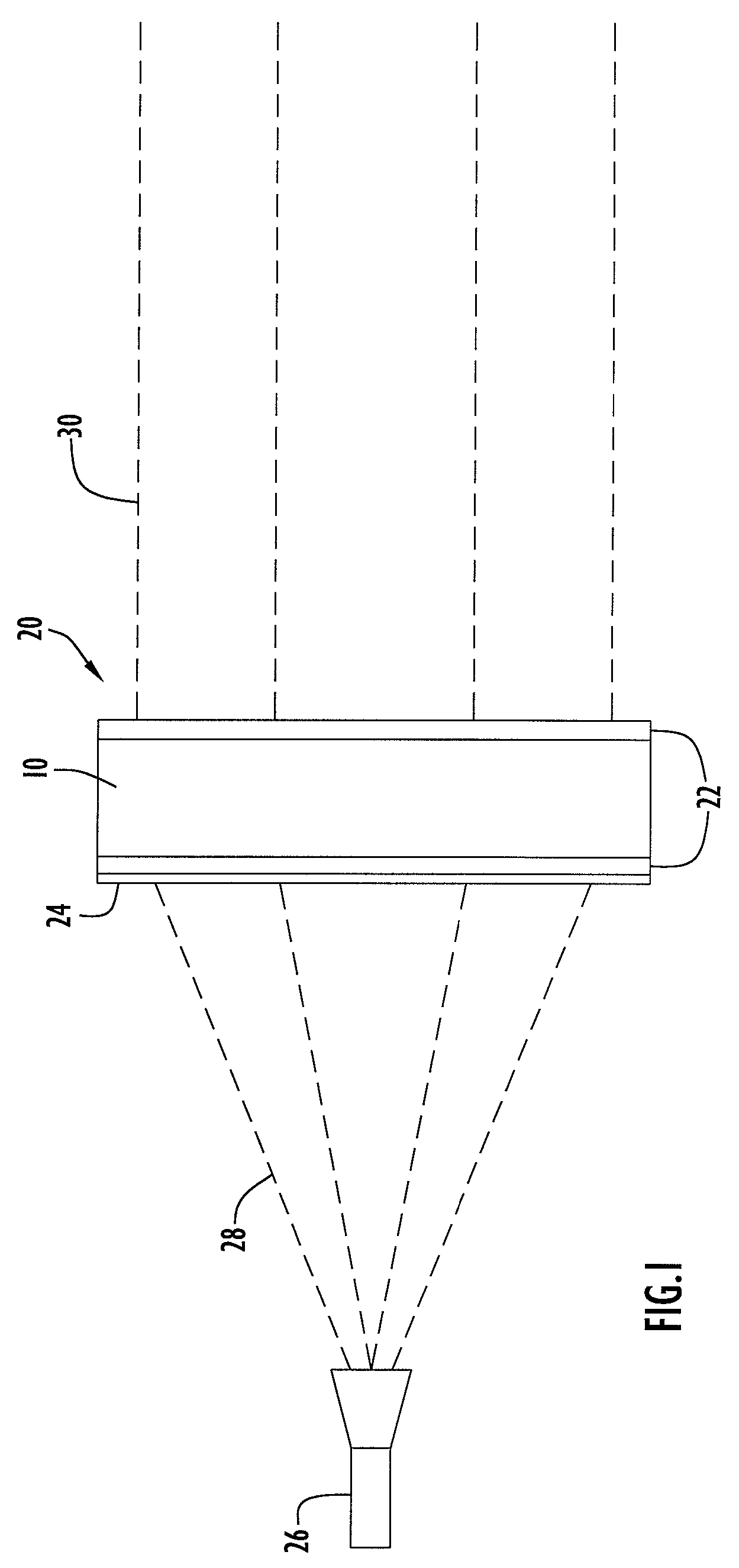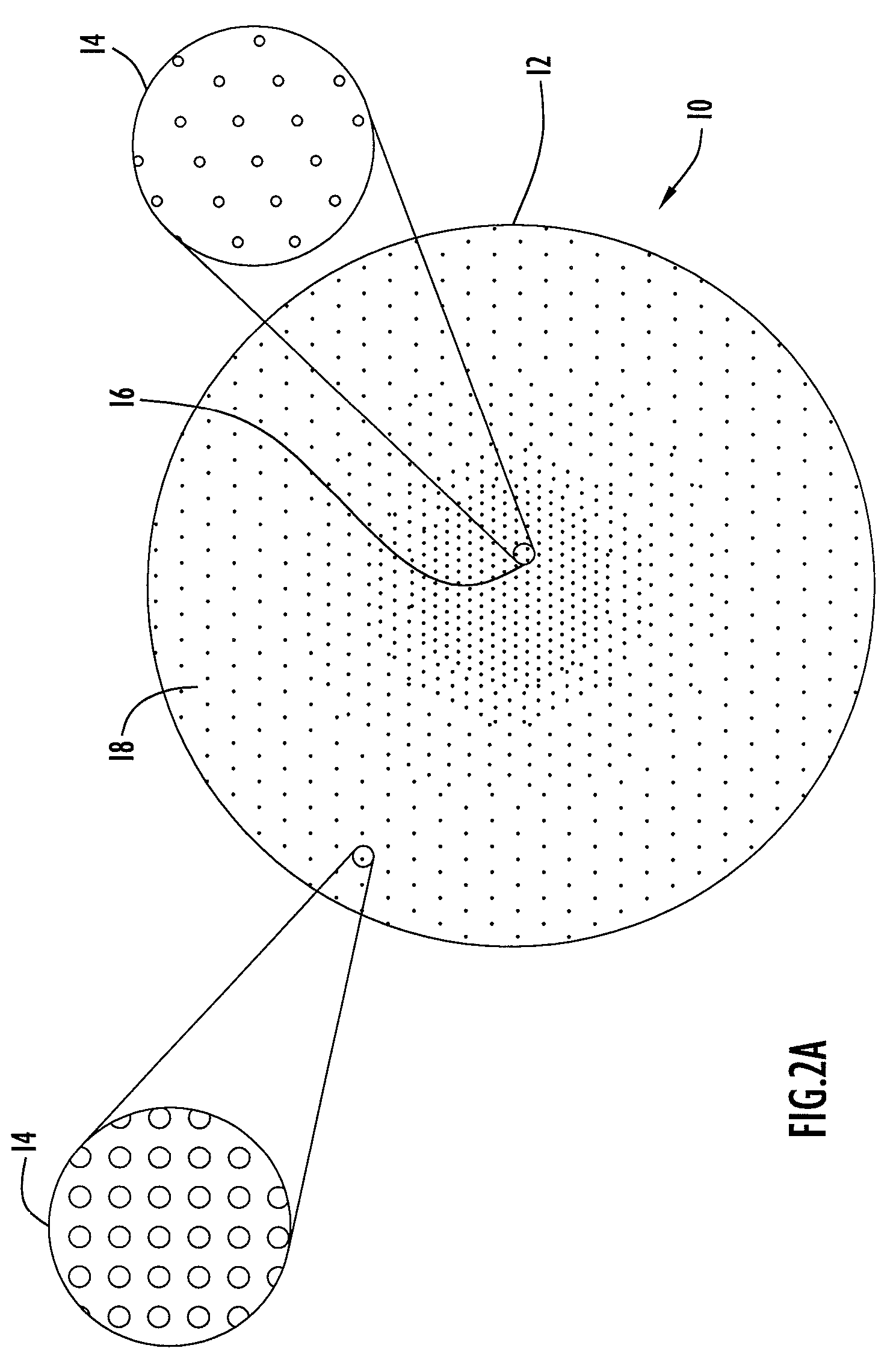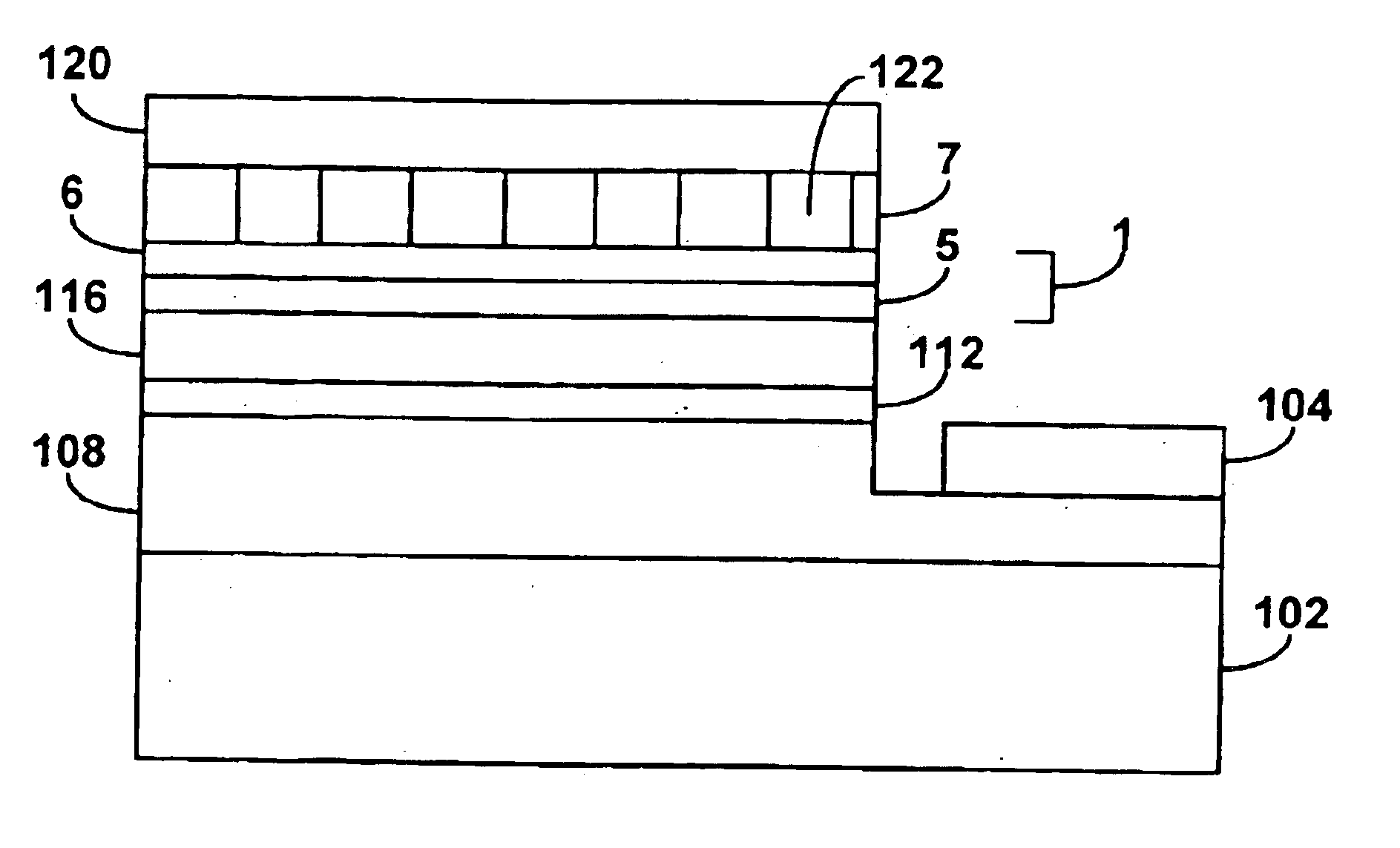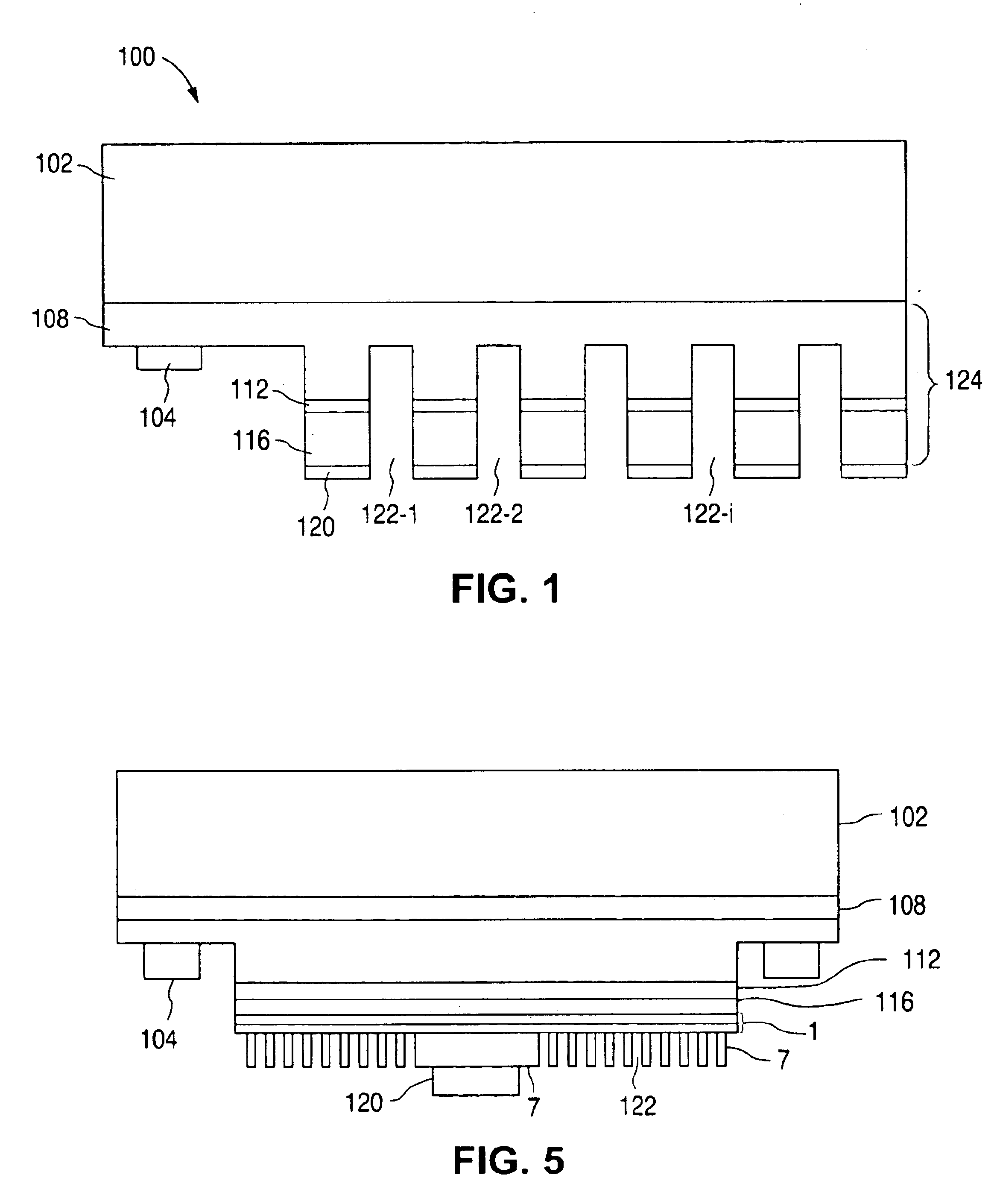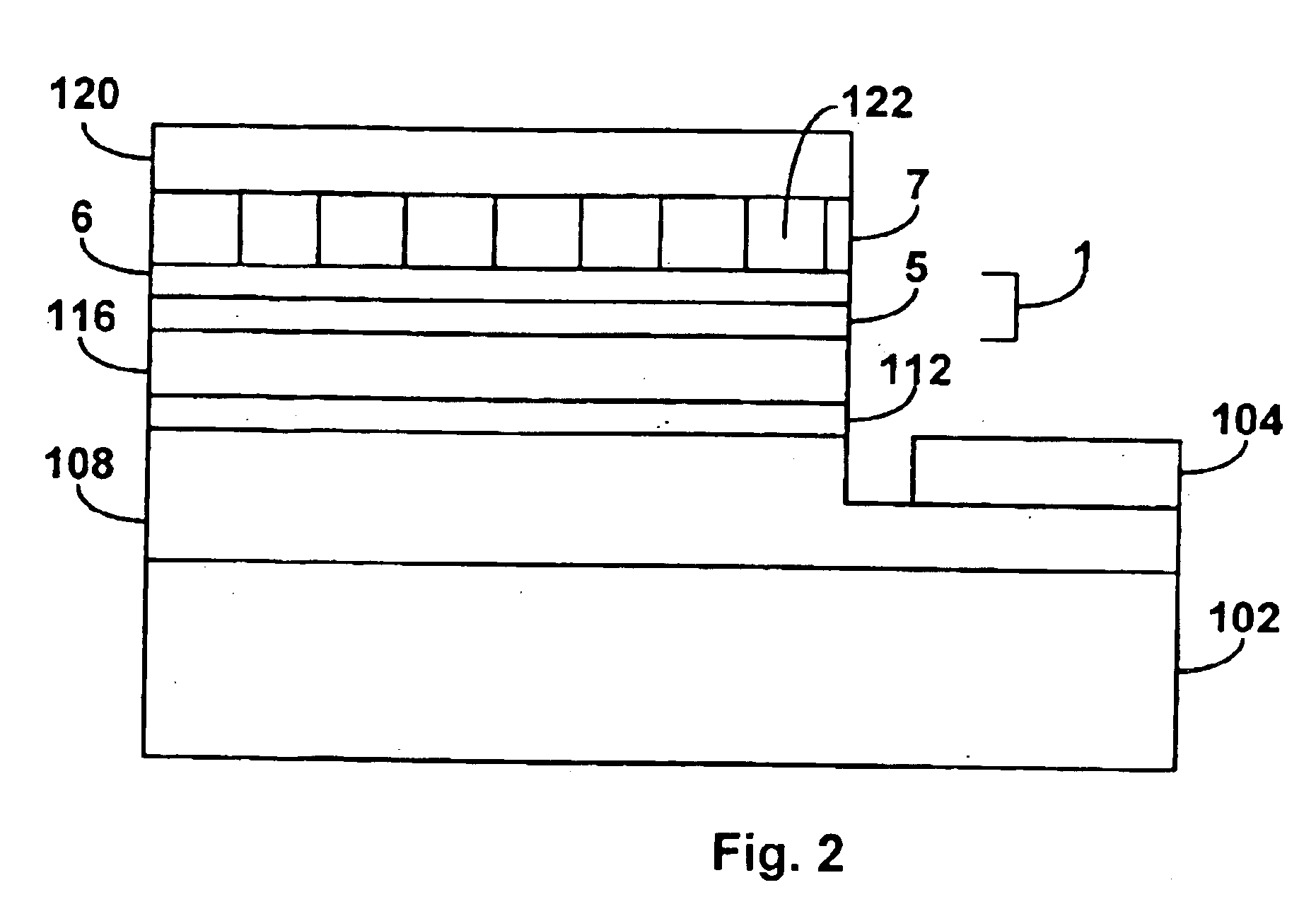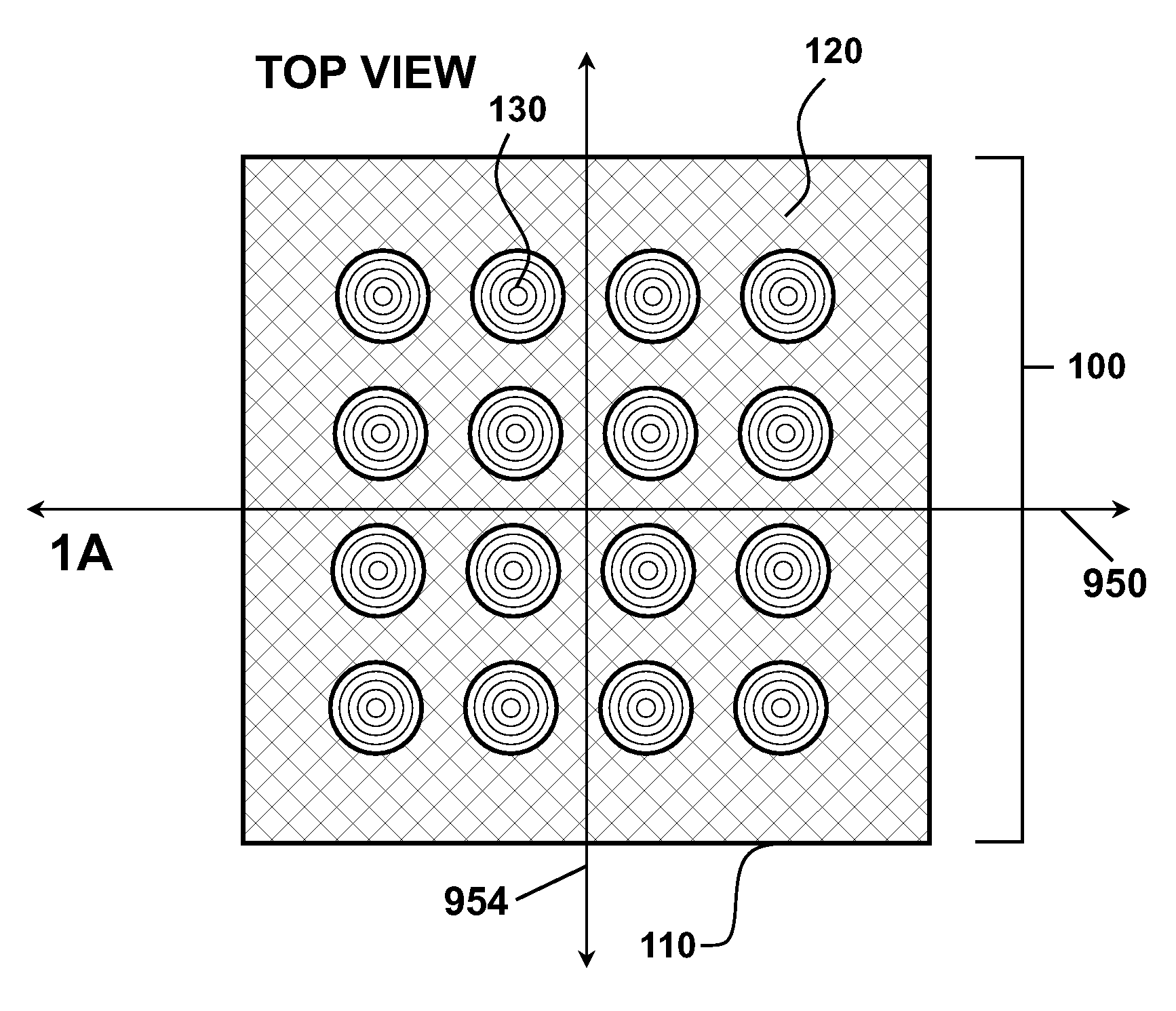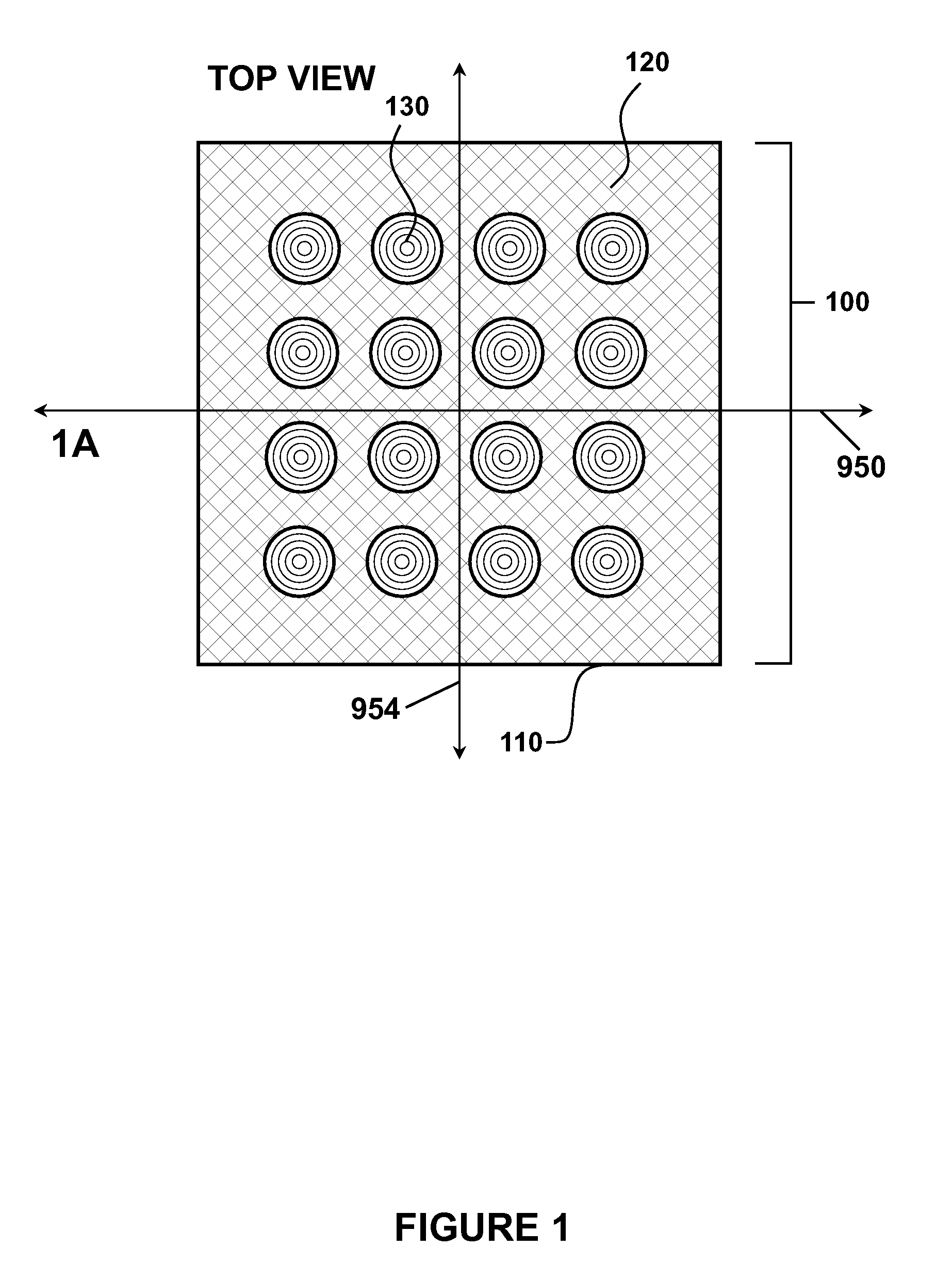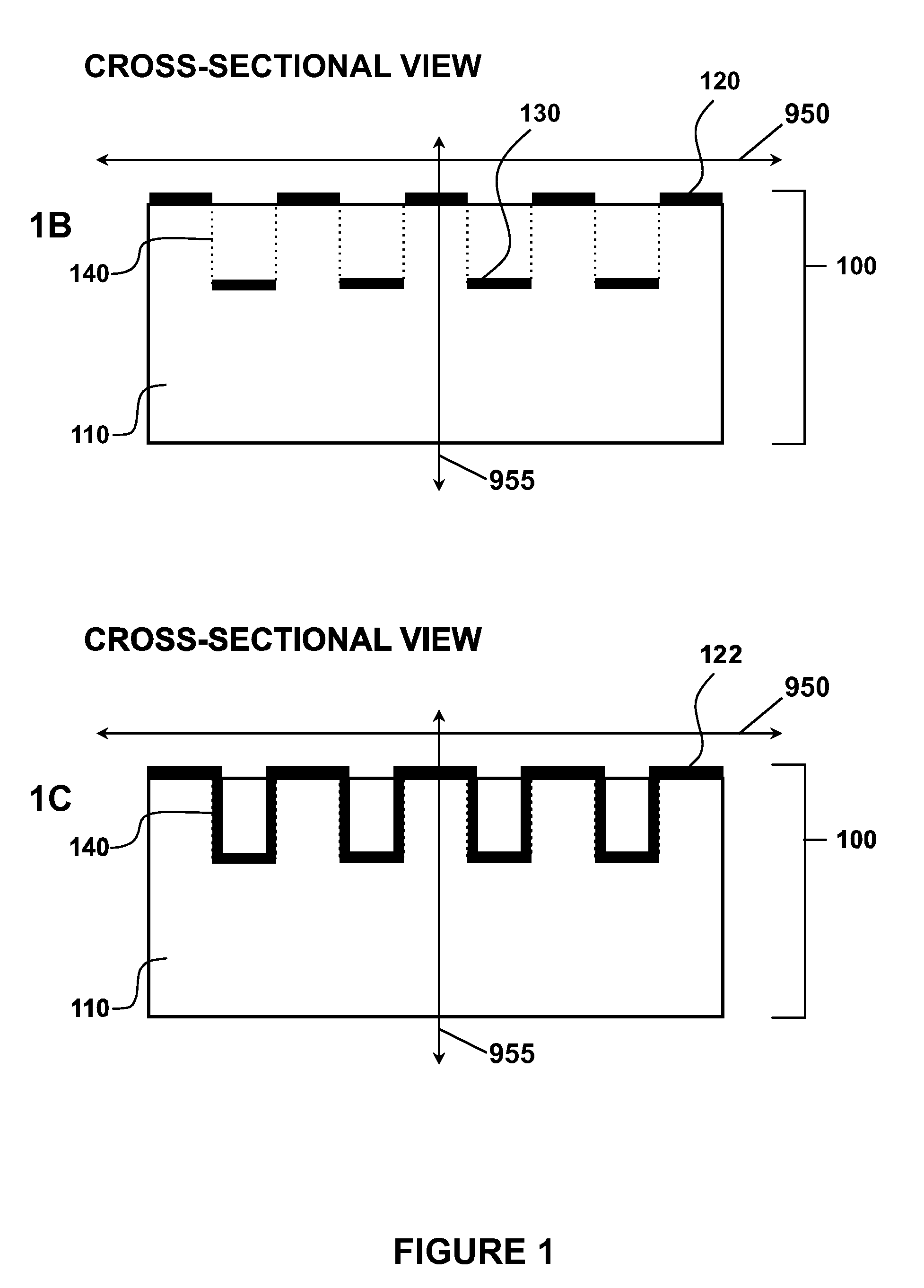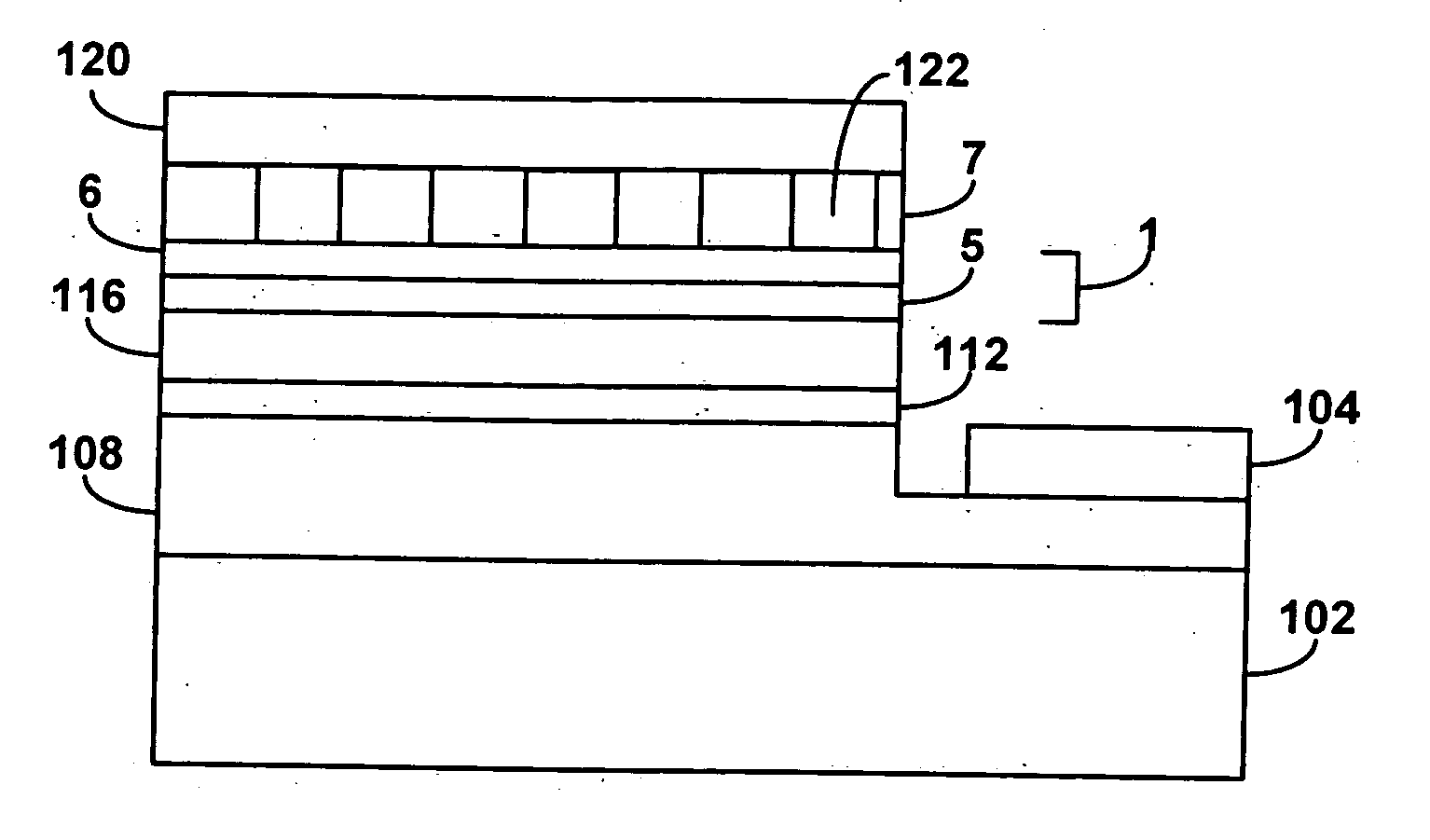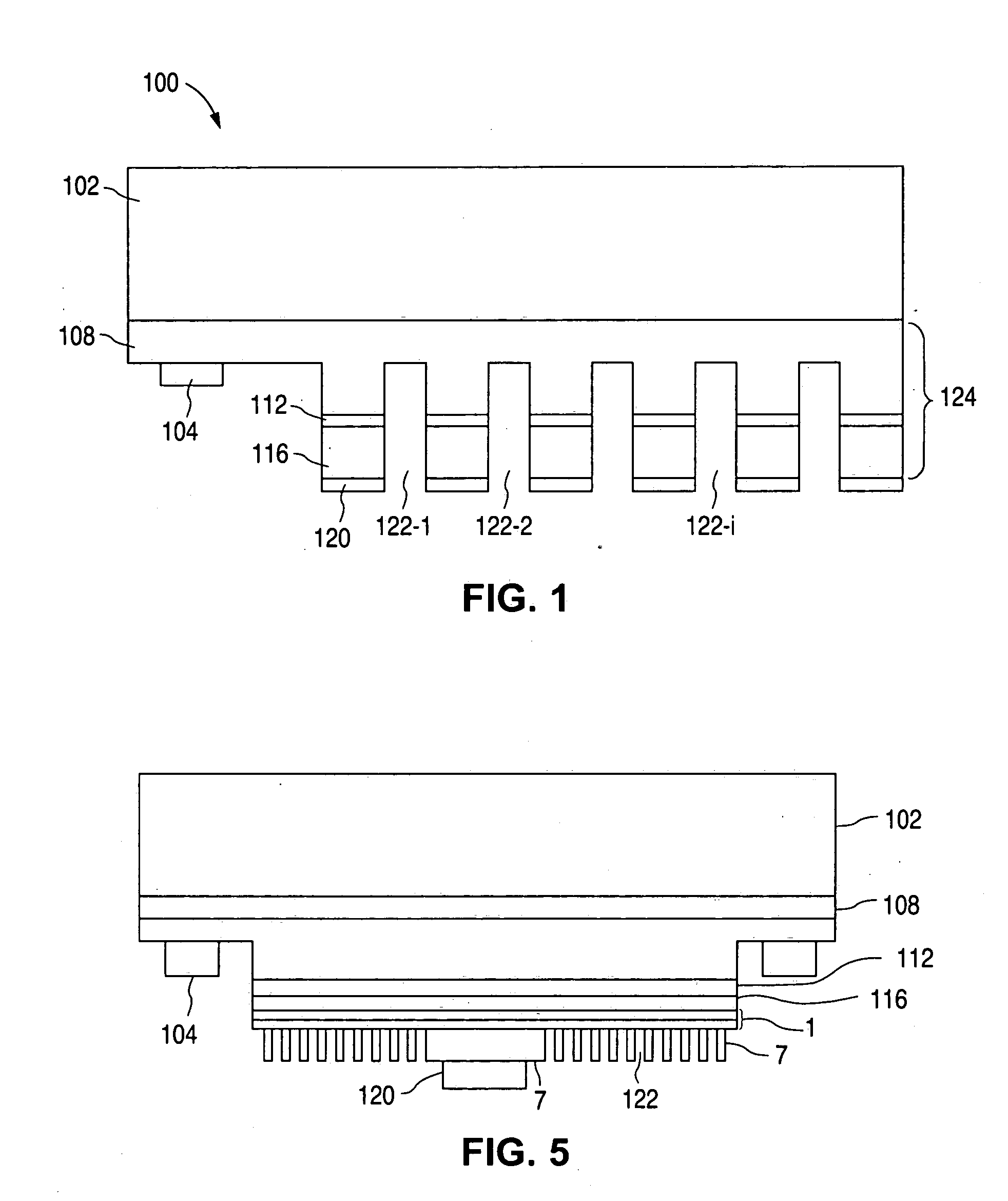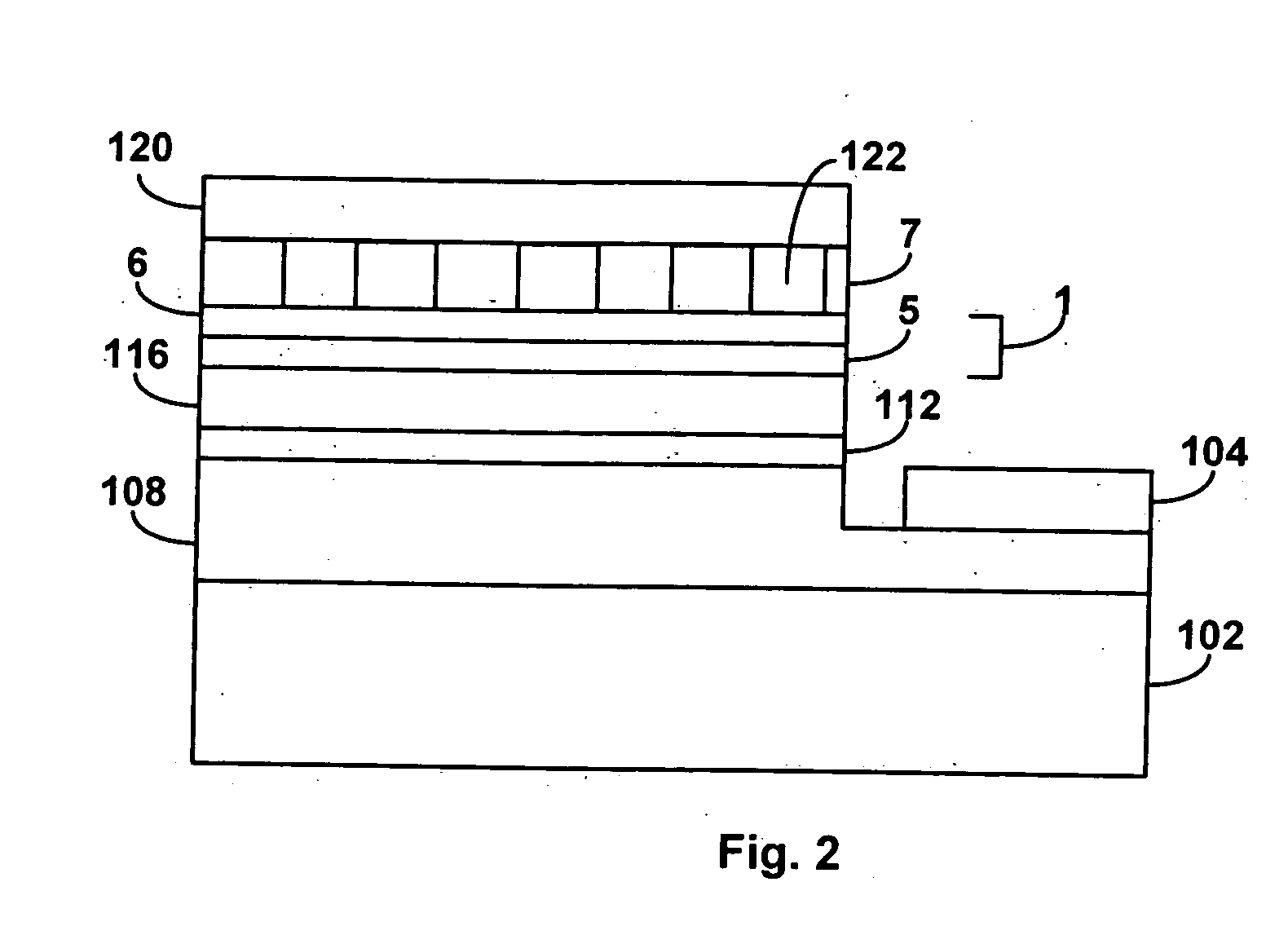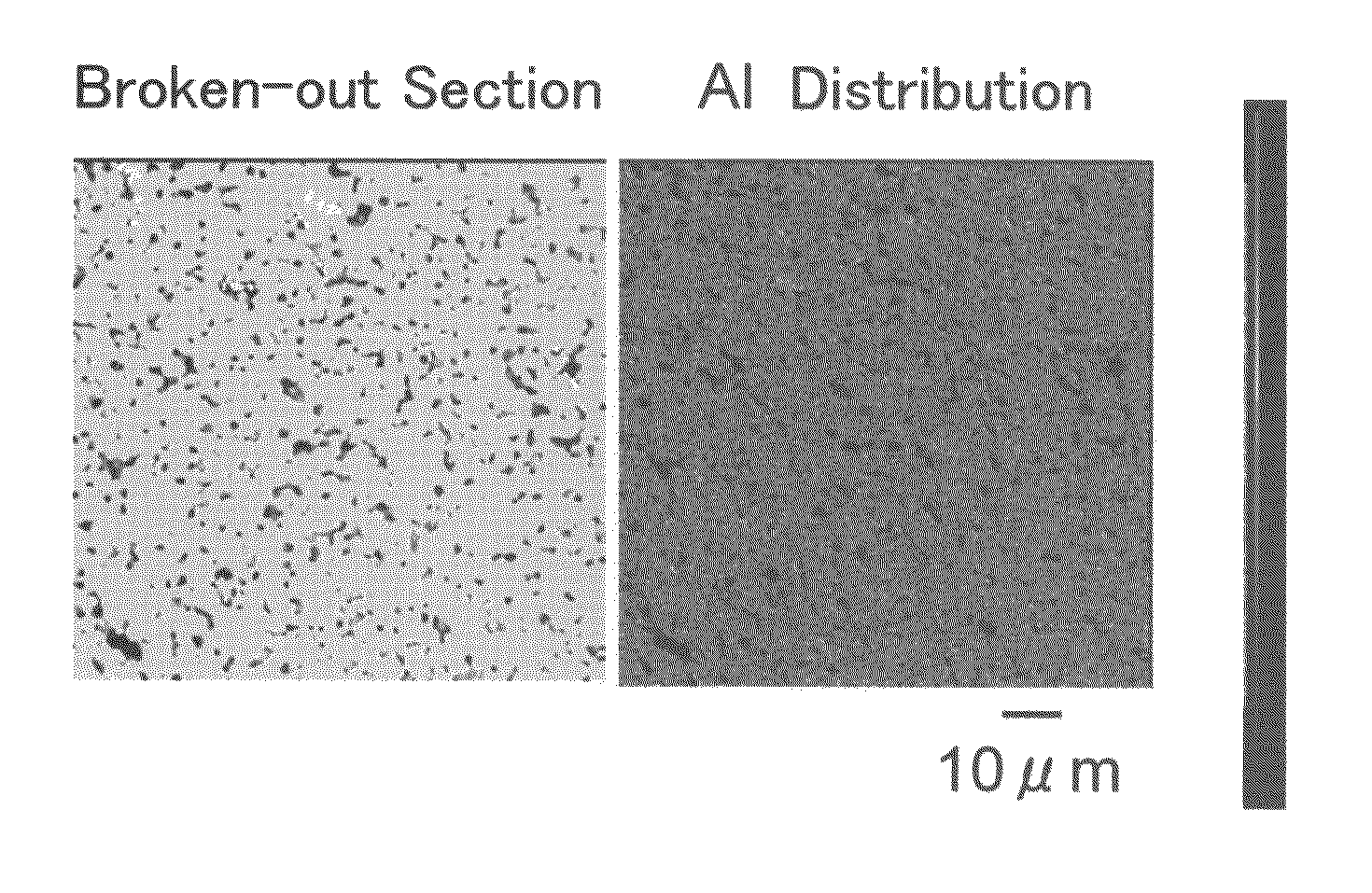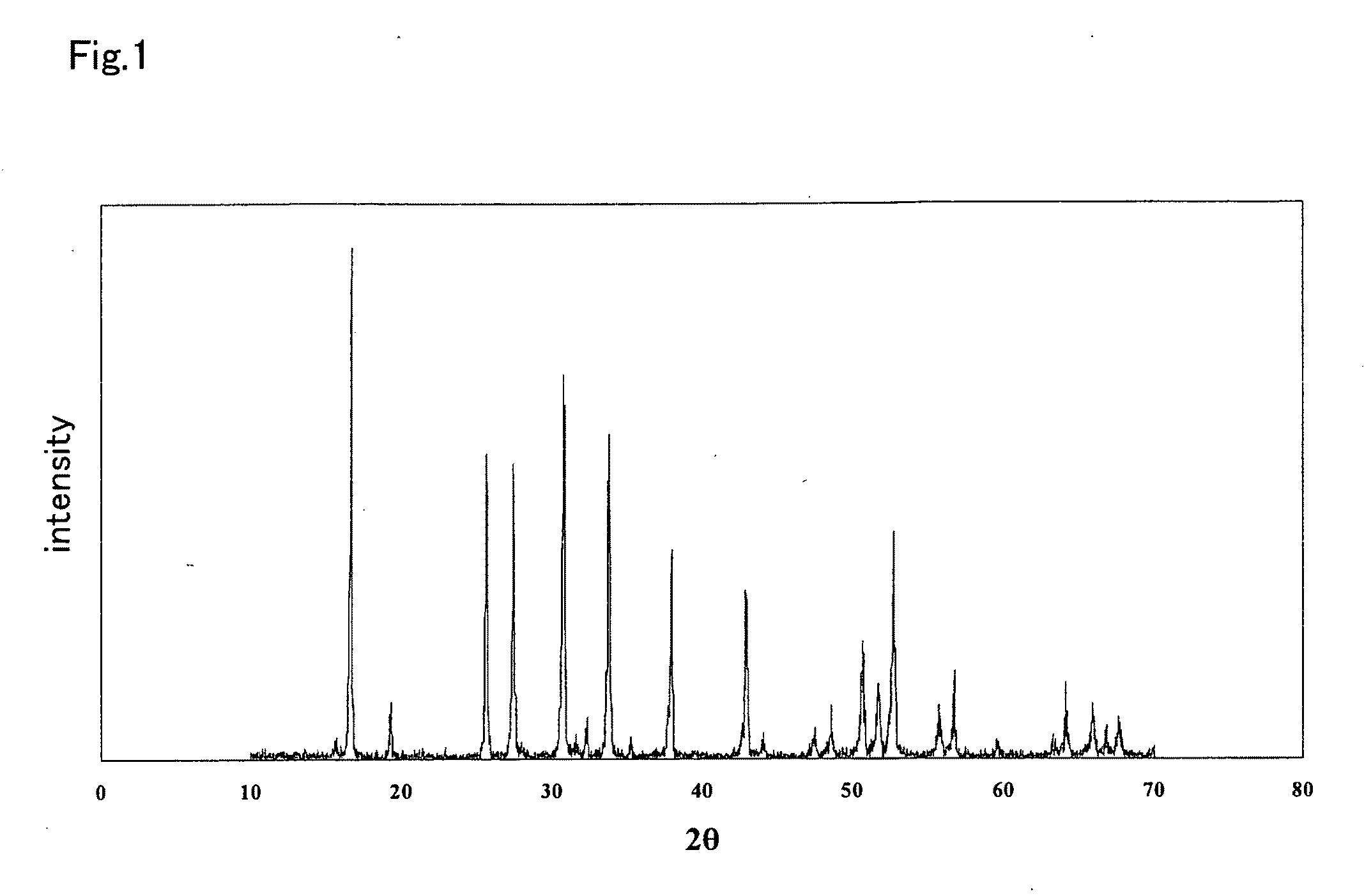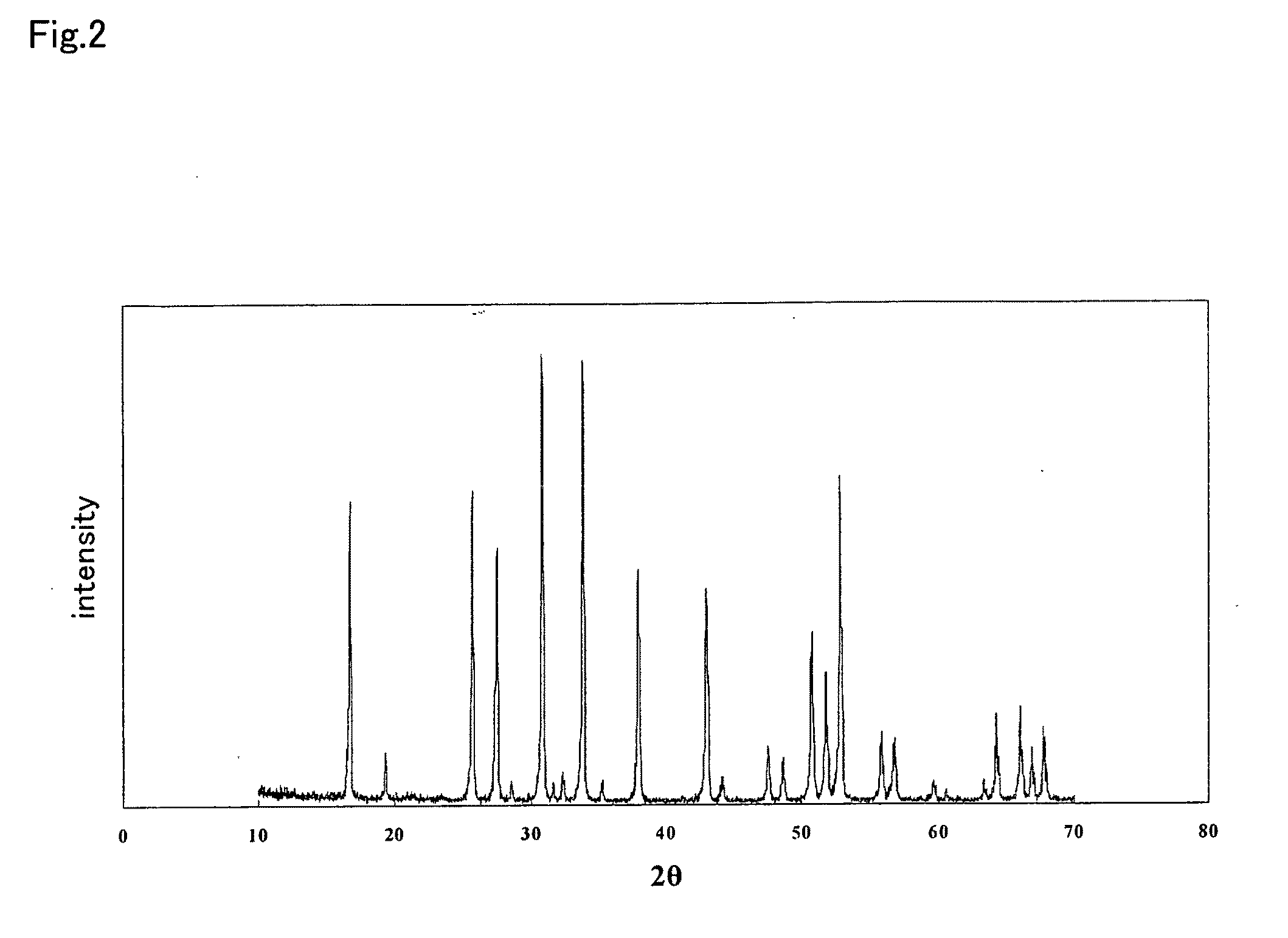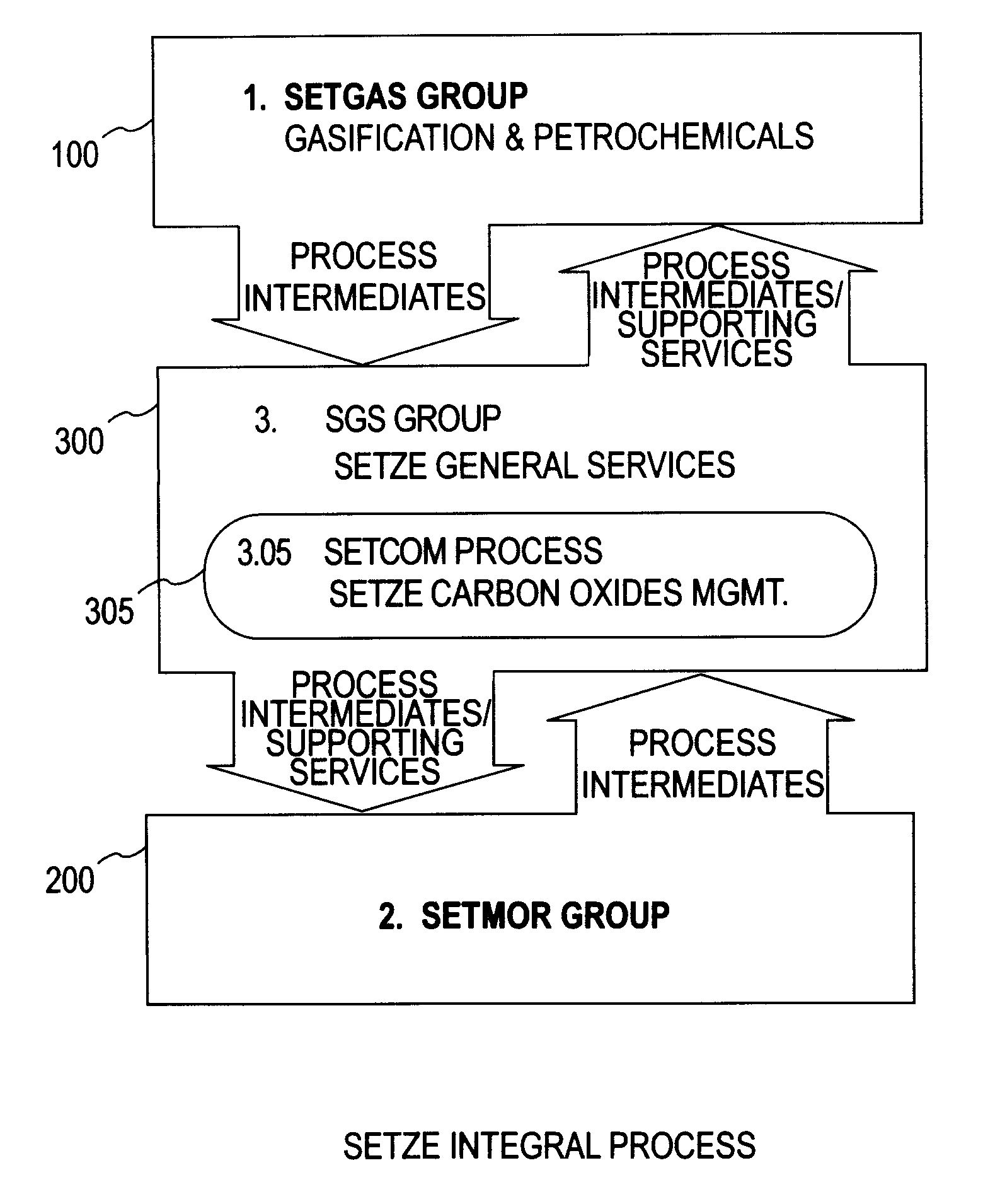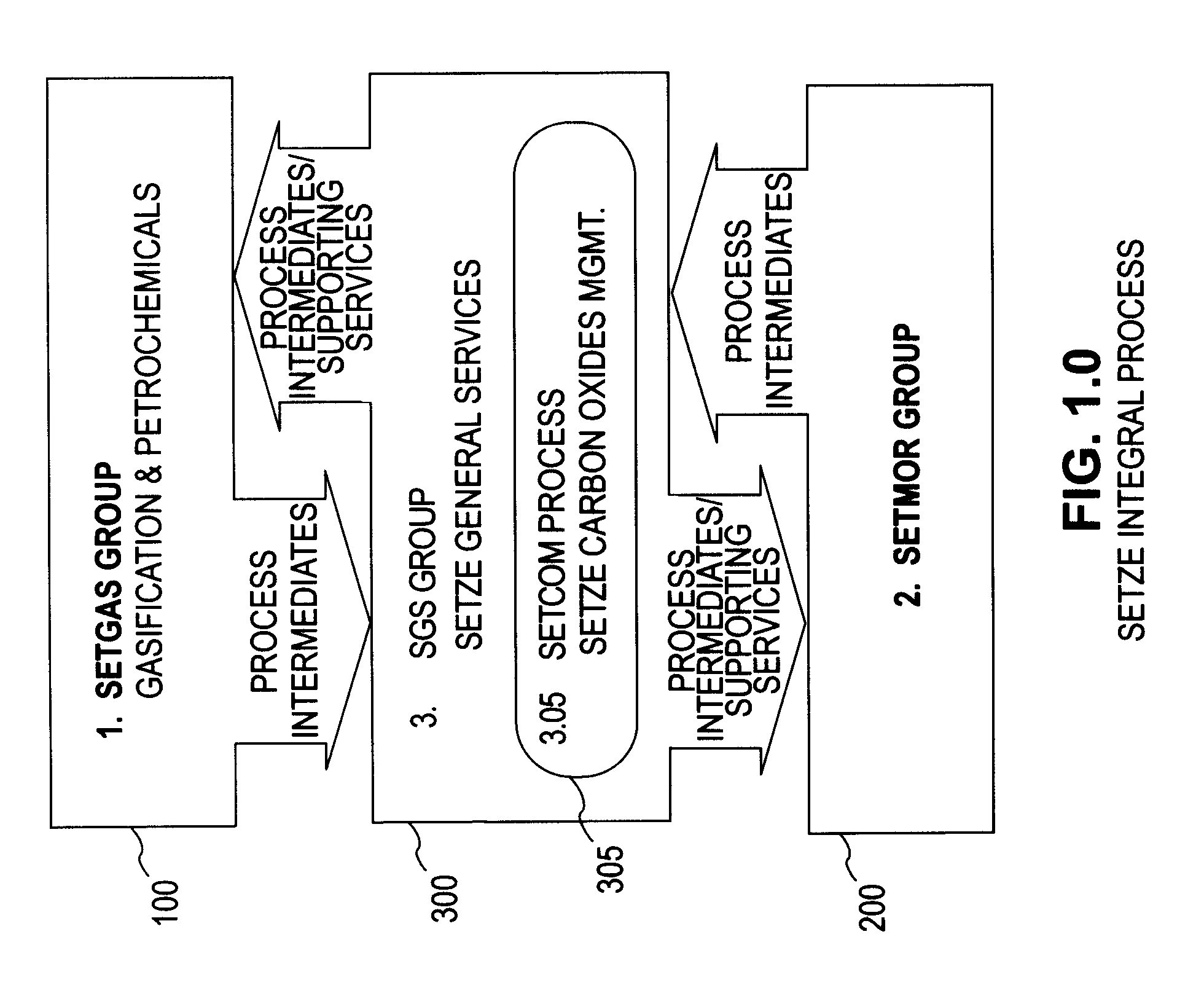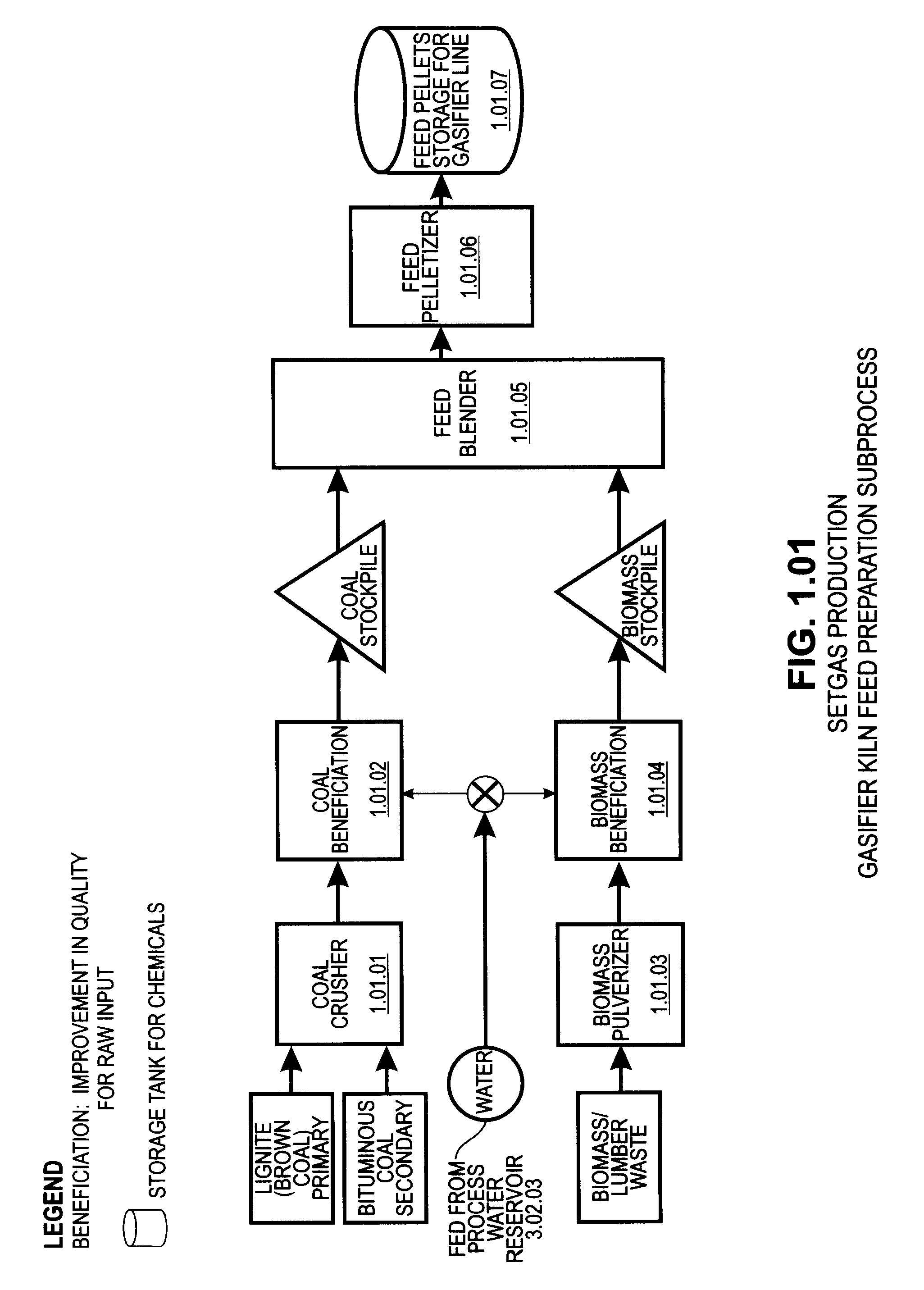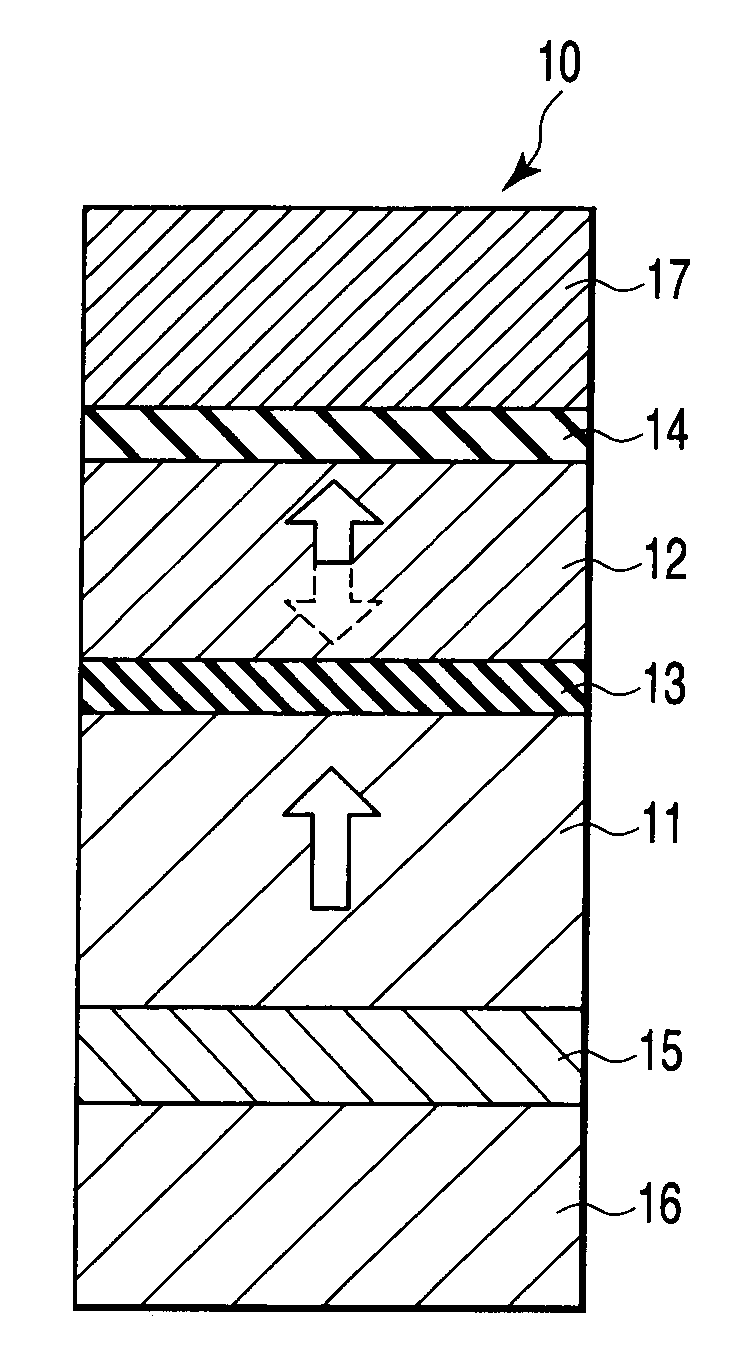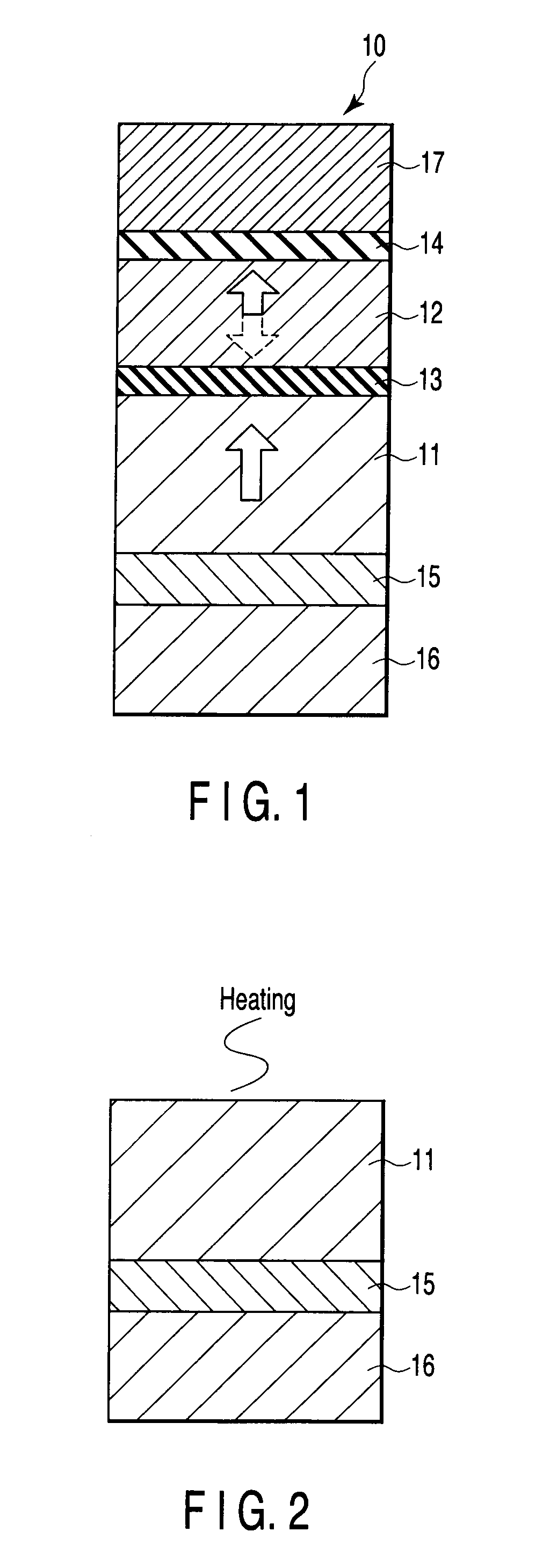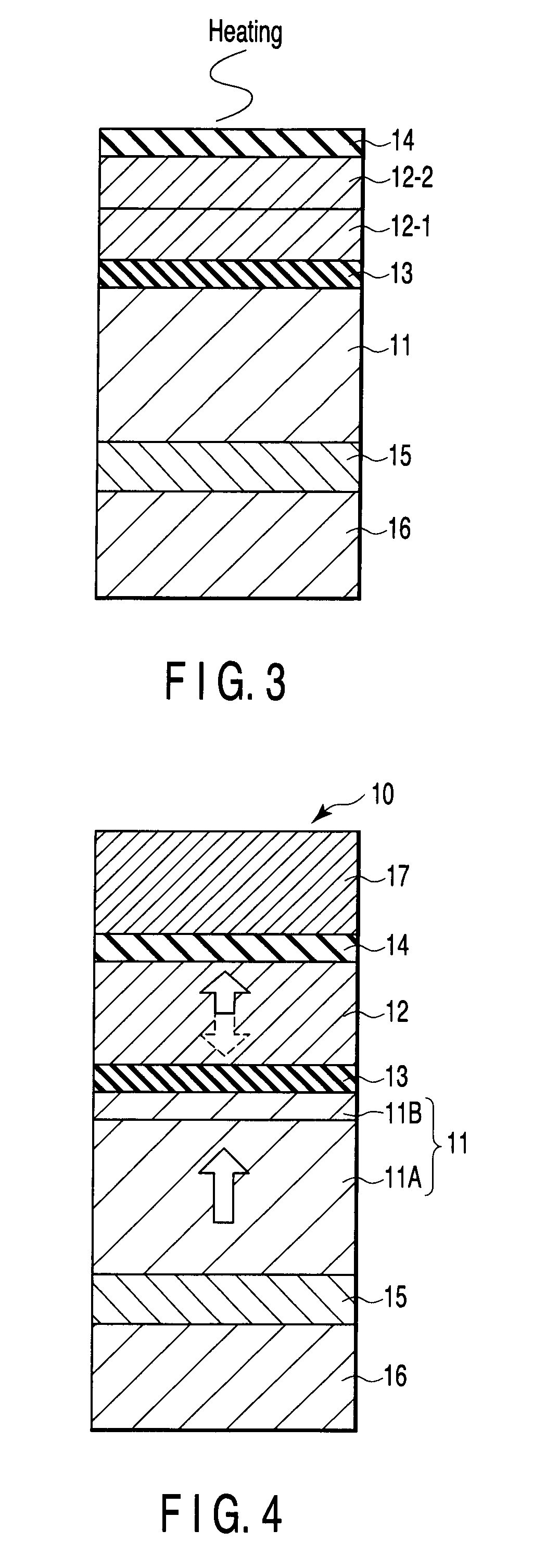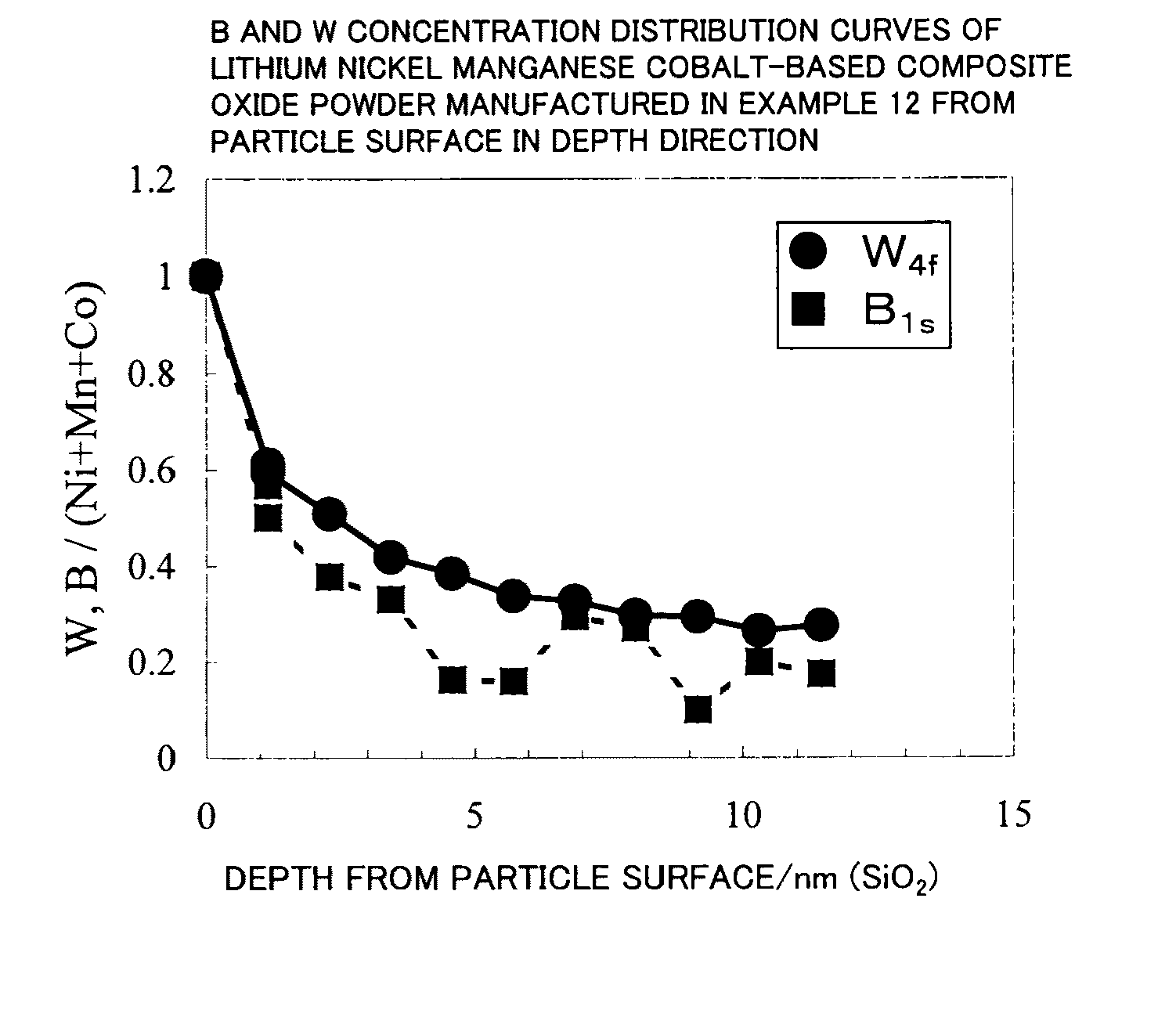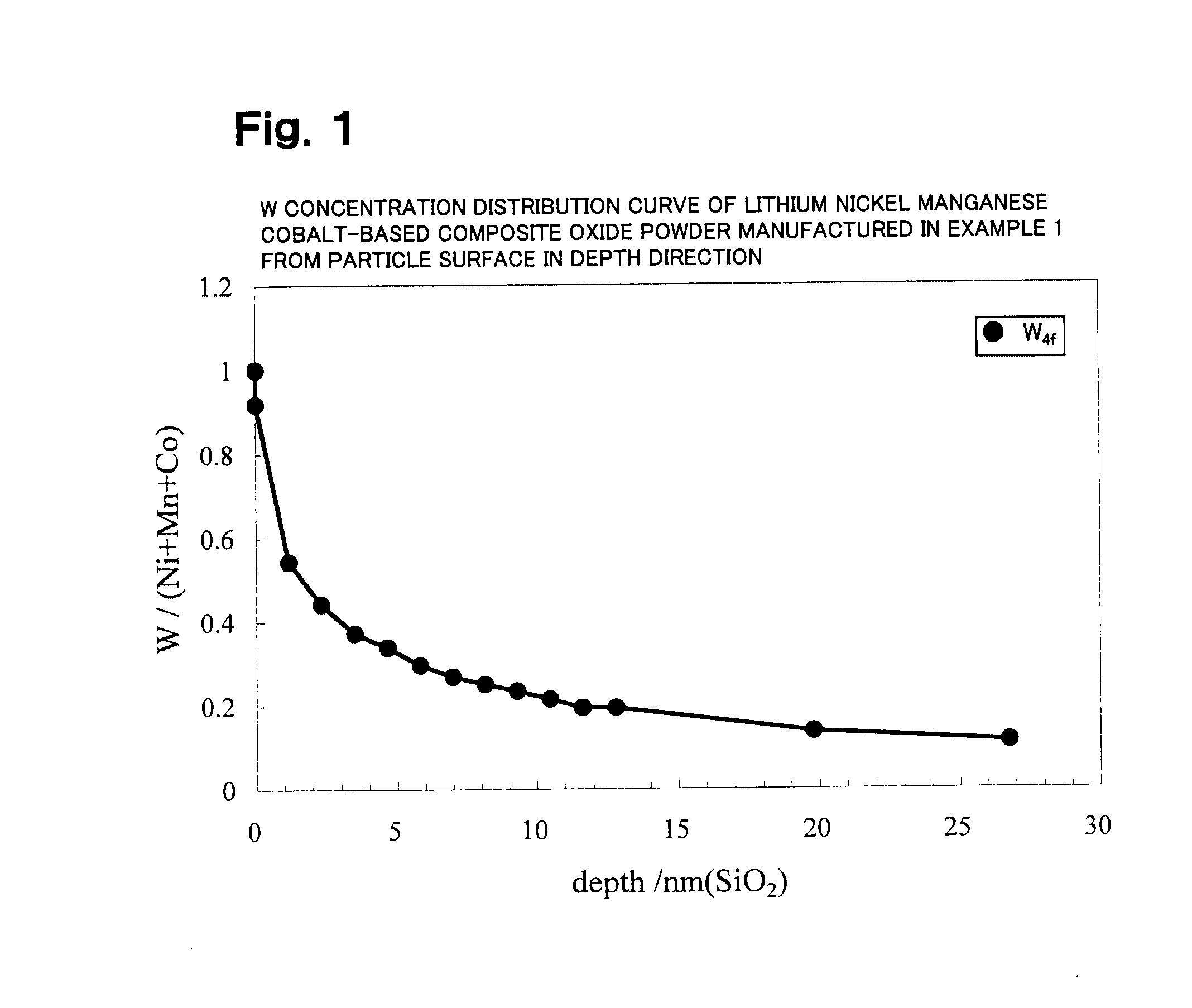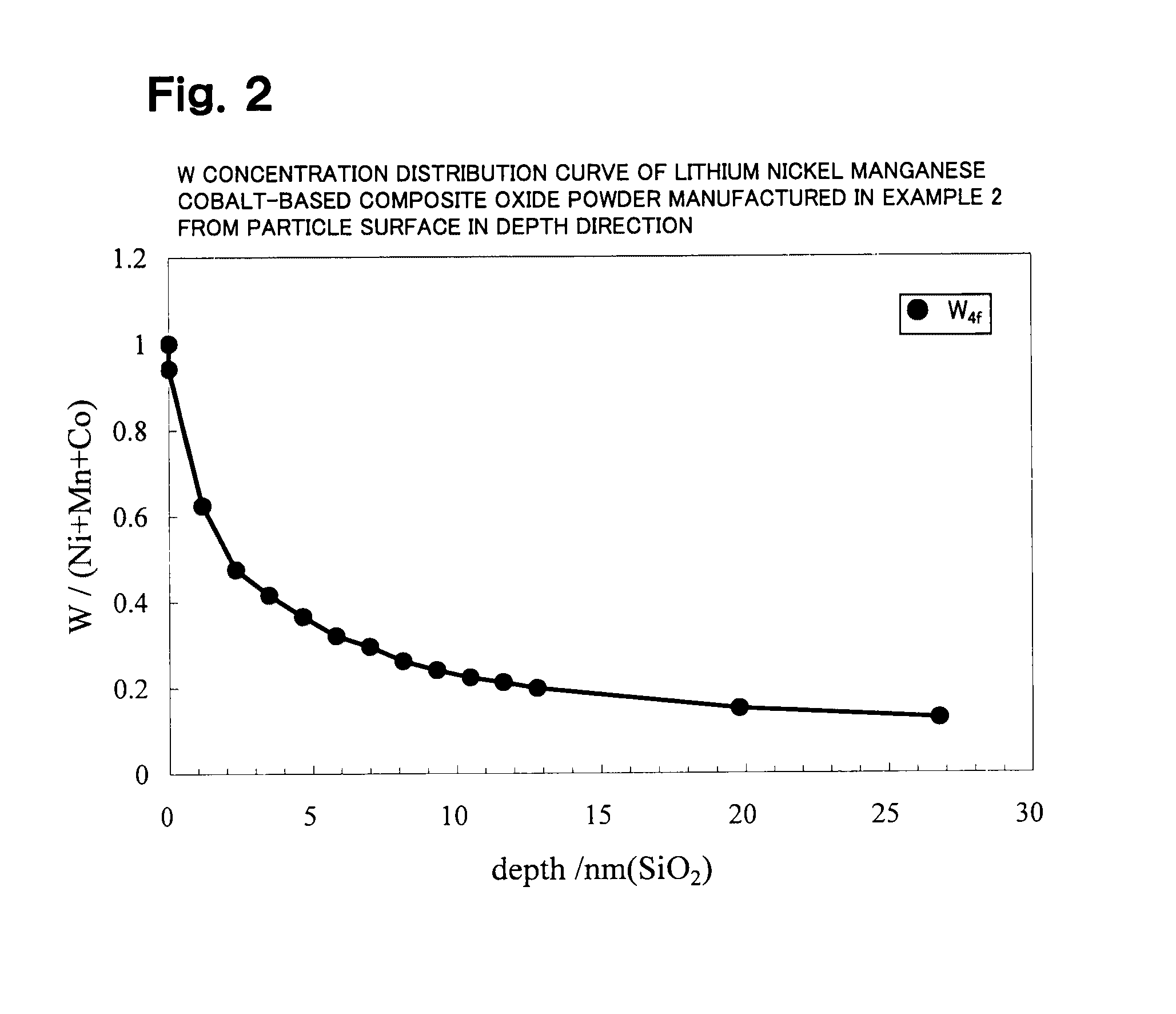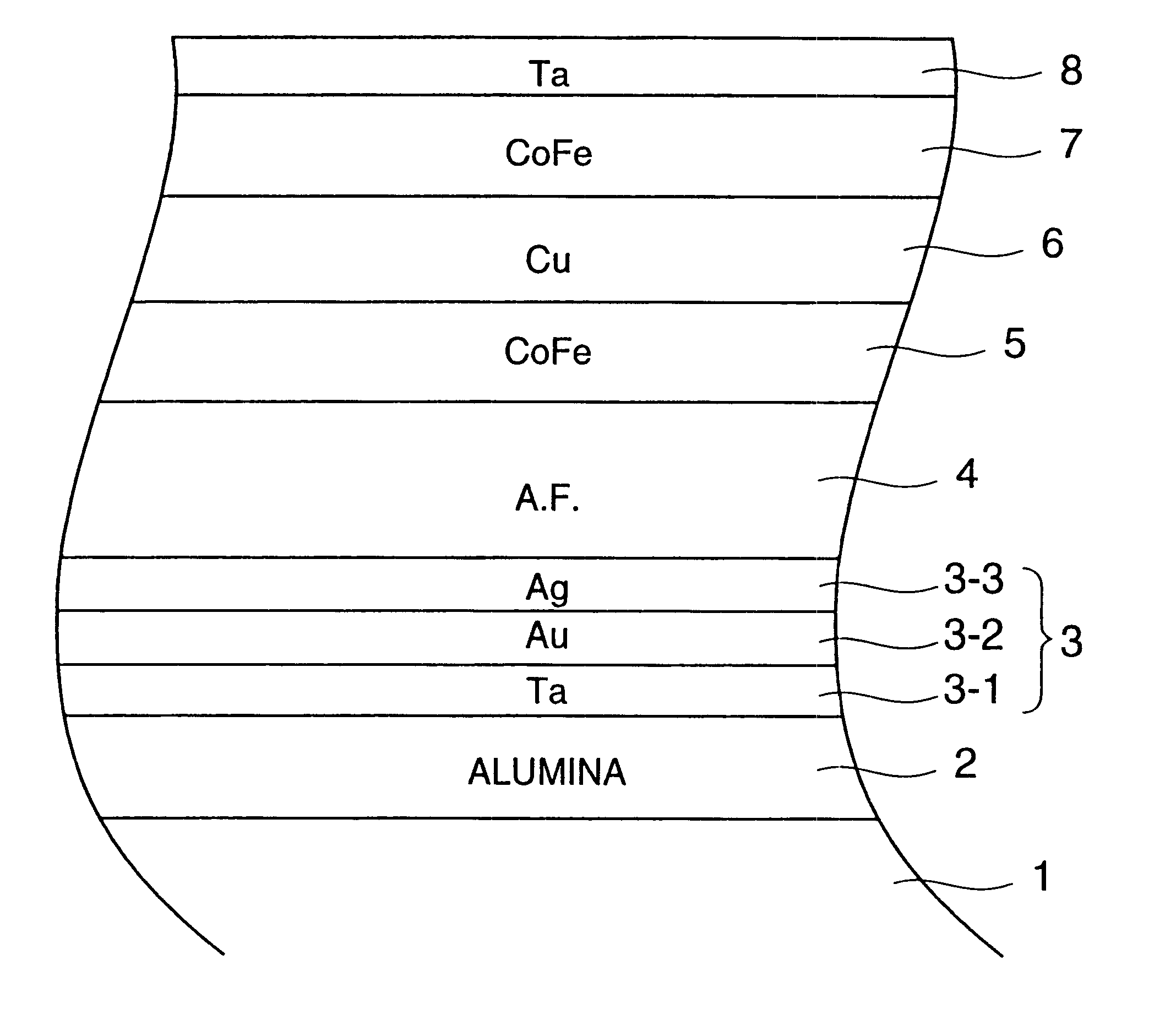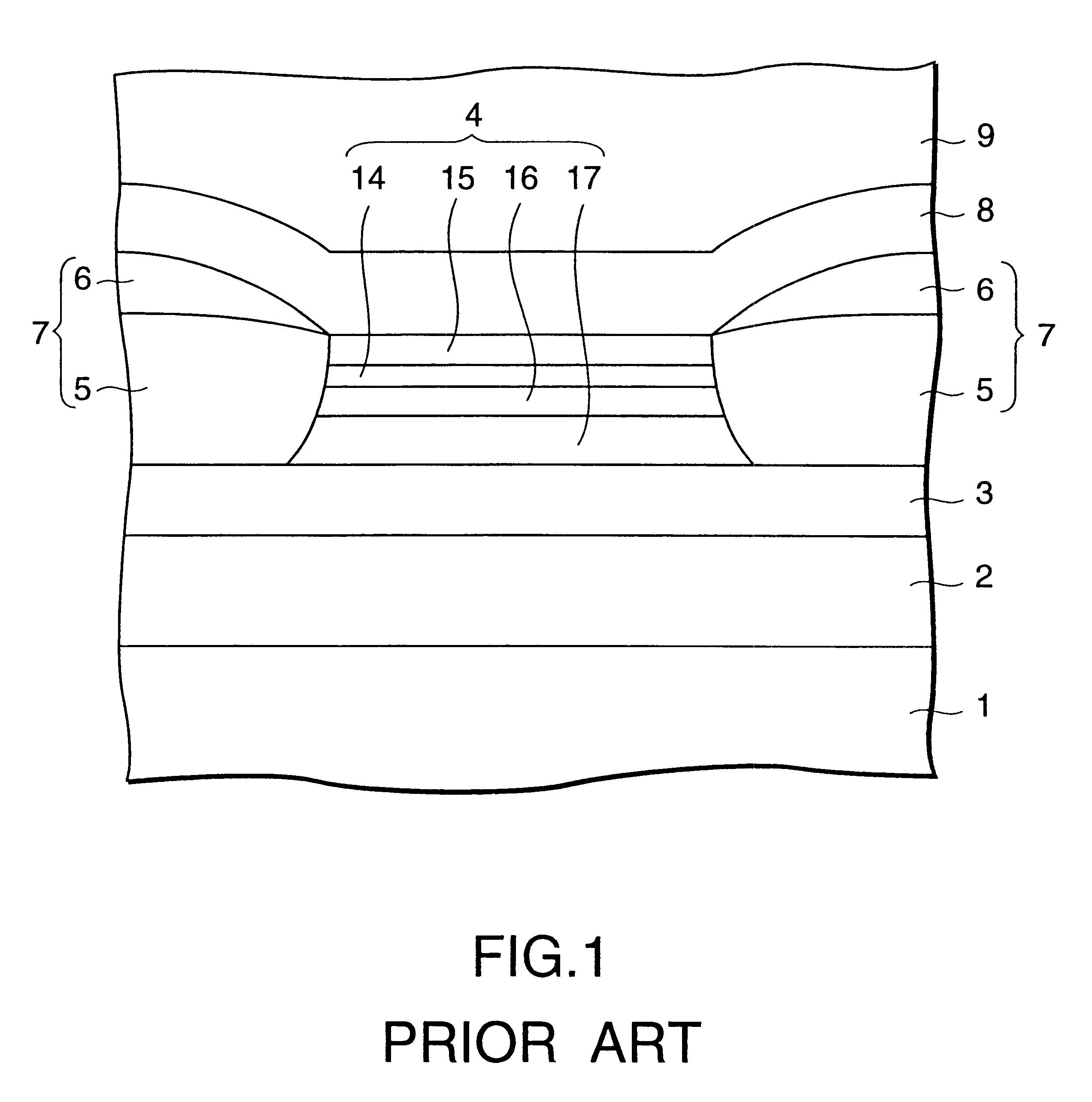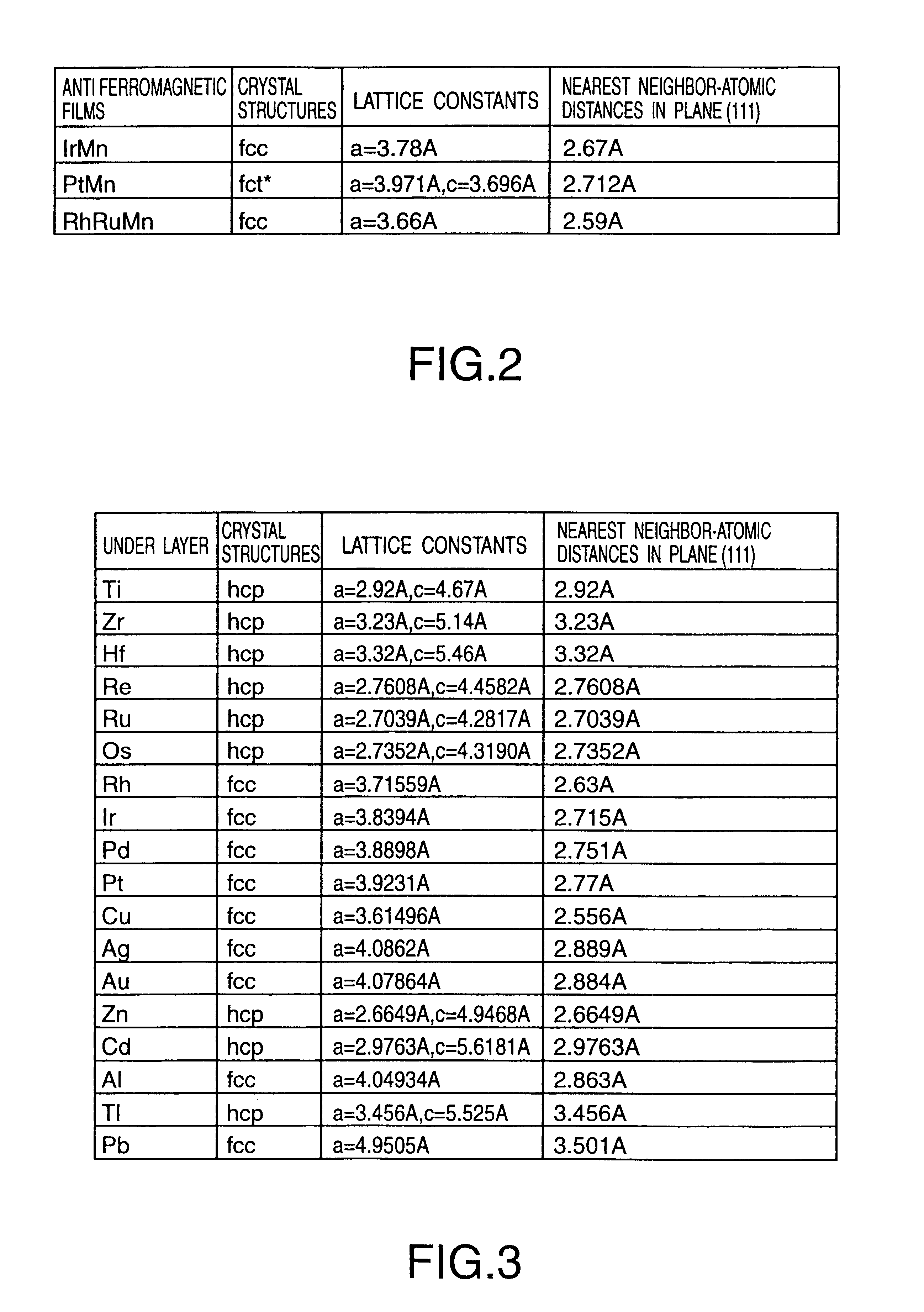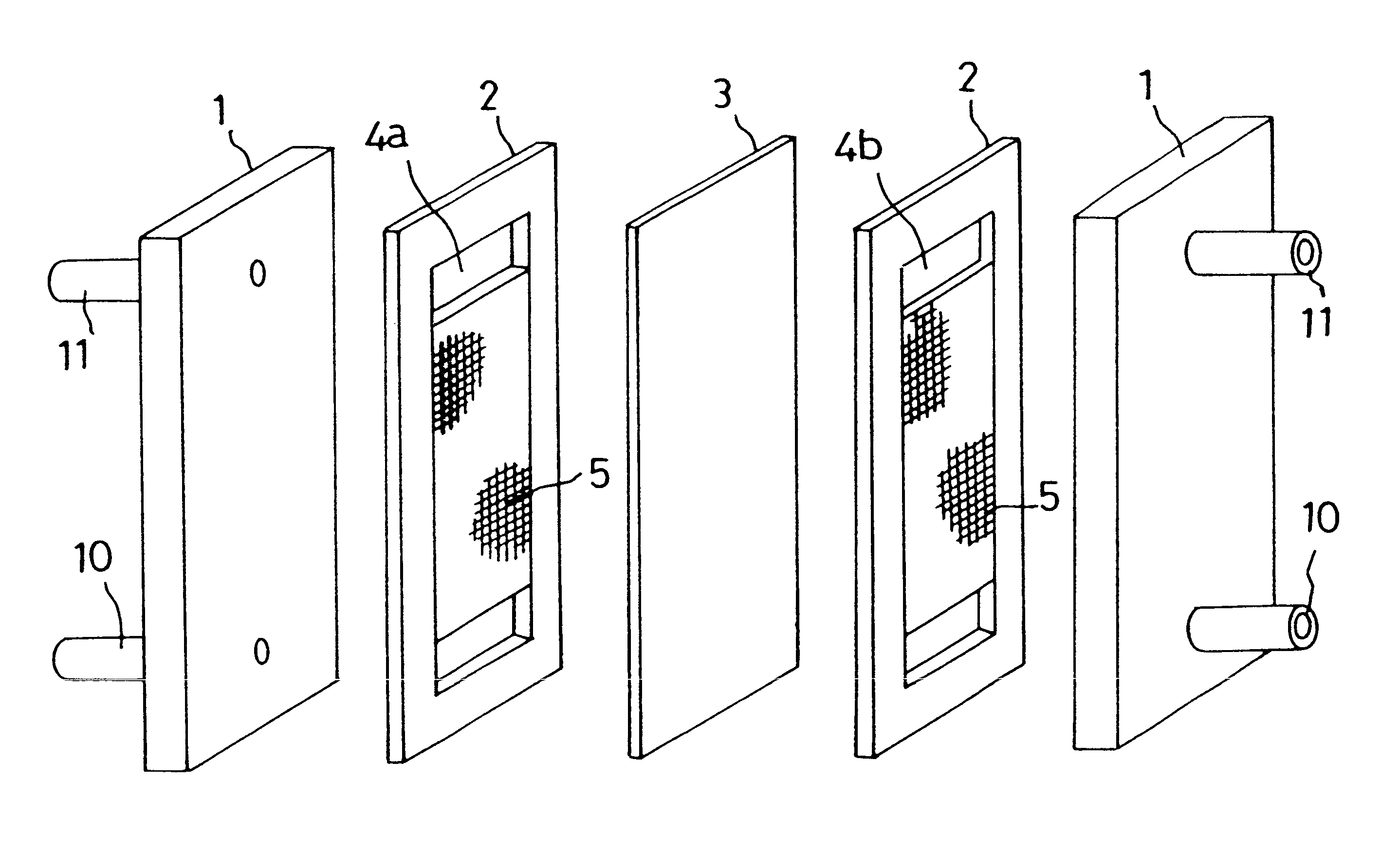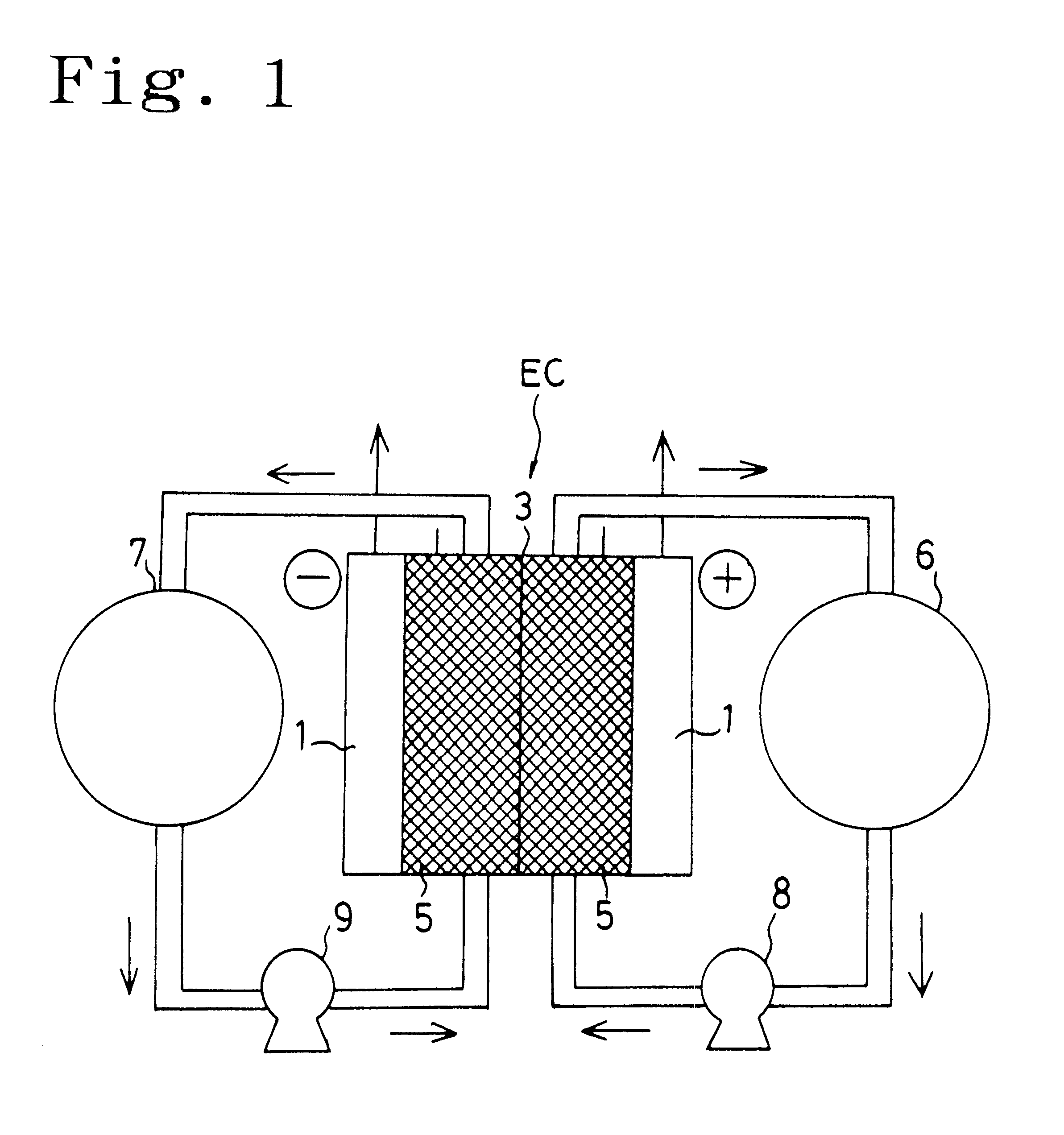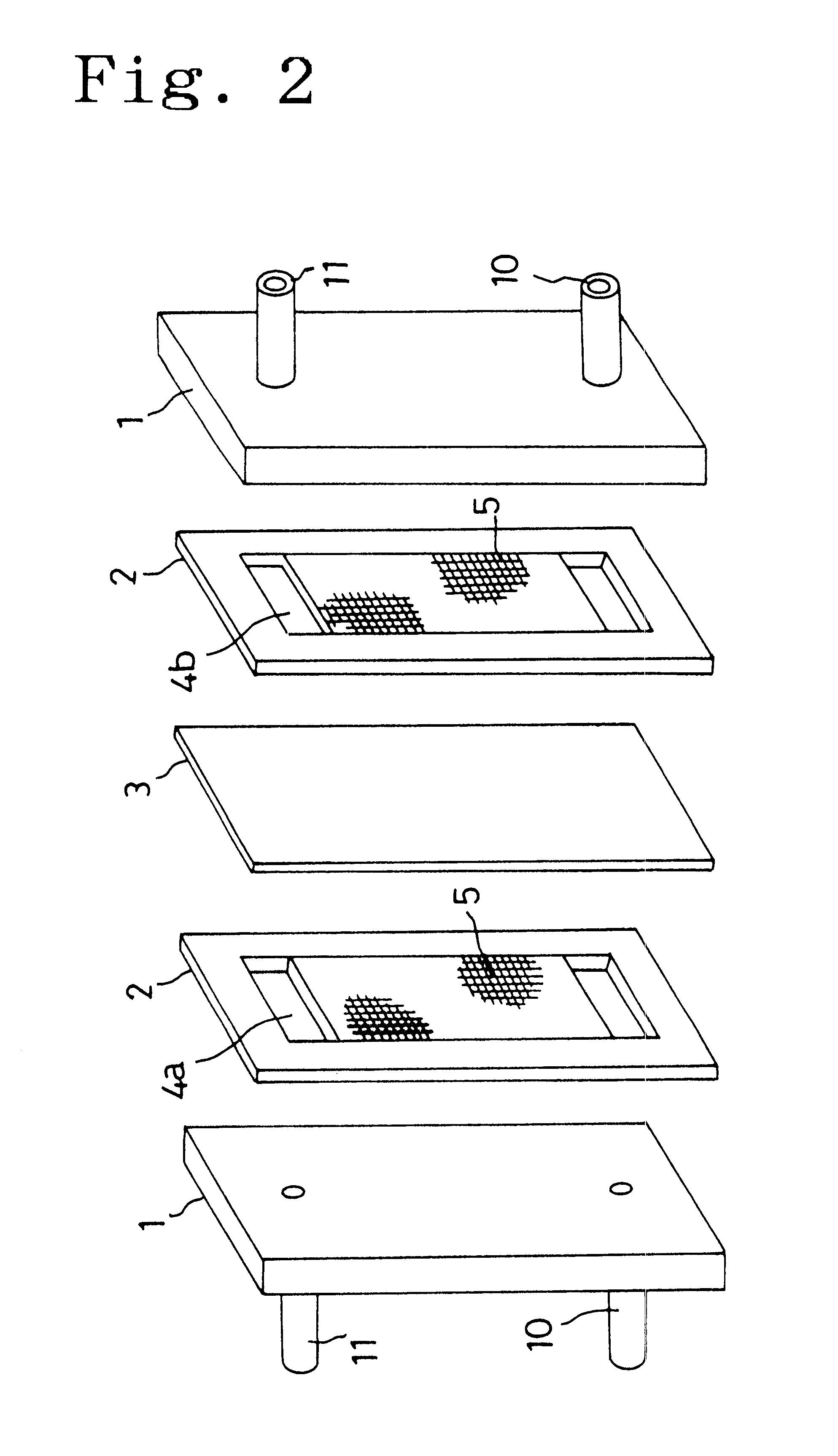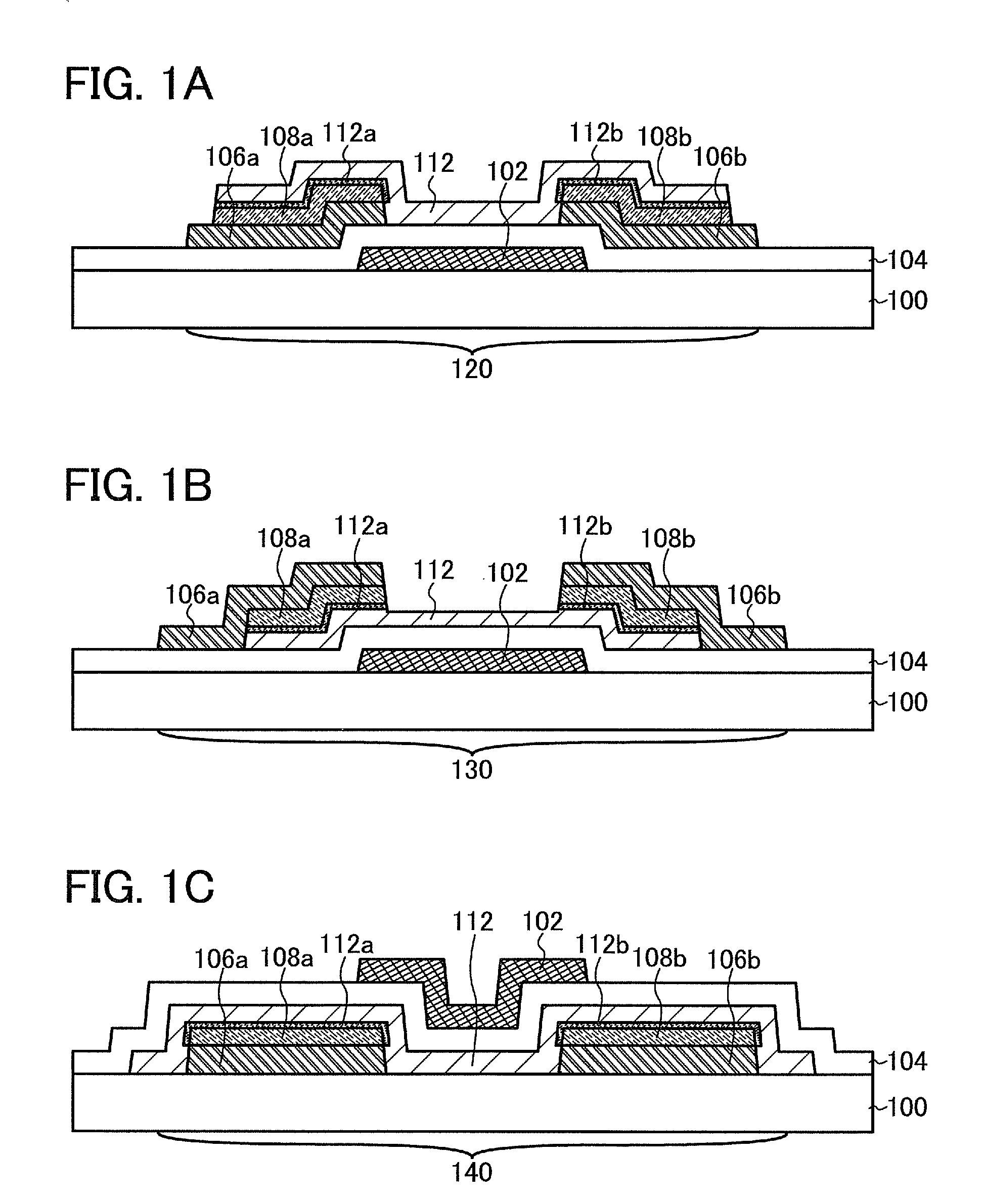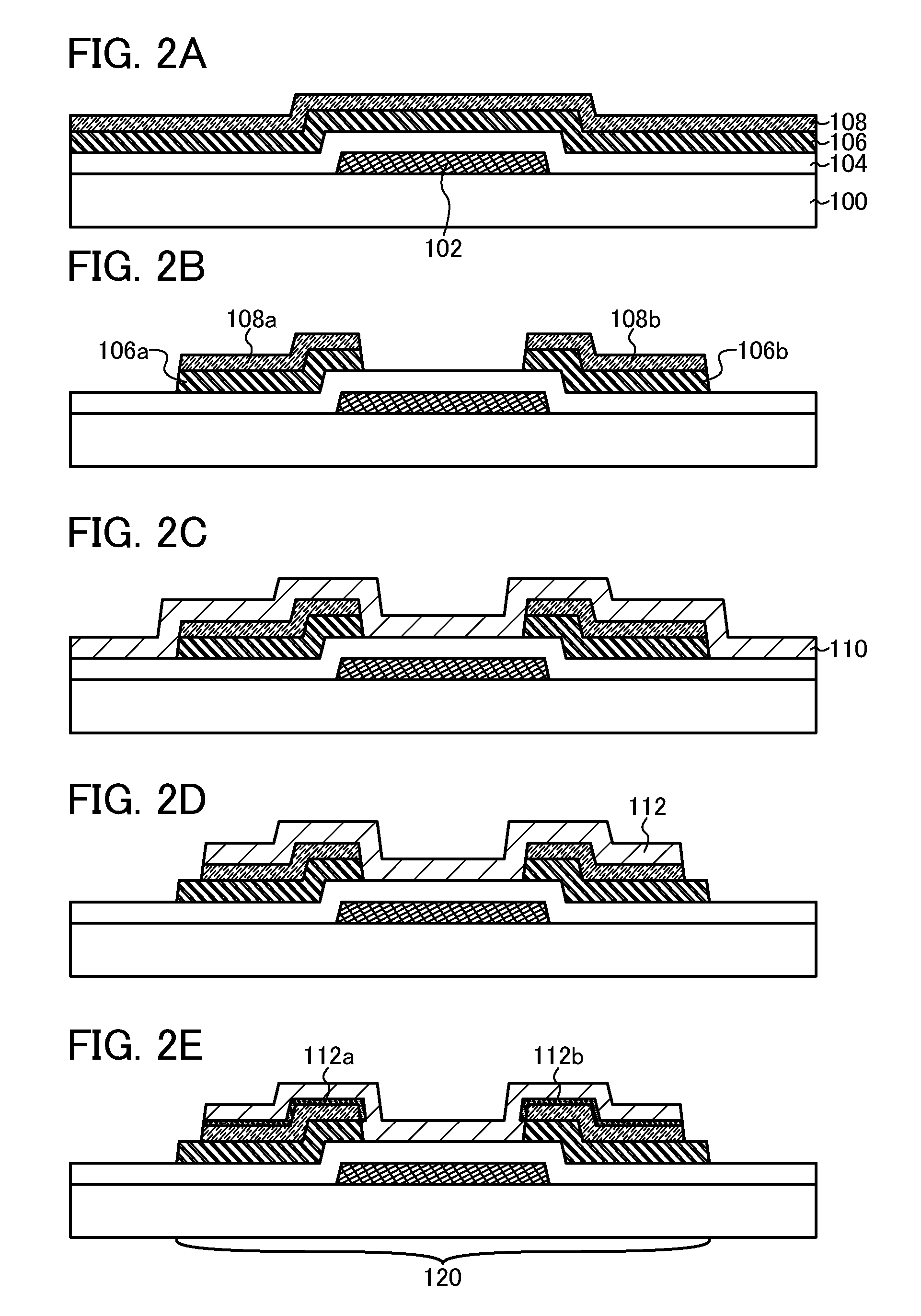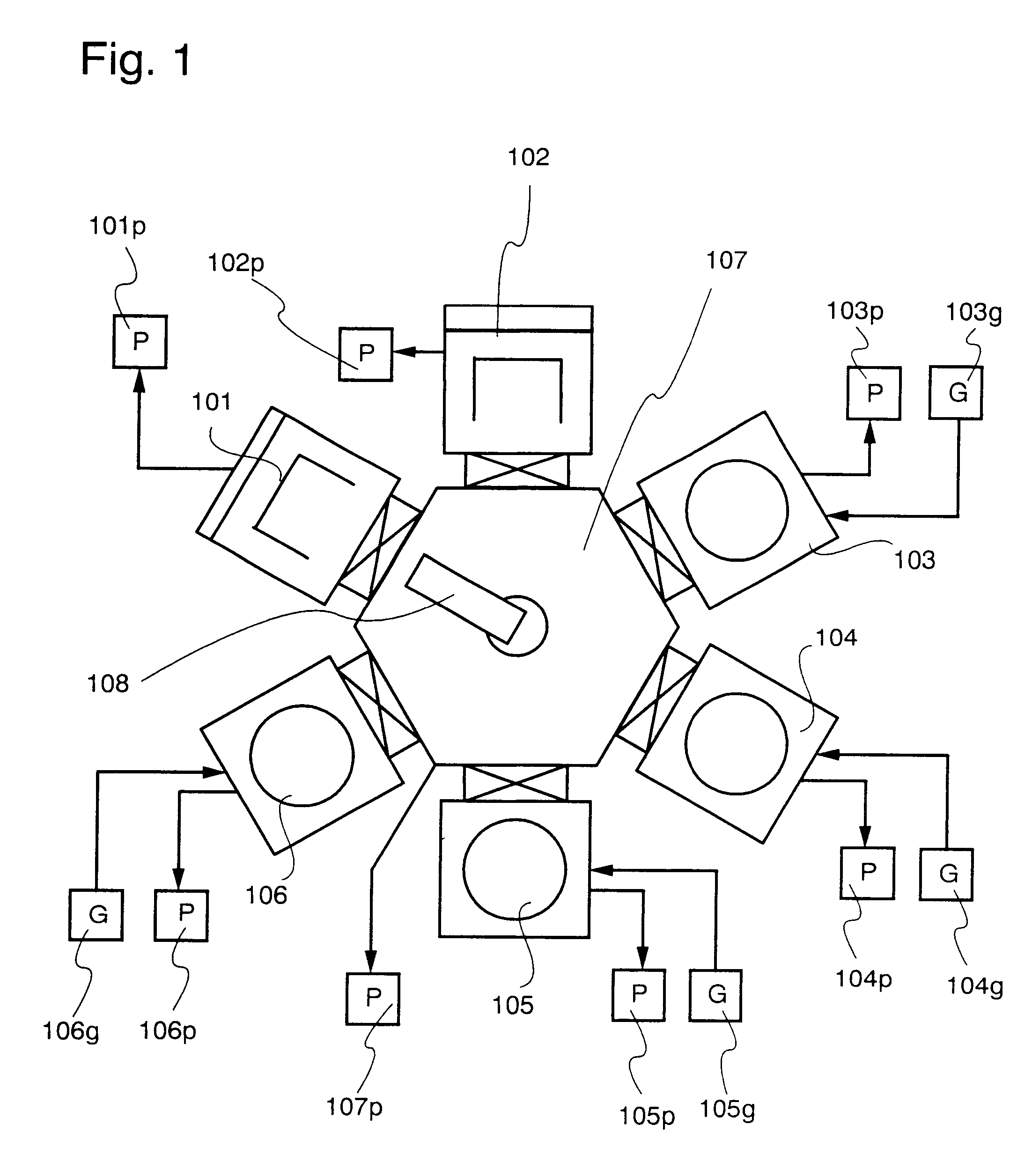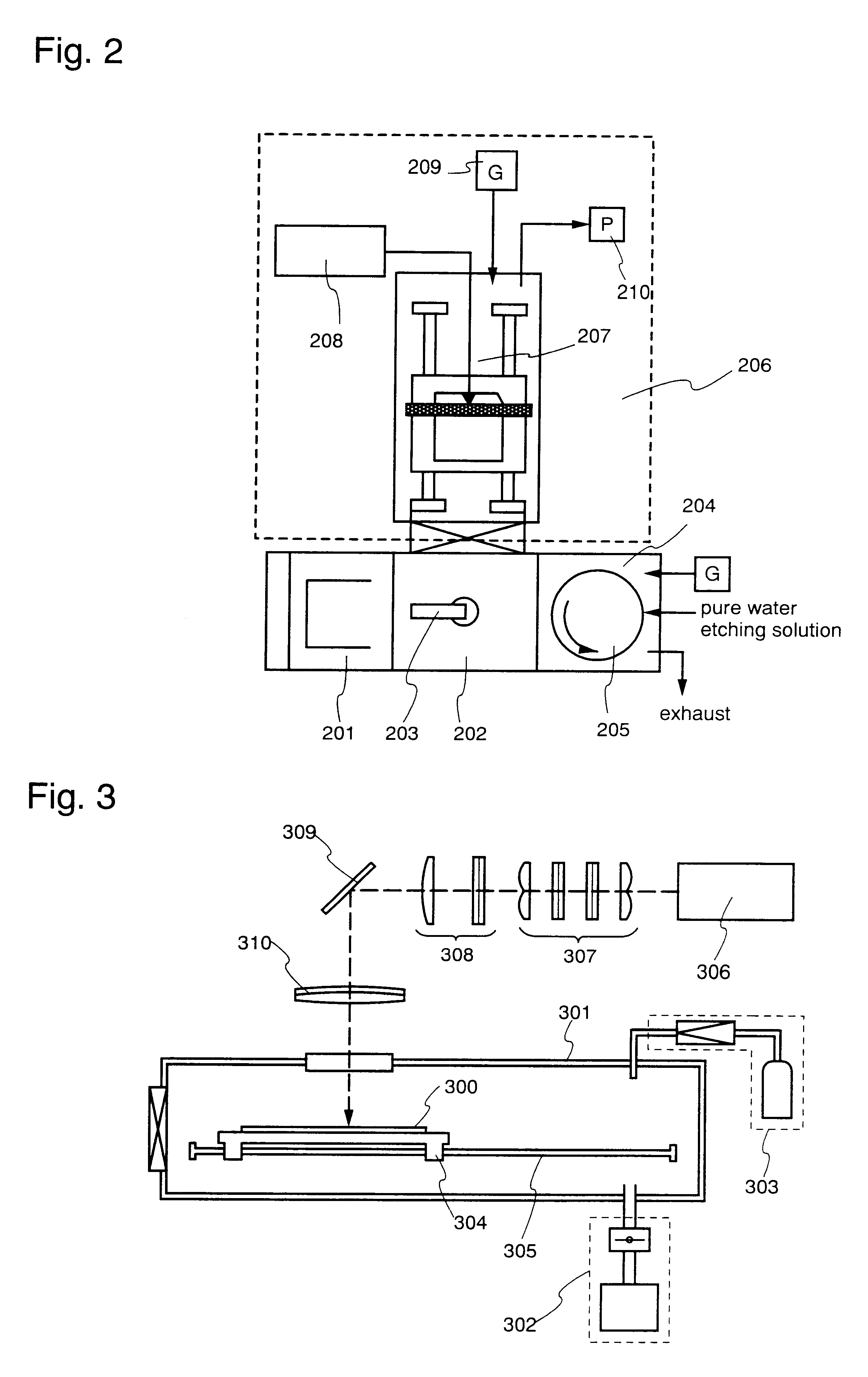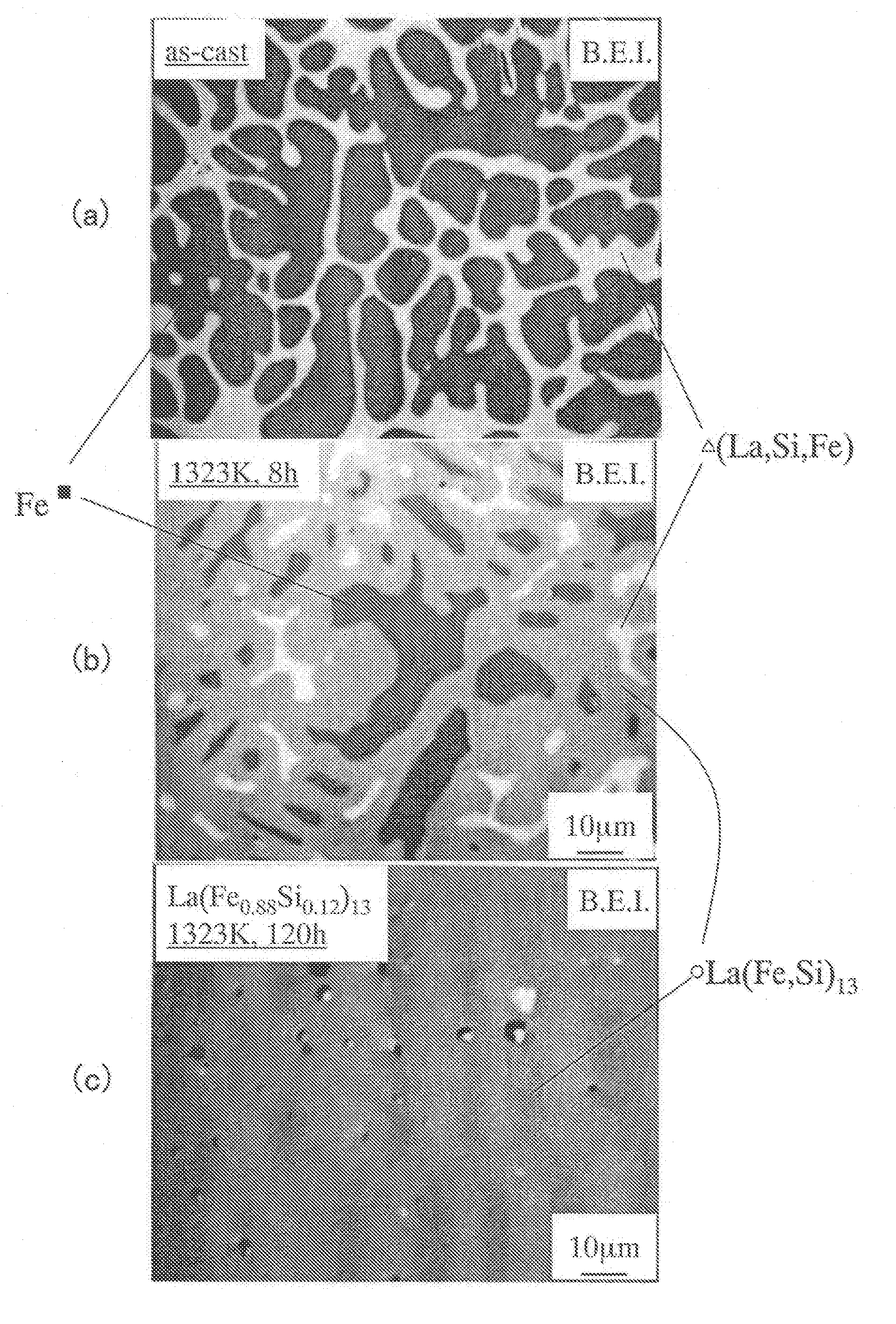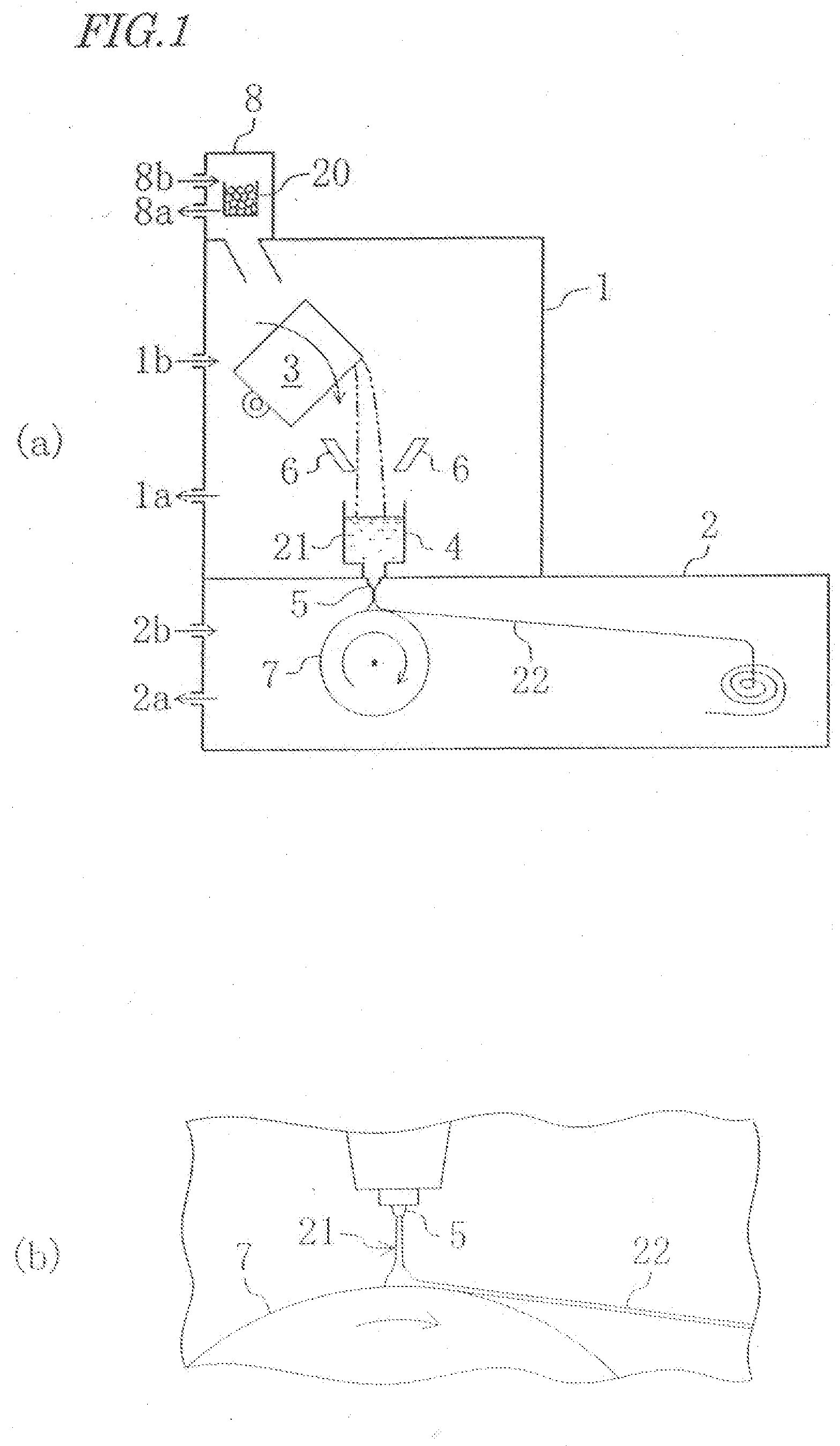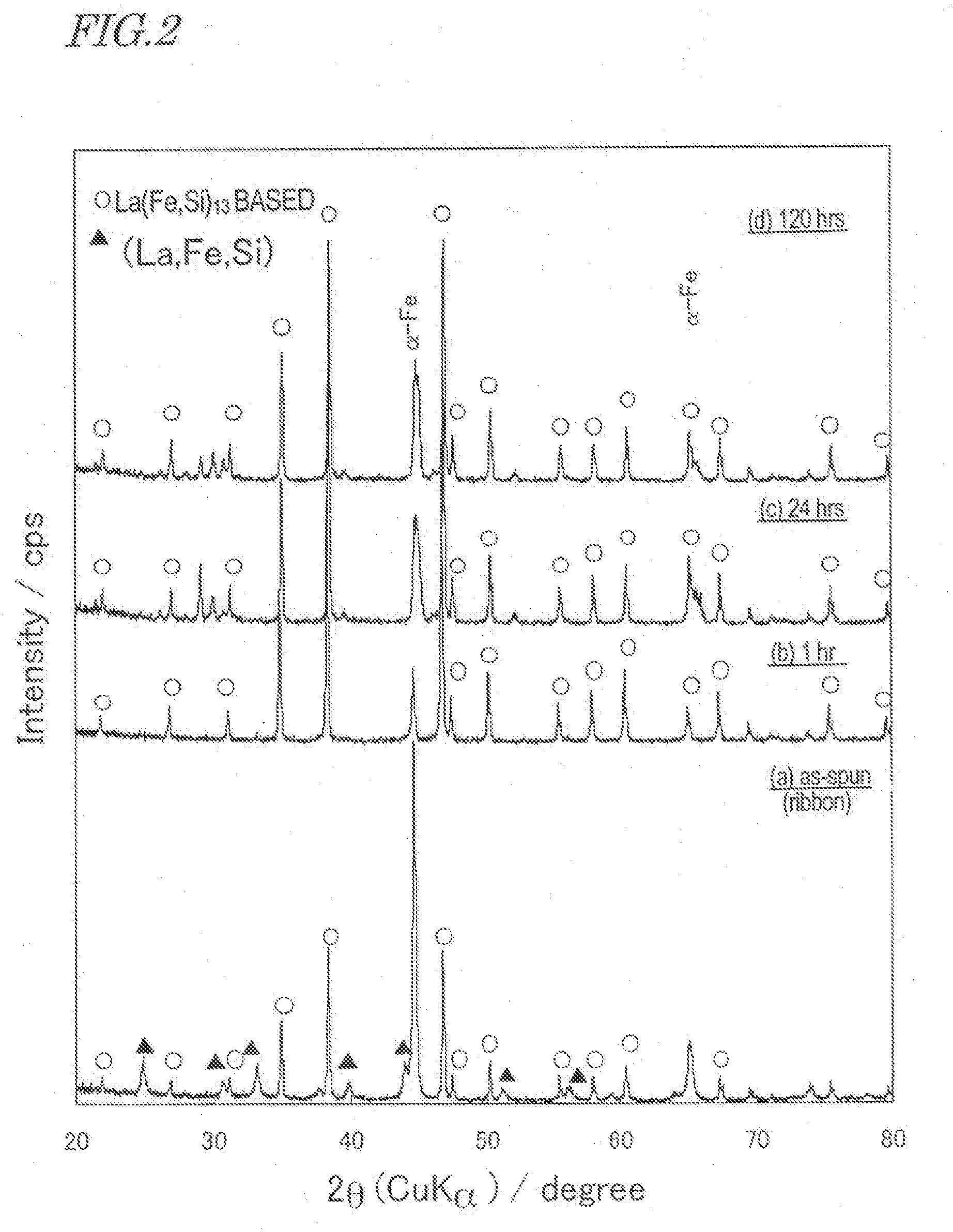Patents
Literature
9518 results about "Crystal structure" patented technology
Efficacy Topic
Property
Owner
Technical Advancement
Application Domain
Technology Topic
Technology Field Word
Patent Country/Region
Patent Type
Patent Status
Application Year
Inventor
In crystallography, crystal structure is a description of the ordered arrangement of atoms, ions or molecules in a crystalline material. Ordered structures occur from the intrinsic nature of the constituent particles to form symmetric patterns that repeat along the principal directions of three-dimensional space in matter.
Process for producing oriented inorganic crystalline film, and semiconductor device using the oriented inorganic crystalline film
ActiveUS20090152506A1Orientation can be controlledLow costFrom gel stateFrom solid stateOrganic solventDevice material
In a process for producing an oriented inorganic crystalline film, a non-monocrystalline film containing inorganic crystalline particles is formed on a substrate by a liquid phase technique using a raw-material solution which contains a raw material and an organic solvent, where the inorganic crystalline particles have a layered crystal structure and are contained in the raw material. Then, the non-monocrystalline film is crystallized by heating the non-monocrystalline film to a temperature equal to or higher than the crystallization temperature of the non-monocrystalline film so that part of the inorganic crystalline particles act as crystal nuclei.
Owner:FUJIFILM CORP
Transparent conductive film and method for manufacturing the same
ActiveUS20080050595A1Improve economyConductive layers on insulating-supportsSynthetic resin layered productsRocking curveFull width at half maximum
A ZnO-based transparent conductive film has practicable moisture resistance, desired characteristics of a transparent conductive film, and excellent economy. The transparent conductive film is produced by growing ZnO doped with a group III element oxide on a substrate and has a region with a crystal structure in which a c-axis grows along a plurality of different directions. The transparent conductive film produced by growing ZnO doped with a group III element oxide on a substrate has a ZnO (002) rocking curve full width at half maximum of about 13.5° or more.ZnO is doped with a group III element oxide so that the ratio of the group III element oxide in the transparent conductive film is about 7% to about 40% by weight.The transparent conductive film is formed on the substrate with a SiNx thin film provided therebetween.The transparent conductive film is formed on the substrate by a thin film formation method with a bias voltage applied to the substrate.
Owner:MURATA MFG CO LTD
Group III nitride photonic devices on silicon carbide substrates with conductive buffer interlay structure
InactiveUS6201262B1Avoid crackingEasy to manufactureSemiconductor/solid-state device manufacturingSemiconductor devicesStress inducedStress relieving
An optoelectronic device with a Group III Nitride active layer is disclosed that comprises a silicon carbide substrate; an optoelectronic diode with a Group III nitride active layer; a buffer structure selected from the group consisting of gallium nitride and indium gallium nitride between the silicon carbide substrate and the optoelectronic diode; and a stress-absorbing structure comprising a plurality of predetermined stress-relieving areas within the crystal structure of the buffer structure, so that stress-induced cracking that occurs in the buffer structure occurs at predetermined areas rather than elsewhere in the buffer structure.
Owner:CREE INC
Group III nitride photonic devices on silicon carbide substrates with conductive buffer interlayer structure
InactiveUS6187606B1Avoid crackingMinimize and eliminate heterobarrierSemiconductor/solid-state device manufacturingSemiconductor devicesStress inducedStress relieving
An optoelectronic device with a Group III Nitride active layer is disclosed that comprises a silicon carbide substrate; an optoelectronic diode with a Group III nitride active layer; a buffer structure selected from the group consisting of gallium nitride and indium gallium nitride between the silicon carbide substrate and the optoelectronic diode; and a stress-absorbing structure comprising a plurality of predetermined stress-relieving areas within the crystal structure of the buffer structure, so that stress-induced cracking that occurs in the buffer structure occurs at predetermined areas rather than elsewhere in the buffer structure.
Owner:CREE INC
Process for producing oriented inorganic crystalline film, and semiconductor device using the oriented inorganic crystalline film
ActiveUS8202365B2Orientation can be controlledLow costFrom gel stateFrom solid stateOrganic solventCrystal structure
In a process for producing an oriented inorganic crystalline film, a non-monocrystalline film containing inorganic crystalline particles is formed on a substrate by a liquid phase technique using a raw-material solution which contains a raw material and an organic solvent, where the inorganic crystalline particles have a layered crystal structure and are contained in the raw material. Then, the non-monocrystalline film is crystallized by heating the non-monocrystalline film to a temperature equal to or higher than the crystallization temperature of the non-monocrystalline film so that part of the inorganic crystalline particles act as crystal nuclei.
Owner:FUJIFILM CORP
Thin film transistor and method of producing thin film transistor
ActiveUS20100320459A1TransistorSemiconductor/solid-state device manufacturingThin membraneCrystal structure
The invention provides a thin film transistor comprising an active layer, the active layer comprising an IGZO-based oxide material, the IGZO-based oxide material being represented by a composition formula of In2-xGaxZnO4-δ, where 0.75<x<1.10 and 0<δ≦1.29161×exp(−x / 0.11802)+0.00153 and being formed from a single phase of IGZO having a crystal structure of YbFe2O4, and a method of producing the thin film transistor.
Owner:SAMSUNG DISPLAY CO LTD
Method of manufacturing capacitive insulating film for capacitor
InactiveUS8198168B2Increase capacitanceReduce adverse effectsThin/thick film capacitorSemiconductor/solid-state device manufacturingCapacitanceCrystal structure
According to the invention, a Ti film is formed on a substrate and is annealed at the temperatures of 350° C.-400° C. under oxidative environment, so that a TiO2 film having a rutile crystal structure is formed. Since the TiO2 film having a rutile crystal structure has a high dielectric constant, it is useful for a capacitive insulating film for a capacitor.
Owner:PS4 LUXCO SARL
Method of Manufacturing A Semiconductor Device
ActiveUS20130171818A1Improve thermal stabilityStabilize bonding structureSolid-state devicesSemiconductor/solid-state device manufacturingElectrical resistance and conductanceDevice material
Owner:SAMSUNG ELECTRONICS CO LTD
Method for producing nitride semiconductor, crystal growth rate increasing agent, single crystal nitride, wafer and device
InactiveUS20100104495A1Improve performanceIncrease probabilityPolycrystalline material growthFrom normal temperature solutionsNitrogenCrystal structure
A method for producing a nitride semiconductor, comprising controlling temperature and pressure in a autoclave containing a seed having a hexagonal crystal structure, a nitrogen element-containing solvent, a raw material substance containing a metal element of Group 13 of the Periodic Table, and a mineralizer so as to put said solvent into a supercritical state and / or a subcritical state and thereby ammonothermally grow a nitride semiconductor crystal on the surface of said seed, wherein the crystal growth rate in the m-axis direction on said seed is 1.5 times or more the crystal growth rate in the c-axis direction on said seed. By the method, a nitride semiconductor having a large-diameter C plane or a nitride semiconductor thick in the m-axis direction can be efficiently and simply produced.
Owner:MITSUBISHI CHEM CORP +1
Phosphor and light-emitting equipment using phosphor
ActiveUS20070007494A1Increase brightnessGood colorOther chemical processesNitrogen-metal/silicon/boron binary compoundsFluorescenceRare earth
An object of the present invention is to provide an inorganic phosphor having fluorescence properties emitting an orange or red light which has a longer wavelength as compared with the cases of conventional sialon phosphors activated with a rare earth. The invention relates to a design of white light-emitting diode rich in a red component and having good color-rendering properties by employing a solid solution crystal phase phosphor which uses as a host crystal an inorganic compound having the same crystal structure as that of a CaSiAlN3 crystal phase and to which M Element (wherein M Element is one or two or more elements selected from the group consisting of Mn, Ce, Pr, Nd, Sm, Eu, Tb, Dy, Ho, Er, Tm, and Yb) is added as an emission center.
Owner:NICHIA CORP +1
Copper CHA zeolite catalysts
ActiveUS7601662B2Good hydrothermal stabilityHigh catalytic activityCombination devicesAluminium compoundsReaction temperatureCrystal structure
Zeolite catalysts and systems and methods for preparing and using zeolite catalysts having the CHA crystal structure are disclosed. The catalysts can be used to remove nitrogen oxides from a gaseous medium across a broad temperature range and exhibit hydrothermal stable at high reaction temperatures. The zeolite catalysts include a zeolite carrier having a silica to alumina ratio from about 15:1 to about 256:1 and a copper to alumina ratio from about 0.25:1 to about 1:1.
Owner:BASF CORP
Perovskite-based thin film structures on miscut semiconductor substrates
InactiveUS20060288928A1Quality improvementGood metallic behaviorPolycrystalline material growthFrom chemically reactive gasesCrystal structureCrystal plane
A perovskite-based thin film structure includes a semiconductor substrate layer, such as a crystalline silicon layer, having a top surface cut at an angle to the (001) crystal plane of the crystalline silicon. A perovskite seed layer is epitaxially grown on the top surface of the substrate layer. An overlayer of perovskite material is epitaxially grown above the seed layer. In some embodiments the perovskite overlayer is a piezoelectric layer grown to a thickness of at least 0.5 μm and having a substantially pure perovskite crystal structure, preferably substantially free of pyrochlore phase, resulting in large improvements in piezoelectric characteristics as compared to conventional thin film piezoelectric materials.
Owner:PENN STATE RES FOUND +1
Semiconductor device and fabrication method thereof
To provide a semiconductor device having high mass production performance and high reliability and reproducibility by simple fabrication steps, in a constitution of a semiconductor device of a bottom gate type formed by a semiconductor layer having a crystal structure, source and drain regions are constituted by a laminated layer structure comprising a first conductive layer (n+ layer), a second conductive layer (n- layer) having resistance higher than the first conductive layer and an intrinsic or a substantially intrinsic semiconductor layer (i layer) in which the n- layer functions as an LDD region and the i layer functions as an offset region in a film thickness direction.
Owner:SEMICON ENERGY LAB CO LTD
Semiconductor memory device including charge trap layer with stacked nitride layers
A semiconductor memory device includes a semiconductor substrate, a tunnel insulating layer, charge trap layer, and a blocking layer. The tunnel insulating layer is on the semiconductor substrate. The charge trap layer is on the tunnel insulating layer and includes at least one pair of a first nitride layer with a higher trap density of holes than electrons and a second nitride layer with a higher trap density of electrons than holes. The blocking layer is on the charge trap layer opposite to the tunnel insulating layer. The first nitride layer may include silicon rich nitride, which may have a ratio of silicon to nitride of greater than 1 and less than or equal to 2. The second nitride layer may include aluminum nitride which may have a hexagonal crystalline structure.
Owner:SAMSUNG ELECTRONICS CO LTD
Thin film write head with improved laminated flux carrying structure and method of fabrication
InactiveUS6233116B1High resistivityExcellent soft magnetic propertiesConstruction of head windingsHeads using thin filmsLower poleHigh resistivity
The present invention provides a thin film write head having an improved laminated flux carrying structure and method of fabrication. The preferred embodiment provides laminated layers of: high moment magnetic material, and easily aligned high resistivity magnetic material. In the preferred embodiment, the easily aligned laminating layer induces uniaxial anisotropy, by exchange coupling, to improve uniaxial anisotropy in the high moment material. This allows deposition induced uniaxial anisotropy by DC magnetron sputtering and also provides improved post deposition annealing, if desired. It is preferred to laminate FeXN, such as FeRhN, or other crystalline structure material, with an amorphous alloy material, preferably Co based, such as CoZrCr. In the preferred embodiment, upper and lower pole structures may both be laminated as discussed above. Such laminated structures have higher Bs than structures with insulative laminates, and yokes and pole tips and may be integrally formed, if desired, because flux may travel along or across the laminating layers. The preferred embodiment of the present invention improves soft magnetic properties, reduces eddy currents, improves hard axis alignment while not deleteriously affecting the coercivity, permeability, and magnetostriction of the structure, thus allowing for improved high frequency operation.
Owner:WESTERN DIGITAL TECH INC +1
Magnetic write head with high moment magnetic thin film formed over seed layer
A magnetic write head includes a seed layer and a magnetic layer on the seed layer. The seed layer includes seed-layer grains having either a face-centered cubic (fcc) crystalline structure with a surface plane substantially oriented in a [111] direction or a hexagonal-close-packed (hcp) crystalline structure with a surface plane substantially oriented in a [0001] direction. The magnetic layer includes magnetic-layer grains having a body-centered-cubic (bcc) crystalline structure with a surface plane substantially oriented in a [110] direction.
Owner:WESTERN DIGITAL TECH INC
Radio frequency lens and method of suppressing side-lobes
ActiveUS7777690B2Weaken energyImproves Structural IntegrityAntennasPhotonic crystal structureCrystal structure
An RF lens according to the present invention embodiments collimates an RF beam by refracting the beam into a beam profile that is diffraction-limited. The lens is constructed of a lightweight mechanical arrangement of two or more materials, where the materials are arranged to form a photonic crystal structure (e.g., a series of holes defined within a parent material). The lens includes impedance matching layers, while an absorptive or apodizing mask is applied to the lens to create a specific energy profile across the lens. The impedance matching layers and apodizing mask similarly include a photonic crystal structure. The energy profile function across the lens aperture is continuous, while the derivatives of the energy distribution function are similarly continuous. This lens arrangement produces a substantial reduction in the amount of energy that is transmitted in the side-lobes of an RF system.
Owner:HARRIS CORP
Photonic crystal light emitting device
ActiveUS7012279B2Solid-state devicesSemiconductor/solid-state device manufacturingCrystal structurePhotonic crystal structure
A photonic crystal structure is formed in an n-type layer of a III-nitride light emitting device. In some embodiments, the photonic crystal n-type layer is formed on a tunnel junction. The device includes a first layer of first conductivity type, a first layer of second conductivity type, and an active region separating the first layer of first conductivity type from the first layer of second conductivity type. The tunnel junction includes a second layer of first conductivity type and a second layer of second conductivity type and separates the first layer of first conductivity type from a third layer of first conductivity type. A photonic crystal structure is formed in the third layer of first conductivity type.
Owner:AVAGO TECH INT SALES PTE LTD +1
Multispectral plasmonic crystal sensors
InactiveUS20080212102A1Enhanced local plasmonic field distributionImproved field distributionSolid-state devicesScattering properties measurementsCouplingCrystal structure
The present invention provides plasmonic crystals comprising three-dimensional and quasi comprising three-dimensional distributions of metallic or semiconducting films, including multi-layered crystal structures comprising nanostructured films and film arrays. Plasmonic crystals of the present invention include precisely registered and deterministically selected nonplanar crystal geometries and spatial distributions providing highly coupled, localized plasmonic responses in thin film elements and / or nanostructures of the crystal. Coupling of plasmonic responses provided by three-dimensional and quasi-three dimensional plasmonic crystal geometries and structures of the present invention generates enhanced local plasmonic field distributions useful for detecting small changes in the composition of an external dielectric environment proximate to a sensing surface of the plasmonic crystal. Plasmonic crystal structures of the present invention are also useful for providing highly localized excitation and / or imaging of fluorophores proximate to the crystal surface.
Owner:THE BOARD OF TRUSTEES OF THE UNIV OF ILLINOIS
Photonic crystal light emitting device
ActiveUS20050082545A1Solid-state devicesSemiconductor/solid-state device manufacturingCrystal structurePhotonic crystal structure
A photonic crystal structure is formed in an n-type layer of a III-nitride light emitting device. In some embodiments, the photonic crystal n-type layer is formed on a tunnel junction. The device includes a first layer of first conductivity type, a first layer of second conductivity type, and an active region separating the first layer of first conductivity type from the first layer of second conductivity type. The tunnel junction includes a second layer of first conductivity type and a second layer of second conductivity type and separates the first layer of first conductivity type from a third layer of first conductivity type. A photonic crystal structure is formed in the third layer of first conductivity type.
Owner:AVAGO TECH INT SALES PTE LTD +1
Semiconductor device and method for manufacturing semiconductor device
ActiveUS20120132903A1Well representedUnstable characteristicTransistorSolid-state devicesCrystal structureEngineering
A highly reliable semiconductor device is manufactured by giving stable electric characteristics to a transistor in which an oxide semiconductor film is used for a channel. An oxide semiconductor film which can have a first crystal structure by heat treatment and an oxide semiconductor film which can have a second crystal structure by heat treatment are formed so as to be stacked, and then heat treatment is performed; accordingly, crystal growth occurs with the use of an oxide semiconductor film having the second crystal structure as a seed, so that an oxide semiconductor film having the first crystal structure is formed. An oxide semiconductor film formed in this manner is used for an active layer of the transistor.
Owner:SEMICON ENERGY LAB CO LTD
Ceramic material and process for producing the same
ActiveUS20100047696A1Compactness sufficientOvercome lack of conductivitySolid electrolyte cellsCapacitor electrolytes/absorbentsLithiumCrystal structure
A ceramic material that can exhibit sufficient compactness and lithium (Li) conductivity to enable the use thereof as a solid electrolyte material for a lithium secondary battery and the like is provided. The ceramic material contains aluminum (Al) and has a garnet-type crystal structure or a garnet-like crystal structure containing lithium (Li), lanthanum (La), zirconium (Zr) and oxygen (O).
Owner:NGK INSULATORS LTD
Zero emission gasification, power generation, carbon oxides management and metallurgical reduction processes, apparatus, systems, and integration thereof
ActiveUS7674443B1Improvement in individual technology componentEnhances economic performanceUsing liquid separation agentBiofuelsCyclonic separationOxygen
A system involving a two-step gasification of a carbonaceous source to produce bulk hydrogen that avoids the early formation of CO2 and obviates the traditional water gas shift (WGSR) step, carbochlorination of a metallic ore the production of metals found in the ore that utilizes carbon monoxide as an oxygen sink, rather than the traditional coke, and carbon oxides management that eliminates major impediments to emission-neutral power generation and the reduction of major metals. The gasification uses a rotary kiln reactor and gas-gas cyclonic separation process to separate synthesis gas into purified hydrogen and purified carbon monoxide. Purified bulk carbon monoxide issued in metallurgical reduction, and purified bulk hydrogen as fuel for an emission-neutral hydrogen combined cycle (HCC) turbine power generation station. The carbochlorination is integrated with: a) the concurrent separation and purification of all metal-chlorides (metchlors) and capture of CO2 for passage to the carbon oxides management system; b) the direct reduction of metchlors to nanoscale metallurgical powders and / or to dendritically-shaped particles, including metchlor reduction for the ultrahigh-performance semiconductor metals of the III-V group; and, c) the reforming of metal-oxides with improved crystalline structure from metchlors. The carbon oxides management collects, stores and directs to points of usage, carbon oxides that arise in various processes of the integrated system, and captures carbon monoxide for process enhancement and economic uses and captures carbon dioxide as a process intermediate and for economic uses.
Owner:DAVIS OLUMIJI B +1
Magnetoresistive element and magnetic memory
A magnetoresistive element includes a free layer which contains a magnetic material and has an fct crystal structure with a (001) plane oriented, the free layer having a magnetization which is perpendicular to a film plane and has a direction to be changeable by spin-polarized electrons, a first nonmagnetic layer and a second nonmagnetic layer which sandwich the free layer and have one of a tetragonal crystal structure and a cubic crystal structure, and a fixed layer which is provided on only one side of the free layer and on a surface of the first nonmagnetic layer opposite to a surface with the free layer and contains a magnetic material, the fixed layer having a magnetization which is perpendicular to a film plane and has a fixed direction.
Owner:KIOXIA CORP
Lithium transition metal-based compound powder, method for manufacturing the same, spray-dried substance serving as firing precursor thereof, and lithium secondary battery positive electrode and lithium secondary battery using the same
ActiveUS20100209771A1Improve load characteristicsHigh densityMaterial nanotechnologyAlkaline accumulatorsLithiumHigh density
A lithium transition metal-based compound powder for a lithium secondary battery positive electrode material that can achieve both improvements of load characteristics such as rate and output characteristics and a higher density is a lithium transition metal-based compound powder containing, as a main component, a lithium transition metal-based compound that has a function of allowing elimination and insertion of lithium ions, and including a crystal structure belonging to a layer structure, wherein primary particles are aggregated to form secondary particles, the ratio A / B of a median diameter A of the secondary particles to an average diameter (average primary particle diameter B) is in the range of 8 to 100, and 0.01≦FWHM(110)≦0.5 where FWHM(110) is the half width of a (110) diffraction peak present near a diffraction angle 2θ of 64.5° in a powder X-ray diffraction analysis using a CuKα line.
Owner:MITSUBISHI CHEM CORP
Laminated magnetorestrictive element of an exchange coupling film, an antiferromagnetic film and a ferromagnetic film and a magnetic disk drive using same
InactiveUS6313973B1Stable output voltageRaise the ratioNanomagnetismNanoinformaticsGiant magnetoresistanceCoupling
A magnetoresistive element comprises an exchange coupling film having a under layer, an antiferromagnetic film and a ferromagnetic film, which are laminated in that order, the under layer including a metal having a face centered cubic crystal structure or hexagonal closest packing crystal structure which have a longer nearest neighbor atomic distance than that of the antiferromagnetic film. With this construction, it is possible to improve the exchange coupling field and to satisfy a stable output over a long period of time. A magnetoresistive element having a dual spin valve structure has a magnetization adjusting layer, which is antiferromagnetically connected to a pinned layer via an anti-parallel connection layer, to adjust the value of the product of the saturation magnetization of each of the magnetization adjusting layer and the pinned layer by the thickness thereof. Moreover, a magnetoresistance head use a giant magnetoresistance effect, and has at least one pair of pinned layer and free layer arranged via a non-magnetic spacer layer. The pinned layer has a pair of ferromagnetic layers which have different compositions and different coercive forces and which are antiferromagnetically connected to each other via a connection layer, so that the effective exchange coupling field of the pinned layer is 200 Oe or more.
Owner:KK TOSHIBA
Carbon electrode material for a vanadium-based redox-flow battery
The carbon electrode material of the present invention is used for a vanadium redox-flow cell. The carbon electrode material has quasi-graphite crystal structure in which <002> spacing obtained by X-ray wide angle analysis is 3.43 to 3.60 Å, size of a crystallite in c axial direction is 15 to 33 Å and size of crystallite in a axial direction is 30 to 70 Å. In addition, an amount of surface acidic functional groups obtained by XPS surface analysis is 0.1 to 1.2% and total number of surface bound-nitrogen atoms is 5% or smaller relative to total number of surface carbon atoms. The carbon electrode materials formed of a non-woven fabric of a carbonaceouss fiber is preferable.
Owner:TOYO TOYOBO CO LTD
Transistor and method for manufacturing the transistor
ActiveUS20100193782A1Reduce variationContact resistanceTransistorSolid-state devicesCrystal structureSemiconductor
It is an object to reduce characteristic variation among transistors and reduce contact resistance between an oxide semiconductor layer and a source electrode layer and a drain electrode layer, in a transistor where the oxide semiconductor layer is used as a channel layer. In a transistor where an oxide semiconductor is used as a channel layer, at least an amorphous structure is included in a region of an oxide semiconductor layer between a source electrode layer and a drain electrode layer, where a channel is to be formed, and a crystal structure is included in a region of the oxide semiconductor layer which is electrically connected to an external portion such as the source electrode layer and the drain electrode layer.
Owner:SEMICON ENERGY LAB CO LTD
Method of manufacturing a semiconductor device having a crystallized amorphous silicon film
InactiveUS6506636B2Interface is preventedTransistorSolid-state devicesCrystal structureAmorphous silicon
Contamination of an interface of respective films constituting a TFT due to an contaminant impurity in a clean room atmosphere becomes a great factor to lower the reliability of the TFT. Besides, when an impurity is added to a crystalline semiconductor film, its crystal structure is broken. By using an apparatus for manufacturing a semiconductor device including a plurality of treatment chambers, a treatment can be made without being exposed to a clean room atmosphere in an interval between respective treatment steps, and it becomes possible to keep the interface of the respective films constituting the TFT clean. Besides, by carrying out crystallization after an impurity is added to an amorphous semiconductor film, the breakdown of the crystal structure of the crystalline semiconductor film is prevented.
Owner:SEMICON ENERGY LAB CO LTD
Magnetic alloy material and method of making the magnetic alloy material
InactiveUS20060231163A1Short timeEasy to crushInorganic material magnetismRare-earth elementCrystal structure
A magnetic alloy material according to the present invention has a composition represented by Fe100-a-b-cREaAbCoc, where RE is a rare-earth element always including La, A is either Si or Al, 6 at %≦a≦11 at %, 8 at %≦b≦18 at %, and 0 at %≦c≦9 at %, and has either a two phase structure consisting essentially of an α-Fe phase and an (RE, Fe, A) phase including 30 at % to 90 at % of RE or a three phase structure consisting essentially of the α-Fe phase, the (RE, Fe, A) phase including 30 at % to 90 at % of RE and an RE(Fe, A)13 compound phase with an NaZn13-type crystal structure. The respective phases have an average minor-axis size of 40 nm to 2 μm.
Owner:HITACHI METALS LTD
Features
- R&D
- Intellectual Property
- Life Sciences
- Materials
- Tech Scout
Why Patsnap Eureka
- Unparalleled Data Quality
- Higher Quality Content
- 60% Fewer Hallucinations
Social media
Patsnap Eureka Blog
Learn More Browse by: Latest US Patents, China's latest patents, Technical Efficacy Thesaurus, Application Domain, Technology Topic, Popular Technical Reports.
© 2025 PatSnap. All rights reserved.Legal|Privacy policy|Modern Slavery Act Transparency Statement|Sitemap|About US| Contact US: help@patsnap.com
